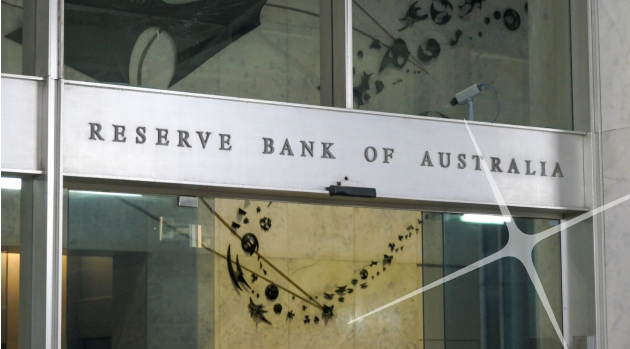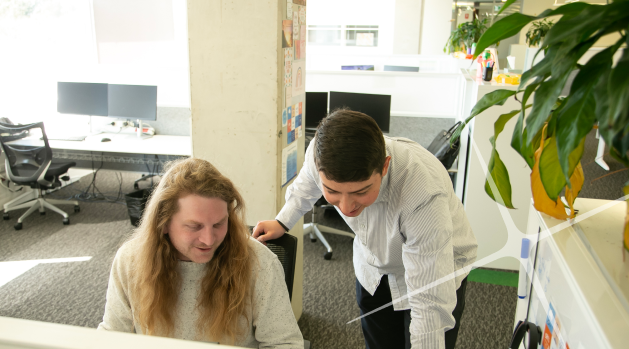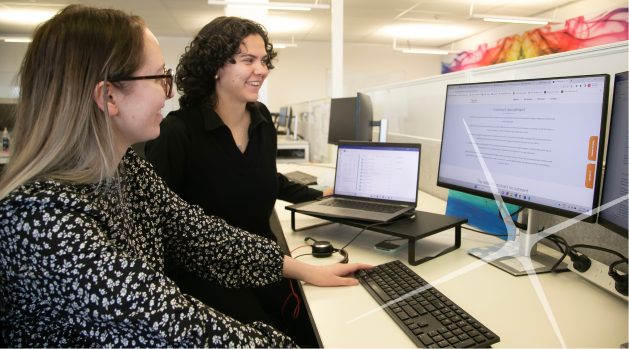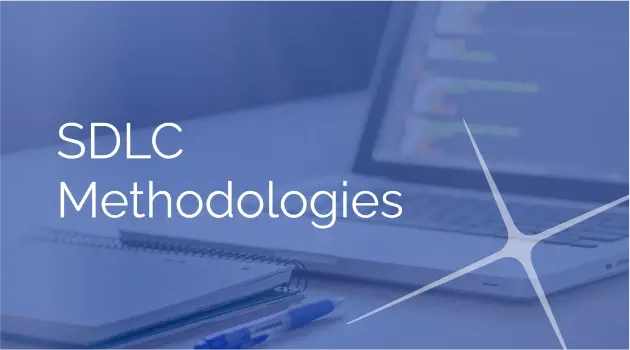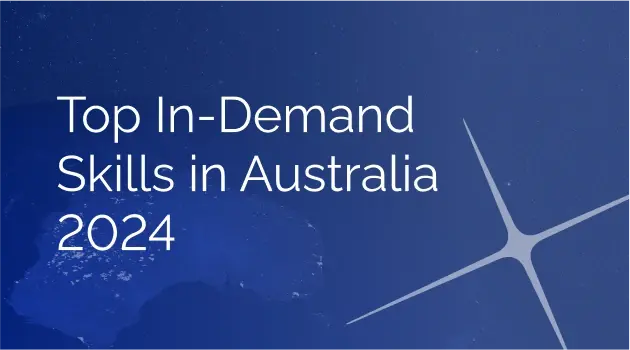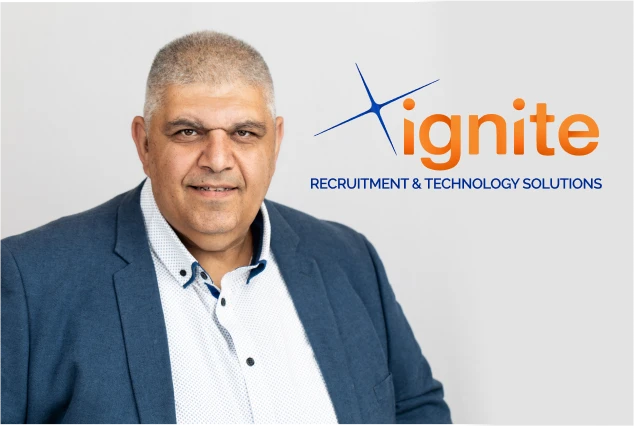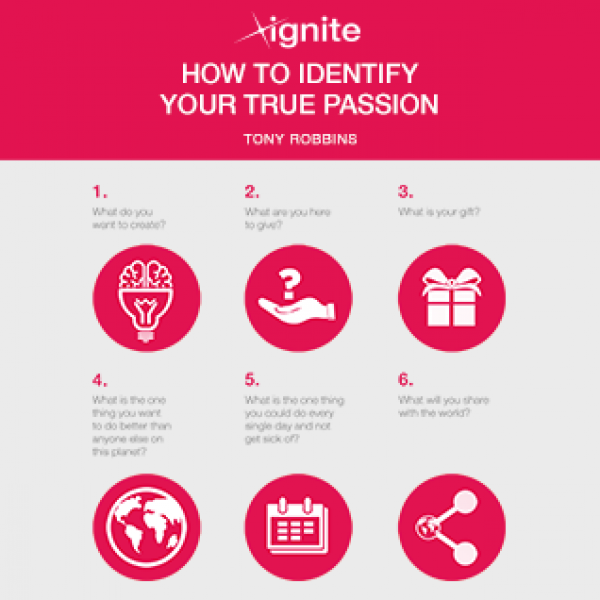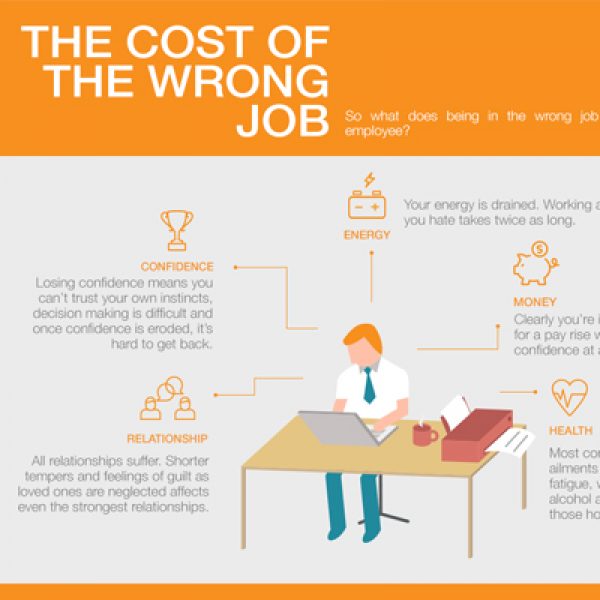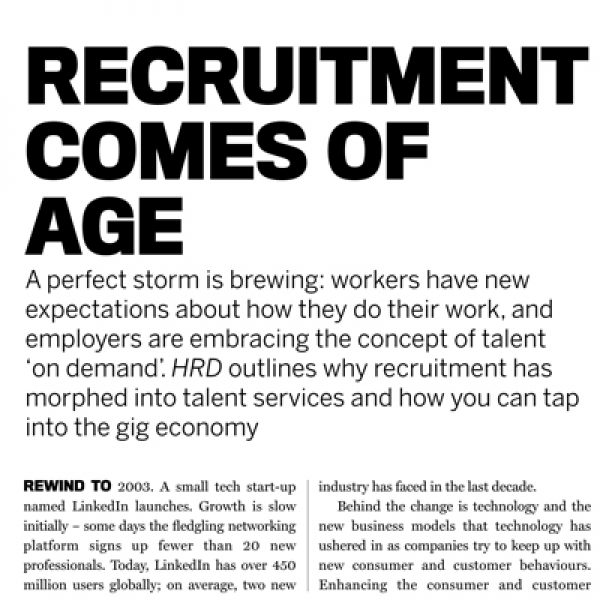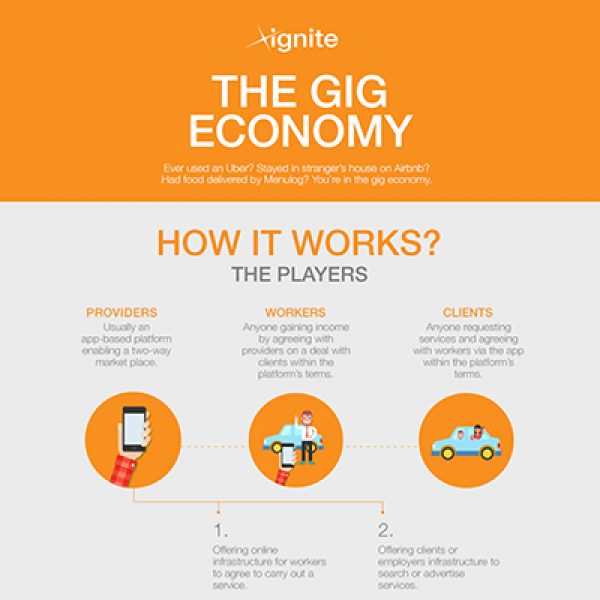The emergence of artificial intelligence (AI) is expected to significantly reshape the Australian job market. This article delves into the impact of AI on various professions, highlighting the job titles most affected and the broader implications for the workforce. Professions Most Impacted by AI Legal and Consulting Services: Lawyers and management consultants are among the groups most susceptible to AI advancements. AI's ability to process information and assist in decision-making will influence the nature of these roles, potentially enhancing productivity. Education and Training: Tertiary educators will face changes due to AI's growing role in personalized learning and educational content curation. Logistics and Supply Chain: AI's impact on logistics will involve optimizing supply chains and transport routes, directly affecting logistics teams. Policy and Counseling: Policy experts, psychologists, and counselors will see their roles evolve with AI. Tools like large-language models (LLMs) could assist in analyzing data and providing insights, changing the nature of these professions. Judicial System: Judges and legal professionals are expected to benefit from AI in terms of productivity gains, especially in document drafting and information processing. Customer Service Agents: AI, particularly in the form of chatbots, is predicted to take over many customer service roles. Research suggests that AI could become the main customer service channel for a significant number of companies in the near future. Accountants: The accounting sector is expected to undergo major changes due to AI. A Goldman Sachs report predicts a substantial number of accounting jobs worldwide could be lost to AI, reflecting a broader trend of automation in this field. Graphic Designers: With the advent of AI tools capable of creating designs and images, graphic design jobs are at risk. Developments in AI-driven design tools indicate potential economic challenges for professionals in this sector who may struggle to adapt. Trading and Investment Jobs: AI is increasingly capable of performing tasks typically done in trading and investment roles, such as Excel modeling and data analysis. This automation could lead to a reduction in jobs in these fields. Finance Jobs: Financial advisers and analysts are also at risk, as AI systems become more adept at identifying trends and examining investment portfolios, tasks traditionally performed by humans in the finance sector. Market Research Analysts: AI's ability to analyze data and predict outcomes poses a threat to market research analyst jobs. These roles, which rely heavily on data analysis, are areas where AI could potentially take over. Media Jobs: The media industry, especially roles related to content creation and analysis, is facing the risk of AI replacement. AI's ability to read, write, and understand text-based data is advancing rapidly. Economic and Social Implications Labor Policies and Protections: The Australian government and labor unions are actively developing strategies to mitigate the impact of AI on workers. This includes creating bodies to oversee automation and supporting retraining and skills development for affected sectors. Market Predictions: Research predicts that around 40% of high-routine and low-skilled tasks in Australia will be automated by 2025-2030. However, there's an expectation that jobs requiring creative and artisanal skills will be in higher demand. New Job Creation: Despite concerns about job losses, historical trends and current research suggest that AI may create more jobs than it displaces. New roles like online chaperones, RC vehicle operators, and social media bullying experts are expected to emerge. Gender and Educational Disparities: The AI revolution is likely to affect occupations with a higher share of female workers and those requiring higher educational qualifications more profoundly. Economic Growth: The AI market in Australia is projected to grow substantially, from AUD 33 million in 2016 to AUD 1,980 million in 2025, indicating a significant economic opportunity. International Comparisons: Australia's approach to AI regulation and development is being shaped in part by developments in other regions, such as the US and European Union. The integration of AI into the Australian job market presents both challenges and opportunities. While certain professions are set to undergo significant changes, the overall impact on employment may be more nuanced, with a shift towards more knowledge-based jobs and the creation of new roles. Balancing the economic benefits of AI with the need for worker protection and skill development will be crucial in navigating this technological evolution. References SMH: "Labor, unions move to protect workers who could lose jobs to AI" (link) AFR: "Growing artificial intelligence use to shake up about 500,000 Australian jobs" (link) IT Recruiter: "How AI will impact Australian labor market, and how many jobs will die because of it" (link) 9news: “The jobs at most risk of being replaced by artificial intelligence” (link) Disclaimer: The information provided in this article is for general informational purposes only. While we strive to keep the information up-to-date and accurate, we make no representations or warranties of any kind, express or implied, about the completeness, accuracy, reliability, suitability, or availability with respect to the article or the information, products, services, or related graphics contained in the article for any purpose. Any reliance you place on such information is therefore strictly at your own risk. Readers are encouraged to conduct their own research and consult with professionals in the relevant field before making any decisions based on this information.
Read MoreThe Reserve Bank of Australia's (RBA) decision to raise the cash rate to 4.35% is a significant monetary policy adjustment, the highest level since November 2011, aiming to curb inflation which remains persistently high, especially in the services sector. Here's a synthesis of the potential impacts on jobs and the broader Australian economy based on available commentary and analysis: Labour Market: While the economy is experiencing below-trend growth, it has been stronger than expected, with the labour market remaining tight. Employment growth is expected to be slower than the labour force growth, leading to a gradual rise in the unemployment rate to around 4.25%, which is a more moderate increase than previously forecast. Housing Market and Consumption: Higher interest rates will likely impact mortgage holders, with some households facing financial stress, which could weaken household consumption growth and dwelling investment. A survey indicated that 57% of mortgage holders would be under financial stress if rates hit 6% or higher, suggesting that consumer spending might be curtailed as more income is diverted to servicing debt. Business and Economic Growth: Businesses, especially those struggling, might face challenges as borrowing costs increase, which can affect their ability to invest and expand. This, in turn, could impact job creation. Moreover, high inflation is eroding real incomes, which can dampen consumer spending, a major driver of economic growth. Policy Implications: The RBA is committed to ensuring inflation returns to its target range, suggesting that monetary policy could tighten further. This would likely have a cooling effect on the economy, which may lead to a more challenging environment for job growth and retention. Debates on Future Path: Economists are divided on the future trajectory of the cash rate, with some predicting further hikes and others suggesting potential cuts if the economy weakens. This uncertainty adds to the complexity of predicting the precise impact on jobs. In conclusion, the RBA's rate hike is part of its strategy to control inflation, which is expected to ease but remain above the target range for some time. The central bank is prepared to further tighten policy if necessary, which could lead to slower employment growth and potential challenges for certain sectors of the economy. There's a delicate balance to be struck between managing inflation and supporting economic growth, with the RBA closely monitoring various economic indicators to guide future policy decisions. Source: https://www.rba.gov.au/media-releases/2023/mr-23-30.html https://bnn.network/world/australia/rba-hikes-cash-rate-to-4-35-impact-and-predictions/
Read MoreEmbarking on a career in recruitment offers a dynamic and rewarding journey filled with opportunities to connect talent with their dream jobs and contribute to the growth of organizations. If you're looking for the ideal platform to nurture your recruitment career, look no further than Ignite. With its supportive, collaborative, and refreshing work culture, Ignite stands out as the ultimate destination for those aspiring to thrive in the world of recruitment. Ignite: Your Gateway to a Fulfilling Recruitment Career Recruitment is not just a job; it's a passion, a skill, and a strategic endeavor. Ignite recognizes this and has meticulously crafted an environment that empowers its employees to excel and rise within the recruitment industry. 1. Supportive and Collaborative Work Culture Ignite prides itself on fostering a work culture that is supportive and collaborative. The company understands that success in recruitment isn't a solitary endeavor; it's a team effort. At Ignite, you'll find a network of colleagues who are not just co-workers but partners in your professional journey. Regular team catch-ups and social events provide the perfect backdrop for knowledge sharing, brainstorming, and team bonding. This collaborative atmosphere ensures that every team member has access to insights and perspectives that can contribute to their growth. 2. Balanced Autonomy and Support Ignite strikes the perfect balance between autonomy and support. While you're encouraged to take ownership of your work and make decisions that drive results, you're never left to navigate challenges alone. The company's leaders and mentors are always available to provide guidance, offer solutions, and help you overcome hurdles. This balanced approach empowers you to hone your decision-making skills while having a safety net of experienced professionals to fall back on. 3. Leading Federal Government Recruitment Supplier Being a leading federal government recruitment supplier sets Ignite apart in the industry. The company's expertise in this domain opens doors to unique opportunities for its employees. Working at Ignite means being at the forefront of federal government recruitment, gaining insights into the intricate processes, and contributing to the nation's workforce development. 4. Customizable Flexible Working Options In recognition of the diverse needs and lifestyles of its employees, Ignite offers customizable flexible working options. This flexibility ensures a healthy work-life balance, enabling you to perform at your best while maintaining personal commitments. Ignite understands that a career in recruitment can be demanding, and providing flexible arrangements is their way of supporting your overall well-being. 5. Fun-Packed Social Engagements A strong work culture is one that celebrates achievements and promotes camaraderie. Ignite goes above and beyond in this regard. From fun hours at the branch level to national gatherings, the company ensures that its employees have regular opportunities to unwind, socialize, and build lasting connections. These events not only add an element of enjoyment but also contribute to a motivated and engaged team. 6. Competitive Remuneration and Benefits A successful career deserves worthy rewards. Ignite recognizes the efforts of its employees by offering competitive remuneration and benefits packages. This not only acknowledges your dedication but also ensures that you're motivated to consistently deliver your best. 7. Uncapped Sales Commission Structure For those who are driven by the thrill of sales, Ignite's uncapped commission structure is a game-changer. This setup allows you to maximize your earnings based on your performance, providing a direct correlation between your efforts and your financial rewards. 8. Generous Paid Parental and Volunteer Leave Supporting employees during significant life events is at the core of Ignite's values. The company offers generous paid parental leave, recognizing the importance of family. Moreover, Ignite encourages social responsibility by providing volunteer leave, allowing you to give back to the community while being a part of a company that values social impact. 9. Quarterly Rewards and Recognition Program Ignite believes in acknowledging and celebrating the accomplishments of its team members. The quarterly rewards and recognition program shines a spotlight on outstanding performances, motivating individuals to consistently exceed expectations. 10. Annual Getaway Experience The pinnacle of recognition at Ignite comes in the form of the annual getaway experience for high achievers. This exclusive opportunity is not just a reward; it's an experience that encapsulates the company's appreciation for your hard work and dedication. 11. Holistic Development Initiatives Ignite's commitment to nurturing its employees' growth is evident through its extensive onboarding programs, personalized learning and development initiatives, external training and workshop sessions, and mentoring opportunities. These resources empower you to continuously enhance your skills, stay updated with industry trends, and excel in your role. 12. Health and Well-being Initiatives A successful career is built on a foundation of well-being. Ignite goes the extra mile to prioritize the health and well-being of its employees. Mental health support, tailored career plans, and a range of initiatives collectively contribute to a work environment that cares for your holistic wellness. In conclusion, Ignite is not just a workplace; it's a launchpad for a successful and fulfilling career in recruitment. The company's unwavering commitment to supportive culture, balanced autonomy, learning and development, and holistic well-being sets it apart as the ultimate choice for those aspiring to thrive in the dynamic field of recruitment. If you're seeking a recruitment career that offers not only professional growth but also a sense of belonging and purpose, Ignite is the platform where your journey begins.
Read MoreAustralia, in its pursuit of technological advancement, has seen a surge in cyber threats, reinforcing the necessity for robust cybersecurity frameworks. Canberra, the nation's capital, stands as a testament to this rapidly evolving landscape. It's become a nexus for cybersecurity job opportunities, primarily because of its role as the administrative heart of the nation. This article delves into why Canberra is the focal point for cybersecurity roles and how Ignite plays an instrumental role in bridging the gap between job seekers and businesses. Canberra: Australia's Cyber Security Epicentre Canberra, home to various government departments, intelligence agencies, and international diplomatic entities, possesses a vast amount of sensitive information. Such data repositories naturally become attractive targets for cyber adversaries. Therefore, ensuring this information remains confidential and untampered becomes paramount. And who better to uphold this integrity than trained cybersecurity professionals? Moreover, Canberra’s academic distinction, marked by institutions like the Australian National University, creates an environment of academic rigour and innovative research. Many IT graduates from these esteemed institutions often gravitate towards a career in cybersecurity, enticed by its challenges and the rewards it offers. The Blossoming of Cybersecurity Roles in Canberra Australia's commitment to bolstering its cyber-defence mechanisms has ushered in a new era for cybersecurity roles in Canberra. Aspiring professionals can now look forward to a diverse array of opportunities that promise growth and stability. Here's a glimpse into some of the sought-after cybersecurity positions available in Canberra: • Security Analysts: They assess and strengthen an organisation's security measures. • Security Architects: These professionals design comprehensive security systems. • Penetration Testers: Their role is to identify vulnerabilities by simulating cyber-attacks. • Information Security Managers: They oversee an organisation's entire security protocol. • Cyber Forensic Experts: They investigate breaches to trace the origin and nature of an attack. • Incident Responders: They are the first line of defence when a breach occurs, ensuring minimal damage. These roles not only come with attractive compensation but also promise a stable career trajectory, given the persistent nature of cyber threats. Ignite: Illuminating the Path in Cyber Security Recruitment In the vast and intricate realm of cybersecurity recruitment, Ignite emerges as a beacon of trust and reliability. Their genuine commitment to connecting the right talent with fitting opportunities makes them invaluable to both job aspirants and businesses in Canberra. For Job Seekers Transitioning into the professional world, particularly in a niche sector like cybersecurity, can be overwhelming. Ignite recognises this challenge and extends its expertise to help job seekers navigate this terrain. With their vast network spanning numerous businesses and governmental entities in Canberra, they can match aspirants with roles befitting their skill sets and ambitions. But their role doesn't stop at mere matchmaking. Ignite offers guidance at every step – from refining CVs to acing interviews, ensuring aspirants present their best selves to prospective employers. For Businesses In the dynamic realm of cybersecurity, hiring the right talent is more than just filling a vacancy; it's about securing an organisation's future. Ignite, with its rigorous vetting process, ensures businesses in Canberra are paired with candidates who not only possess the required technical acumen but also the temperament to thrive in high-pressure situations. Their nuanced understanding of Canberra's cybersecurity ecosystem ensures businesses receive candidates ready to tackle present challenges and anticipate future ones. Canberra’s Cyber Security Horizon The intricate dance between cyber advancements and cyber threats ensures that cybersecurity remains a dynamic and ever-relevant field. Canberra, with its unique position in the Australian administrative and academic landscape, is poised to remain at the forefront of this sector. In summary, Canberra is more than just Australia's capital. It's the burgeoning hub of cybersecurity opportunities, offering roles that promise both challenge and reward. As the cybersecurity realm evolves, so does the importance of professionals equipped to navigate its intricacies. And in this quest, Ignite stands out as the trustworthy partner, connecting talent with opportunity. For those in Australia looking to make their mark in cybersecurity, Canberra beckons with promise and potential.
Read MoreIn today's digital-first era, cyber security has firmly established itself as a linchpin within the tech ecosystem. And right at the forefront of this burgeoning sector is Brisbane, affectionately known as the River City and the beating heart of Queensland. With its transformation into a tech powerhouse, Brisbane’s demand for cyber security roles has seen an unprecedented surge. For those with a knack for digital protection, there's no better place to be. Why Brisbane? Unveiling the Cyber Security Epicentre of Australia Beyond its renowned landmarks, sunny days, and bustling CBD, Brisbane is quickly solidifying its reputation as a tech innovator. Home to a blend of trailblazing start-ups, established corporates, and world-class universities, the city presents a plethora of opportunities for cyber security enthusiasts. This synergy of industry and academia is the key reason why Brisbane is steadily climbing the ranks as Australia’s cyber security hub. The Landscape of Cyber Security Roles in Brisbane Brisbane's cyber security job market is diverse and growing. From roles like security analysts and ethical hackers to specialists in penetration testing and security consulting – there's a myriad of avenues to explore. With the digital realm being integral to businesses of all scales, the emphasis on cyber security is palpable. Brisbane businesses, in particular, are making significant investments to safeguard their digital assets, and this is evident in the expanding job opportunities within this field. Ignite: Where Ambition Meets Opportunity Amidst this dynamic landscape, Ignite emerges as a standout recruitment agency for both job seekers and employers in Brisbane. Searching for a pivotal role in cyber security? Ignite is your go-to recruitment agency. If you're a business on the hunt for the crème de la crème of cyber talent, Ignite ensures you're connected with the best. Here's what makes Ignite indispensable in Brisbane's cyber security job market: Expansive Network: With an unparalleled database, Ignite ensures that opportunities are abundant, whether you're a budding graduate or a seasoned pro. Tailored Matches: It’s about more than just filling roles; it's about ensuring a harmonious fit. Ignite employs sophisticated algorithms, ensuring the right talent meets the right opportunity. Current Trends in Brisbane's Cyber Security Sphere Several emerging trends are shaping the future of cyber security roles in Brisbane: Emphasis on Cloud Security: The migration to cloud-based solutions has ushered in a demand for experts proficient in cloud security. Rise of Ethical Hacking: Brisbane businesses are increasingly leaning towards proactive measures, seeking those who can identify vulnerabilities from an attacker's viewpoint. Integration of AI & ML: With Artificial Intelligence and Machine Learning becoming integral to various sectors, security experts who comprehend these technologies are highly sought after. Why Embark on a Cyber Security Career in Brisbane? Evergreen Demand: With digital threats constantly evolving, the need for experts in cyber security remains perennial. Attractive Remuneration: Recognising the vital nature of the role, Brisbane employers often offer competitive salaries to attract top-tier talent. Broad Spectrum of Roles: From managing network security to ensuring application safety, the field is vast, offering a role for every passion. Continuous Growth: Brisbane’s dynamic tech environment ensures that professionals are always learning, adapting, and advancing. For those aiming to carve a niche in the realm of cyber security, Brisbane beckons with a promise of growth, innovation, and myriad opportunities. Recruitment agencies like Ignite further enhance this promise, ensuring that the city's best talent finds its perfect match. If you're on a quest to either secure top-tier talent or kick-start a rewarding career in cyber security, Brisbane, with Ignite as its torchbearer, is where your search culminates.
Read MoreIn the modern digital era, the importance of cybersecurity can't be overstated. With cyber threats becoming increasingly sophisticated, the demand for skilled professionals to counter these threats is on the rise. Perth, Australia’s vibrant city on the Western coast, stands at the forefront of this cybersecurity evolution. If you've ever typed in the phrase 'cyber security jobs Perth' in a search bar, you're aware of the surging opportunities awaiting in this domain. Perth: The Emerging Hub of Cyber Security in Australia The narrative of Perth being solely a resource-based economy is changing. Today, it's positioning itself as a city of innovation and technology. The booming tech ecosystem, backed by both local businesses and the Australian government, recognises the vital importance of cybersecurity. As digital transformation accelerates, every city and organisation becomes a potential target for cyber attacks. Perth, with its growing tech industries, research institutions, and an ecosystem that supports startups, finds cybersecurity integral for its digital ambitions. This growing need means a profusion of opportunities for cybersecurity professionals. Diverse Roles within the Cyber Security Landscape The term 'cyber security jobs Perth' is a vast and encompassing one. When one thinks of cybersecurity, it might be easy to visualise a singular role, perhaps an IT professional safeguarding systems. However, the realm of cybersecurity offers a plethora of roles: Ethical Hackers: Experts who test and secure digital infrastructures by mimicking cyberattacks. Security Consultants: Professionals offering bespoke solutions and advice on comprehensive security strategies. Information Security Analysts: Those responsible for assessing, planning, and implementing security measures. Cybersecurity Engineers: They design, implement and maintain security systems. Each role is distinct, playing a crucial part in a holistic cybersecurity approach. How Ignite Can Light Up Your Cyber Security Career or Needs In the midst of this cybersecurity boom, Ignite stands out as a beacon for both job seekers and businesses. With a deep understanding of the Australian job market, particularly in Perth, Ignite has become synonymous with excellence in recruitment and talent placement. For Job Seekers: Navigating the vast ocean of job opportunities can be daunting. Ignite simplifies this journey. Their detailed listings, tailored advice, and insights into 'cyber security jobs Perth' ensure that aspirants are not only well-informed but also well-prepared. For Businesses: The challenge lies not just in finding talent, but in finding the right talent. Ignite's nuanced approach takes into account the specific needs of businesses, aligning them with professionals who fit both skill and culture requirements seamlessly. The Road Ahead for Perth's Cyber Security Landscape The trajectory for Perth in the cybersecurity sector looks undeniably promising. The Australian government's supportive initiatives, Perth's commitment to innovation, and the continuous evolution of the digital sphere solidify the city's standing in the cybersecurity domain. For aspirants, continuous learning and adaptability are key. Cyber threats are ever-evolving, and staying updated with the latest trends and technologies becomes imperative. For businesses, understanding the multifaceted nature of cyber threats and the necessity of a robust cybersecurity strategy is of paramount importance. Investing in the right talent and technology will determine their resilience in the face of potential cyber adversities. Perth is not just evolving; it's leading in many aspects of the digital revolution, with cybersecurity being a significant facet. 'Cyber security jobs Perth' is more than a search term. It encapsulates the city's growth, opportunities, and the bright future ahead in this domain. For individuals and businesses alike, Ignite stands ready to assist, guide, and ensure the best outcomes in this dynamic landscape. It's not just about securing data; it's about securing futures. And in that endeavour, Perth, backed by partners like Ignite, shines brightly
Read MoreIn the vibrant tapestry of Australia's tech landscape, Sydney stands tall and proud as its shimmering jewel. More than just its iconic Opera House or its sun-kissed beaches, Sydney has carved a niche for itself as the tech nexus of the Southern Hemisphere. A particularly striking facet of this tech revolution is cybersecurity. When the phrase "cyber security jobs Sydney" echoes, it resonates with opportunity, growth, and the promise of a secure digital future. Sydney: The Cybersecurity Hub of Australia The Tech Pulse of Australia: Sydney isn't just Australia's most well-known city; it's also its technological heart. With a bustling ecosystem of start-ups, established tech giants, and regular tech summits, it's clear why cyber security jobs in Sydney are in robust demand. The Digital Age and its Challenges: With every new digital solution comes a new challenge. The rise of digital businesses and the city's stature as a global financial epicentre makes it an attractive target for cyber threats, amplifying the need for top-tier cybersecurity professionals. Support from Down Under: The Australian government, recognising the vitality of cybersecurity in a digitised economy, has been proactive. With numerous initiatives and funds geared towards strengthening Australia's cyber resilience, Sydney naturally becomes a magnet for those aspiring for a career in this realm. Peeling Back the Layers of Cybersecurity Careers in Sydney Cybersecurity is a vast domain, burgeoning with varied roles designed for a spectrum of skills and expertise: Security Analyst: The guardians who analyse and interpret threats, suggesting potent countermeasures. Ethical Hacker: The digital detectives who identify and rectify security loopholes by imitating potential cyber adversaries. Security Engineer: The architects who design formidable secure network structures. Security Consultant: The advisors who offer their seasoned expertise to fortify organisational IT infrastructures. Chief Information Security Officer (CISO): The leaders steering the ship, shaping an organisation's entire security narrative. These roles, while representing just a fraction of the landscape, underscore the dynamic nature of cybersecurity. As cyber threats metamorphose, so do the roles and specialities, ever-adapting and evolving. Ignite: Where Sydney's Cybersecurity Aspirations Meet Reality In the vast ocean of cyber security jobs in Sydney, how does one navigate to the right shores? This is where Ignite's beacon shines brightest. Ignite is not merely a recruitment agency; it's a commitment. A commitment to understanding the intricate nuances of the cybersecurity world and ensuring the right talents find their rightful place. Here's what sets Ignite apart: 1. Deep-rooted Expertise: Ignite's team is adept at recognising the specific demands of the cybersecurity sector. This deep understanding ensures that talents are paired with opportunities that resonate with their capabilities and aspirations. 2. Empowering Job Seekers: For those hunting for cyber security jobs in Sydney, Ignite provides a curated list of the most enticing opportunities. With an extensive network spanning the city, job seekers are guaranteed exposure to Sydney's finest employers. 3. Enabling Businesses: In the era of cyber vulnerabilities, it’s pivotal for businesses to be fortified with the crème de la crème of talent. Ignite is that bridge, ensuring businesses are partnered with professionals who not only possess the technical prowess but also align seamlessly with their ethos and vision. 4. Beyond Just Recruitment: Ignite's ethos encompasses more than mere recruitment. They believe in fostering long-term associations, ensuring symbiotic growth for both professionals and businesses. The digital frontier is expansive, and while it holds limitless potential, it also houses its fair share of challenges. Cities like Sydney are not just embracing this new age; they're championing it, ensuring a safer, more secure digital experience for all. For every individual with aspirations in cybersecurity or for every business striving to fortify its digital defences, the phrase "cyber security jobs Sydney" should unequivocally lead to Ignite. They are more than a recruitment agency; they are Sydney’s trusted partner in the ever-enthralling realm of cybersecurity. In the quest for excellence in the domain of cybersecurity in Sydney, Ignite emerges as a guiding light, illuminating the path for both job seekers and businesses, ensuring a brighter, more secure digital future for all.
Read MoreIn the vast landscape of Australia, where innovation meets tradition, our online realm is expanding more rapidly than ever before. This expansion isn't just about growing digital markets or burgeoning tech hubs in cities like Sydney or Melbourne. It's about securing our digital footprint. As the Land Down Under becomes more digitally adept, the importance of cybersecurity cannot be overstated. And this demand paints a promising picture for those eyeing entry-level cyber security jobs in Australia. What Are Entry-Level Cyber Security Jobs in Australia? For those new to the industry or freshly graduated from Australian universities and technical colleges, entry-level cyber security jobs provide a grounding experience. These roles are essential to establishing a sturdy foundation in the cybersecurity field. Among the most sought-after roles in Australia are: Security Analyst: Tasked with scrutinising and countering potential threats to an organisation's digital systems. Incident Responder: They jump into action when cyber incidents arise, ensuring quick and effective resolution. IT Security Specialist: With a keen focus on fortifying an organisation's IT infrastructure against potential breaches. Junior Penetration Tester: Proactively finds and reports vulnerabilities by simulating cyber-attacks on systems. Security Administrator: Ensures that the organisation's security solutions are robust, current, and efficient. Though these roles are foundational, they form the bulwark against the rising tide of cyber threats targeting Australian businesses and individuals. Skills Essential for Australian Entry-Level Cyber Security Jobs While prior experience isn't a strict necessity, certain skills can set you apart: Technical Proficiency: A robust understanding of computer systems, networks, and the ever-evolving digital landscape. Analytical Mindset: The capacity to dissect complex challenges and find actionable solutions. Meticulousness: In the vast world of cybersecurity, even minute details can hold paramount importance. Effective Communication: Whether it's liaising with a team in Brisbane or presenting findings in Perth, clear communication is vital. Though these skills are invaluable, a genuine passion for cybersecurity and an unwavering commitment to continuous learning often hold the key to success in the field. Why Begin with an Entry-Level Role in Australia? Starting at the grassroots has distinct advantages: Localised Learning: Understanding the unique cyber challenges and regulatory landscape in Australia can set the stage for a thriving career. Expanding Networks: Connect with seasoned Aussie professionals, tap into their expertise, and potentially find mentors to guide you. Tailored Growth: With a comprehensive grasp of the local industry, you can carve a niche or choose specialisations that align with Australia's cybersecurity needs. Ignite: Australia's Premier recruitment agency for Cyber Talent and Opportunities For those ready to embark on a cybersecurity journey in Australia, Ignite is your go-to recruitment agency. Catering exclusively to the Australian market, Ignite seamlessly connects job seekers eyeing entry-level cyber security jobs with businesses keen on harnessing fresh, local talent. For Job Seekers: Ignite showcases a curated selection of Australia's finest entry-level cybersecurity roles. Say goodbye to sifting through myriad job listings. Ignite ensures you're always a step closer to your dream job in the Aussie tech world. For Businesses: In the vast Australian digital landscape, sourcing the right talent can often feel like finding a needle in a haystack. Ignite simplifies this quest by linking businesses with individuals brimming with potential and drive. In essence, Ignite is more than a recruitment agency—it's a catalyst. It fuels the Australian cybersecurity ecosystem by ensuring that talent finds its rightful place, fostering a brighter and more secure digital future for all of Australia. As Australia surges ahead in the digital age, the call for adept cybersecurity professionals becomes louder. Entry-level cyber security jobs offer an opportunity not just to answer this call but to craft a fulfilling career trajectory. With recruitment agency like Ignite in the mix, bridging the gap between budding professionals and businesses has never been smoother. So, if you're looking to leave a mark in the Australian cybersecurity domain, remember that every expert journey begins with a single step. Take yours today.
Read MoreMelbourne, renowned for its rich arts, gourmet coffee, and iconic laneways, is quickly emerging as Australia's tech hub, especially in the domain of cybersecurity. If you've ever tapped "cyber security jobs Melbourne" into your search bar, you're on the brink of joining an exciting frontier. Dive in as we unwrap Melbourne's growing tech ecosystem. Melbourne's Cybersecurity Landscape: A Panoramic View In an era where everything from your fridge to your footy ticket is connected online, the importance of safeguarding our digital landscape cannot be understated. Melbourne, ever the innovator, stands at the forefront of this digital revolution. But what exactly fuels this surge in cyber security jobs in Melbourne? The Digital Boom: Everywhere you look, Melbourne's businesses, from the bustling CBD to the suburban fringes, are embracing tech advancements. As sectors like finance, healthcare, and e-commerce deepen their digital footprints, the necessity for robust cybersecurity measures escalates. Government Backing: Both state and federal tiers of Aussie governance aren't shying away. By rolling out forward-thinking policies, pumping funds into research, and spearheading educational initiatives, they're bolstering the cybersecurity framework of our nation. Digital Missteps: It's no secret that cyber mishaps, both local and international, make for headline news. The rise in high-profile breaches and digital espionage has magnified the demand for effective cybersecurity solutions. Ignite: The Fair Dinkum Gateway to Cybersecurity Excellence When it comes to matching cybersecurity talent with businesses that thirst for it, Ignite stands as the definitive gateway. Let's dissect the magic behind Ignite's prowess: A Rolodex to Rave About: Ignite isn't about skimming the surface. With an extensive lineup of leading employers and top-tier companies, job seekers have a treasure trove of opportunities to explore. Precision-Driven Matches: Ignite prides itself on understanding you, ensuring that job offers align seamlessly with individual aspirations, skills, and expertise. A Boon for Businesses: It's not just a one-way street. Enterprises and startups scouting for premier cybersecurity talent find solace in Ignite's intricate network and industry know-how. Diverse Roles: A Spectrum of Cyber Opportunities The realm of cybersecurity in Melbourne is vast and varied. Whether you're a newbie or a seasoned professional, there's a niche for everyone: Security Analyst: Proactively monitoring and defending digital territories, they ensure our online ventures remain uncompromised. Ethical Hackers: By simulating cyberattacks, they pinpoint vulnerabilities, ensuring our digital armour remains unbreachable. Security Software Developer: Behind the scenes, these maestros develop sophisticated tools and software to fend off cyber adversaries. Incident Responder: Think of them as the digital firefighters. When cyber calamities strike, they're first on the scene, mitigating damages and charting recovery pathways. And this only scratches the surface. From security consultants to penetration testers and compliance analysts, Melbourne's cybersecurity arena is brimming with opportunities. Shaping Tomorrow: The Future of Cybersecurity in Melbourne Peering into the future, Melbourne's cybersecurity trajectory is upwards and onwards. As tech investments soar, emerging threats evolve, and the relentless quest to digitise amplifies, there's no slowing down. Add to this Melbourne's ambitious vision to establish itself as a global tech giant. This dream, coupled with the city's unwavering commitment to nurturing talent and fostering innovation, paints a rosy picture for all cybersecurity aspirants. In a Nutshell Melbourne, in all its splendour, is more than just the MCG, trams, and its dynamic coffee culture. It's also a beacon for cybersecurity enthusiasts. If you're a go-getter keen on carving a niche in cybersecurity, or a business endeavouring to fortify its digital ramparts, Ignite stands ready to guide, connect, and elevate. As the digital tapestry of our world grows intricate by the day, let Melbourne, with its burgeoning cyber scene, be your playground. With Ignite by your side, the future isn't just secure; it's spectacular.
Read MoreIn the heart of our digital revolution, where Australia stands at the forefront of innovation and technology, the protection of data and digital assets has never been more crucial. The surge in demand for cyber security roles reflects this shift in the Australian job landscape. For those eyeing a career in this domain or Aussie businesses keen to recruit top-notch talent, Ignite is the recruitment agency to watch. What are Cyber Security Jobs? First, let's unpack what cyber security roles in Australia entail. Cyber security revolves around safeguarding computer systems from theft, harm, or unauthorised access. In Australia, this has translated into a myriad of roles, from ethical hackers who pinpoint vulnerabilities in systems, to security analysts who keep an eagle eye on potential threats. The domain further extends to roles like cyber consultants, security architects, and cyber forensic specialists. The Rising Tide of Cyber Security in Australia The ever-increasing demand for cyber security professionals in Australia can be attributed to several reasons: Cyber Crimes on the Rise: As Australia dives deeper into the digital sphere, cyber crimes have unfortunately kept pace. This has spurred Australian businesses and government agencies to bolster their digital defences, creating a significant demand for cyber security roles. Digital Transition: The Australian market is swiftly embracing digital tools and innovations. From cloud services to IoT integrations, as we advance, new security challenges emerge. Regulatory Compliance: With Australian-specific regulations around data privacy and security, businesses are mandated to maintain high standards of data protection, necessitating dedicated cyber security teams. Ignite: Australia's Premier recruitment agency for Cyber Security Opportunities Now, with the pronounced significance of cyber security Down Under, where should one turn for the best talent or opportunities? This is where Ignite shines: Expansive Network: Ignite boasts a comprehensive network of Aussie job seekers and employers. This ensures that businesses get the cream of the crop, while job seekers find opportunities tailored to their skills. Customised Matches: Ignite uses cutting-edge algorithms to provide bespoke matches, ensuring businesses get the right candidates and job seekers get jobs that align with their expertise. Specialised Focus: While many job agencies cater to a broad spectrum, Ignite specialises in the cyber security niche, understanding the unique intricacies of the Australian market. User-Friendly Experience: Ignite offers a smooth, user-centric experience, making the process of job seeking or talent hunting an absolute breeze. Charting a Career in Cyber Security in Australia For those eager to step into this domain: Education and Accreditation: While IT or computer science degrees provide a solid foundation, Australian-recognised certifications, such as the ACS's Certified Cyber Security Professional, give you an edge. Practical Experience: Seek internships or entry-level roles that offer real-world exposure in the Australian cyber security landscape. Stay Updated: The digital world is dynamic. Keeping abreast of current trends and threats is paramount. Australia's digital frontier is vast, and its guardians are the cyber security professionals. Whether you're an aspiring professional or a business seeking the best in the field, Ignite is your port of call. Blending an extensive network, customised matches, and a user-centric experience, Ignite ensures that the realm of cyber security is within everyone's reach. So, as Australia strides forward in the digital age, make sure you're part of the journey with Ignite. Cyber Security Careers: Your Essential FAQs Answered How to get a job in cyber security? To get a job in cyber security: Start with a strong educational background in IT, computer science, or related fields. Earn industry-recognized certifications, such as CISSP, CISM, or CompTIA Security+. Gain hands-on experience through internships or entry-level positions. Stay updated with the latest cyber security trends and threats. Build a professional network by attending industry seminars or joining online forums. How many jobs are there in cyber security? The number of cyber security jobs varies by region and demand. However, due to increasing cyber threats and digital adoption, the number of jobs in the sector is consistently on the rise globally. How to get a job in cyber security in Australia? For those looking to get a job in cyber security in Australia: Obtain relevant educational qualifications from Australian universities or institutions. Earn certifications recognized in Australia, such as ACS's Certified Cyber Security Professional. Gain experience through internships or roles in local firms. Join Australian cyber security associations or forums to network. Search on job platforms specific to Australia and apply accordingly. What does cyber security jobs do? Cyber security professionals work to safeguard systems, networks, and data from digital threats. They monitor for suspicious activities, respond to breaches, implement security protocols, and often provide advice to organizations on best security practices. What is the job description of cyber security? A cyber security job description typically includes tasks like: Monitoring organizational networks for breaches or unauthorized activities. Implementing security protocols and measures. Conducting security assessments and providing recommendations. Responding to and investigating security breaches. Keeping updated with the latest security trends and technologies. Are cyber security jobs in demand? Yes, cyber security jobs are in high demand. As digital threats continue to grow in complexity, organizations are increasingly seeking professionals to protect their digital assets. Are cyber security jobs remote? Many cyber security jobs offer remote work options, especially in roles related to threat analysis, consulting, and certain monitoring tasks. The pandemic further propelled the acceptance of remote work in many sectors, including cyber security. Are there many jobs in cyber security? Yes, the cyber security field has seen consistent growth in job opportunities due to the rising concerns of cyber threats and the need for businesses and governments to protect their digital resources. Can you get a cyber security job without a degree? While having a degree can be advantageous, many cyber security roles prioritize experience, skills, and certifications over formal education. Demonstrating proficiency through hands-on experience and obtaining industry-recognized certifications can open doors even without a traditional degree. Do cyber security jobs pay well? Yes, due to the high demand and specialized skill set required, cyber security jobs generally offer competitive salaries, often higher than many other IT roles. Do cyber security jobs require programming? Not all cyber security jobs require programming knowledge, but it can be beneficial. Roles like security software developers or ethical hackers may require strong programming skills, whereas roles like security analysts might focus more on threat detection and response. Do cyber security jobs work from home? Many cyber security roles offer the flexibility to work from home, especially those related to consulting, analysis, and certain monitoring tasks. However, some roles might require on-site presence, especially if they involve physical infrastructure.
Read MoreIn the realm of software development, having a structured and well-defined approach is essential for delivering high-quality products efficiently. This is where Software Development Life Cycle (SDLC) methodologies come into play. SDLC methodologies provide a systematic framework for managing the entire software development process, from inception to delivery. In this article, we will explore some of the top SDLC methodologies, their key features, and how they can be applied to various projects. Waterfall Methodology The Waterfall methodology is one of the oldest and most traditional SDLC approaches. It follows a linear and sequential process, where each phase of development is completed before moving on to the next. The key stages include requirements gathering, design, implementation, testing, deployment, and maintenance. This methodology is well-suited for projects with stable and well-defined requirements, where changes are unlikely to occur. Pros: Easy to understand and manage. Clear documentation at each stage. Suitable for projects with well-defined requirements. Cons: Lack of flexibility to accommodate changes. Limited client involvement until the end. Long development cycles can delay product delivery. Agile Methodology Agile methodology is an iterative and collaborative approach that emphasizes adaptability and customer collaboration. It focuses on delivering functional software in short iterations called sprints, typically lasting one to four weeks. Agile methodologies, such as Scrum and Kanban, promote frequent communication, flexibility, and continuous improvement. Pros: Allows for flexibility and adaptability. Promotes customer collaboration and feedback. Early and frequent delivery of working software. Cons: May require more client involvement and time commitment. Can be challenging for large-scale projects. Lack of detailed documentation may lead to confusion. Lean Development Originating from the Lean manufacturing principles, Lean Development aims to eliminate waste and maximize value in software development. It emphasizes delivering the minimum viable product (MVP) with essential features to gather feedback and iterate quickly. Lean Development focuses on continuous improvement and reducing non-value-added activities. Pros: Efficient use of resources and time. Early feedback and iteration opportunities. Minimization of unnecessary features. Cons: Limited focus on long-term planning. May overlook important features if not carefully managed. Requires effective collaboration and communication. Spiral Methodology The Spiral methodology combines elements of both Waterfall and Agile approaches. It follows a risk-driven and iterative process that allows for incremental development. The Spiral model involves identifying, analyzing, and mitigating risks at each iteration, ensuring continuous improvement and flexibility. Pros: Emphasizes risk management and mitigation. Incorporates elements of both Waterfall and Agile methodologies. Provides opportunities for early prototyping and stakeholder feedback. Cons: Can be complex to manage, especially for small projects. Requires experienced project management to navigate risks effectively. Documentation and planning can be time-consuming. DevOps DevOps is a methodology that integrates software development (Dev) and IT operations (Ops) to streamline the software delivery process. It emphasizes collaboration, automation, and continuous integration and delivery (CI/CD). DevOps focuses on reducing development cycle time, improving quality, and enhancing communication between development and operations teams. Pros: Streamlines software development and deployment processes. Improves collaboration and communication. Enables faster time-to-market and frequent releases. Cons: Requires a cultural shift within organizations. Initial setup and infrastructure investment can be complex. Relies on automation tools and practices. Selecting the most appropriate SDLC methodology for your project is crucial for its success. Each methodology has its strengths and weaknesses, and the choice depends on project requirements, team dynamics, and client involvement. The Waterfall methodology provides structure but lacks flexibility, while Agile methodologies offer adaptability and customer collaboration. Lean Development focuses on efficiency, and the Spiral methodology combines elements of both Waterfall and Agile. DevOps, on the other hand, streamlines the software delivery process through collaboration and automation. By understanding the characteristics of these top SDLC methodologies, you can make an informed decision and tailor the approach to suit your project's unique needs. Remember, no methodology is a one-size-fits-all solution, and it's essential to adapt and refine your approach based on the project's requirements and feedback from stakeholders. Demystifying SDLC Methodologies: FAQs on Software Development Life Cycle What are the Steps in the SDLC Methodology? The Software Development Life Cycle (SDLC) consists of several phases that guide the development of software from concept to delivery. The typical steps in the SDLC methodology are: Requirement Analysis: Gather and document project requirements by engaging with stakeholders, understanding their needs, and defining the scope of the project. Planning: Create a comprehensive project plan that outlines tasks, resources, timeline, and budget. Identify potential risks and mitigation strategies. Design: Develop a detailed design that specifies the software architecture, data structures, user interface, and overall system layout. Implementation: Write and code the software based on the design specifications. This phase involves translating the design into actual code and developing all the required components. Testing: Thoroughly test the software to identify and rectify defects, ensuring that the application functions as intended. This phase includes unit testing, integration testing, system testing, and user acceptance testing. Deployment: Release the software to the production environment or distribute it to end-users. This phase may involve installation, configuration, and user training. Maintenance: After deployment, monitor the software for issues and make necessary updates or enhancements to ensure its continued functionality and alignment with changing requirements. What is SDLC Methodology? The Software Development Life Cycle (SDLC) methodology is a structured approach used by software development teams to guide the process of designing, creating, testing, and deploying software applications. It provides a framework that helps ensure the successful and efficient completion of software projects while maintaining quality and meeting customer requirements. What are the Different Types of SDLC Methodologies? There are several types of SDLC methodologies, each with its own approach and characteristics: Waterfall Methodology: Follows a linear sequence of phases where one phase must be completed before moving to the next. Ideal for projects with well-defined and stable requirements. Agile Methodology: Emphasizes iterative development, collaboration, and flexibility. Projects are broken down into sprints, and customer feedback is incorporated into each iteration. Lean Development: Focuses on minimizing waste and delivering value through the creation of a minimum viable product (MVP) and rapid iteration. Spiral Methodology: Incorporates elements of both Waterfall and Agile approaches, emphasizing risk assessment and iterative development. DevOps: Integrates development and operations teams to streamline software delivery through automation, continuous integration, and collaboration. What is SDLC Agile Methodology? The SDLC Agile methodology, commonly known as Agile, is an iterative and collaborative approach to software development. It values adaptability and customer collaboration over strict planning and documentation. Agile methodology involves breaking down the project into smaller, manageable units called sprints. Each sprint, typically lasting one to four weeks, involves planning, coding, testing, and delivering a functional piece of software. Agile emphasizes customer feedback, allowing teams to adjust the project's direction based on changing requirements and insights gained during each iteration. This methodology encourages continuous improvement and quick delivery of working software. Agile practices include Scrum, Kanban, and Extreme Programming (XP), each with its own set of principles and practices to enhance development efficiency and product quality. What are the top SDLC methodologies? There are several prominent SDLC methodologies, including Waterfall, Agile, Lean Development, Spiral, and DevOps. Each approach has its own characteristics and benefits, catering to different project requirements and team dynamics. Which SDLC methodology is best for my project? The choice of SDLC methodology depends on various factors such as project scope, client involvement, flexibility needs, and team expertise. Waterfall is suitable for stable requirements, while Agile is adaptable and collaborative. Lean Development focuses on efficiency, Spiral balances risk management, and DevOps streamlines deployment. How does Agile methodology differ from Waterfall? Agile and Waterfall methodologies differ in their approach to development. Agile emphasizes iterative development, customer collaboration, and flexibility, while Waterfall follows a linear, sequential process with well-defined stages. Agile allows for continuous improvements and changes, while Waterfall is better for projects with stable requirements. What is the main advantage of Lean Development? The main advantage of Lean Development is its focus on efficiency and waste reduction. By delivering a minimum viable product (MVP) and iterating quickly, it minimizes unnecessary features and maximizes value. This approach ensures that resources are utilized effectively and that the final product aligns closely with customer needs. How does DevOps enhance software development? DevOps enhances software development by integrating development and operations teams. It emphasizes automation, continuous integration and delivery (CI/CD), and collaboration. DevOps accelerates development cycles, improves software quality, and fosters better communication between development and operations. Can I combine elements of different SDLC methodologies? Yes, it's possible to combine elements from different SDLC methodologies to create a hybrid approach that suits your project's unique needs. For example, some teams use Agile practices within a Spiral framework to balance iterative development and risk management. However, this requires careful planning and adaptation. What challenges might I face with the Waterfall methodology? Waterfall's rigid, linear process can lead to challenges when dealing with changing requirements. Since each phase must be completed before moving on, any adjustments or client feedback can cause delays. Limited customer involvement until the end phase can also lead to misunderstandings or misalignments. Is DevOps suitable for all types of projects? While DevOps offers benefits for most projects, its adoption can vary. DevOps is especially effective for projects that require frequent updates, have complex deployment needs, or involve collaboration between development and operations teams. However, small-scale projects with simple deployment requirements might not require the full scope of DevOps practices. Can Lean Development work for large-scale projects? While Lean Development is designed to streamline processes and reduce waste, its efficiency-focused approach might face challenges in large-scale projects. Ensuring that the essential features are identified and delivered early becomes more complex, and meticulous planning is necessary to prevent overlooking critical components. How can I transition my team to Agile methodologies? ShapeTransitioning to Agile methodologies requires a cultural shift and proper training. Start with a pilot project to learn the Agile process and its tools. Encourage open communication, flexibility, and collaboration among team members. Regular retrospectives can help fine-tune the approach based on your team's experiences and challenges.
Read MoreThe Australian job market is continuously evolving, driven by technological advancements, demographic shifts, and changing industry landscapes. To excel in this dynamic environment, it is crucial for job seekers and professionals to anticipate future demands and equip themselves with the right skills. In this comprehensive guide, we will delve into the top in-demand skills in Australia for 2024. By understanding these skills and the industries they relate to, individuals can proactively develop their expertise and enhance their employability. Digital Literacy and Technology Skills: The digital revolution has permeated every aspect of our lives, transforming industries and creating new job opportunities. In 2024, digital literacy and technology skills will remain at the forefront of the job market. Proficiency in areas such as data analysis, artificial intelligence, cloud computing, cybersecurity, and software development will be highly sought-after by employers across various sectors. Individuals who possess a deep understanding of digital tools, programming languages, and emerging technologies will be well-positioned for success. Data analysis, a critical skill in the digital era, involves the ability to collect, analyze, and interpret data to derive valuable insights. Organizations are increasingly relying on data-driven decision-making, making data analysts and data scientists indispensable. Skills in statistical analysis, data visualization, and machine learning will be highly valued. Artificial intelligence (AI) is another field that will shape the future job market. Professions related to AI, such as machine learning engineers, AI specialists, and robotics engineers, will experience significant growth. AI is being implemented across industries, including healthcare, finance, transportation, and customer service, revolutionizing processes and driving efficiency. Cloud computing is set to continue its upward trajectory as organizations transition to cloud-based solutions. Skills in cloud infrastructure management, software-as-a-service (SaaS), and platform-as-a-service (PaaS) will be in high demand. Additionally, cybersecurity skills will be critical to protect digital assets and ensure data privacy. Data Science and Analytics Data science and analytics have become integral to business success, allowing organizations to derive meaningful insights from vast amounts of data. In 2024, professionals with expertise in data science, analytics, and data visualization will be highly sought-after. Data mining, the process of discovering patterns and extracting information from large datasets, will be an invaluable skill. Proficiency in statistical analysis and machine learning algorithms will enable professionals to uncover trends and make accurate predictions. Moreover, individuals skilled in data interpretation and data storytelling will excel in conveying complex insights to stakeholders. As organizations strive to make informed decisions, data visualization skills will be in high demand. Professionals who can effectively present data through visually appealing and interactive dashboards will play a crucial role in driving business strategies. Health and Allied Health Professions Australia's aging population and increasing healthcare needs will continue to drive demand for healthcare professionals in 2024. Various health and allied health professions will offer significant employment opportunities. Nursing, a vital profession in the healthcare sector, will remain in high demand. Skilled nurses with expertise in specialized areas such as critical care, aged care, mental health, and palliative care will be sought-after. With advancements in telehealth and remote patient monitoring, nurses with knowledge of digital healthcare solutions will also be highly valued. Allied health professions, including physiotherapy, occupational therapy, speech pathology, and dietetics, will experience steady growth. These professionals play a crucial role in supporting individuals' physical and mental well-being. Additionally, mental health counseling and psychology will be in high demand, as the importance of mental health continues to gain recognition. Renewable Energy and Sustainability Australia's commitment to renewable energy and sustainability will drive demand for professionals in this field. As the world focuses on combating climate change, the renewable energy sector will experience significant growth in 2024. Professions related to solar and wind energy engineering will be in high demand. As Australia continues to harness its abundant renewable resources, experts in designing, implementing, and maintaining solar and wind energy systems will be sought-after. Additionally, knowledge of energy storage solutions and grid integration will be valuable. Environmental science and sustainability professionals will play a crucial role in promoting sustainable practices across industries. These professionals will help organizations minimize their environmental footprint, develop sustainable strategies, and comply with regulatory requirements. Sustainable architecture and urban planning will also be in demand as cities strive for eco-friendly infrastructure. Architects and planners with expertise in sustainable design principles, energy efficiency, and green building certifications will be well-positioned for thriving careers. Creative and Digital Media The creative and digital media industry will continue to flourish in 2024 as consumers increasingly engage with digital content and platforms. Professions in this field will be sought-after due to the growing importance of effective communication and engaging digital experiences. Graphic design will remain a crucial skill as organizations seek visually appealing content for their marketing materials, websites, and digital platforms. User Experience (UX) design, which focuses on creating intuitive and user-friendly interfaces, will be in high demand. UX designers who can optimize digital experiences and enhance customer satisfaction will be highly valued. Digital marketing and social media management will continue to be integral to organizations' success. Professionals who understand digital advertising, search engine optimization (SEO), content marketing, and social media strategies will be in high demand. Furthermore, content creation skills, including writing, video production, and multimedia storytelling, will be highly valued as organizations aim to captivate their target audiences. In the rapidly evolving Australian job market of 2024, staying ahead requires anticipating future demands and developing the right skills. Digital literacy and technology skills, data science and analytics, health and allied health professions, renewable energy and sustainability expertise, and creative and digital media skills will be highly sought-after. By proactively investing in these areas, individuals can enhance their employability and contribute to the growth of Australia's economy. It is essential to embrace lifelong learning and adaptability to thrive in the future job market.
Read MoreIn the modern business landscape, organizations have various hiring strategies to ponder, from temporary staffing to contract-to-hire. However, permanent recruitment consistently emerges as a foundational pillar for companies seeking enduring talent and substantial growth. Particularly in Brisbane, an ever-evolving urban center teeming with business prospects, the intricacies of permanent recruitment are imperative to grasp. This article delves deep into "permanent recruitment in Brisbane" and unveils how Ignite can be instrumental for both job seekers and employers in this realm. What is Permanent Recruitment? At its core, permanent recruitment is about hiring candidates for long-term roles. Distinct from temporary or contract positions, permanent hires are visualized as invaluable, enduring members of an organization. Benefits of Permanent Recruitment Consistency and Stability: Long-term employees understand the company's pulse, leading to reduced training costs and elevated productivity. Dedication and Loyalty: Benefits like health coverage, retirement plans, and vacations amplify job commitment and establish a sense of belonging. Reduced Turnover: Permanent recruitment diminishes the frequency and expense of continual hiring and training. Brisbane's Dynamic Business Arena As Queensland's capital, Brisbane boasts a robust economy, driven by domains like finance, IT, and healthcare. With its expansion, the demand for adept, permanent employees rises, necessitating businesses to refine their hiring tactics. Challenges in Brisbane’s Permanent Recruitment Skill Gap: Brisbane's diverse industrial blend necessitates particular skill sets, sometimes leading to mismatches between job requirements and candidate capabilities. Rising Competition: The mounting number of businesses in Brisbane intensifies the competition for top-tier talent. Lengthy Process: Multiple interview rounds and exhaustive assessments mean permanent recruitment can be time-consuming. How Ignite Bridges the Gap For Employers: Tailored Solutions: Ignite understands Brisbane's unique market and crafts bespoke hiring solutions. Vast Talent Pool: With their extensive database, Ignite offers a diverse range of candidates suited for varied roles. End-to-end Assistance: From job listing to final onboarding, Ignite supports businesses throughout the recruitment journey. For Job Seekers: Skill Matching: Ignite's consultants ensure that job seekers are paired with roles that align with their expertise and aspirations. Guidance and Support: From crafting the perfect resume to navigating the interview process, Ignite stands by its candidates. Embracing Technological Advancements Modern recruitment isn't restricted to traditional interviews. Brisbane businesses, with Ignite’s assistance, are leveraging technology for skill assessments, digital interviews, and online onboarding. Embracing these innovations ensures that companies stay ahead in the talent acquisition game. Establishing an Inviting Employer Brand With the escalating battle for talent in Brisbane, it's vital for companies to differentiate themselves. Ignite assists businesses in building a compelling employer brand that accentuates culture, benefits, and growth possibilities, acting as a beacon for top talent. Permanent Recruitment in Brisbane with Ignite Permanent recruitment in Brisbane transcends mere vacancy filling. It's about cultivating enduring professional relationships beneficial to both the organization and the employee. With expert guidance from Ignite and a grasp of effective strategies, Brisbane’s businesses and job seekers can seamlessly navigate the complex terrains of permanent recruitment to solidify their success.
Read MoreSydney, Australia's bustling heart of commerce and innovation, thrives as a beacon for talent from all walks of life. Amid its skyscrapers and sunlit streets, businesses continually scout for individuals to bolster their ranks. Permanent recruitment in Sydney is the golden key, ensuring that organizations not only find but also retain the best of the best. Let's delve deep into this essential mechanism and understand how Ignite, a trailblazer in the recruitment realm, can be your indispensable ally in this journey. Decoding Permanent Recruitment When we talk about permanent recruitment, we refer to the engagement of professionals for an indefinite span. This is in contrast to temporary or contract roles, which have a defined timeline. Permanent positions promise longevity, allowing businesses and employees to nurture a mutually beneficial relationship. The Significance of Permanent Recruitment in Sydney Economic Powerhouse: As Australia's premier economic hub, Sydney craves a consistent influx of skilled individuals. This is where permanent recruitment steps in, matching the city’s vibrancy with unparalleled talent. Melting Pot of Cultures: Sydney is a tapestry of cultures, offering a plethora of perspectives. This diversity is a boon for recruiters, presenting an opportunity to introduce varied global viewpoints into local businesses. Promising Stability: For organizations, permanent recruitment means stability and a coherent team environment. For aspirants, it spells a promise of growth and security. Hurdles on the Permanent Recruitment Pathway Sydney’s potential, though vast, is not without challenges: Tight Competition: The quest for the crème de la crème means businesses often find themselves in fierce rivalry. Evolving Skill Demands: As industries pivot, the hunt is always on for adaptable candidates with current skill sets. Balancing Culture and Diversity: Fitting the company's ethos while promoting diversity can be a fine line to tread. Ignite: Your Beacon in the Permanent Recruitment Landscape Enter Ignite. As a stalwart in the recruitment arena, Ignite has championed the cause of seamlessly aligning job seekers with their dream roles. How does Ignite stand out? Unparalleled Expertise: With a keen understanding of Sydney’s market and industry trajectories, Ignite has the foresight to spot trends and skill gaps. Expansive Networks: Their deep-rooted connections ensure access to a vast reservoir of potential candidates and leading organizations. Time and Cost Mastery: Ignite's refined processes ensure that both businesses and job seekers find their match with efficiency, saving precious time and resources. Navigating Permanent Recruitment with Success Here are some gold nuggets for those on the recruitment trail: Precision in Descriptions: Clearly articulate roles and expectations. Harness Technology: Embrace modern recruitment tools for a seamless experience. Value Soft Skills: Beyond the resume, interpersonal abilities matter. Align with Culture: It’s crucial for potential employees to resonate with the company's ethos. Invest in Growth: Encourage a culture of continuous learning to stay ahead in Sydney's dynamic market. Peering into the Future of Permanent Recruitment Sydney's recruitment tapestry is ever-evolving: Rise of Remote Roles: The paradigm shift towards remote work might reshape the contours of traditional recruitment. Retention in Focus: As recruitment costs inch upwards, there will be a palpable shift towards nurturing and retaining existing talent. AI’s Growing Footprint: Artificial intelligence will play an increasingly dominant role in streamlining the recruitment mosaic. In the pulsating heart of Sydney, permanent recruitment is more than just filling vacancies; it's about building legacies. And with trusted partners like Ignite by your side, you're not just finding a job or an employee; you're crafting a future.
Read MoreWhen it comes to recruitment, Canberra offers businesses a unique blend of talent and opportunity. Whether you're a budding startup or an established corporate giant, the quest for the perfect employee is relentless. And in such a quest, the role of permanent recruitment cannot be underestimated. So, let’s dive into the intricacies of permanent recruitment in Canberra. Canberra's Evolving Job Market The Australian capital city, Canberra, is not just home to the country's politicians. It's also a booming hub for businesses, tech startups, and research institutions. With institutions like the Australian National University and a thriving public sector, the city attracts top-notch talent from all over Australia and beyond. But as the business landscape grows, so does the challenge to find the right talent. This is where permanent recruitment comes into play. Understanding Permanent Recruitment Permanent recruitment, as opposed to temporary or contract-based hiring, involves searching for individuals who are looking to settle in long-term roles. This process requires a deep understanding of both the company’s needs and the market scenario. Given the long-term nature of the hiring, there's more at stake, both for the employer and the employee. Why Opt for Permanent Recruitment in Canberra? Stability: With permanent recruitment, businesses get individuals who are invested in the long run. This brings stability to the workforce and ensures consistency in performance.\ Cost-Effective: While the upfront costs might seem high, permanent recruitment can be more cost-effective in the long run. Reduced turnover, training costs, and the value of a loyal employee makes it a worthy investment. Enhanced Company Culture: Permanent employees often imbibe and add to the company's culture. They become the torchbearers of the company's ethos and values, fostering a positive work environment. Canberra’s Competitive Edge: Canberra's competitive job market demands a strategic approach. Permanent recruitment gives companies an edge, ensuring they retain top talent in a market teeming with opportunities. The Process of Permanent Recruitment in Canberra Understanding Needs: First and foremost, companies need to understand the specific roles they're hiring for. This includes qualifications, experience, and cultural fit. Sourcing Candidates: This involves tapping into various channels, from job boards to networking events in Canberra. Screening: Once candidates apply, it’s crucial to screen applications and shortlist potential fits. Interviewing: This is where companies get to know the candidates better. In Canberra, it's common to have multiple interview rounds to ensure a thorough evaluation. Offer & Onboarding: Once a candidate is selected, they are made an offer. If accepted, the onboarding process begins to integrate the new hire into the company. Challenges Faced in Permanent Recruitment in Canberra While the process might seem straightforward, the dynamic nature of Canberra's job market poses its unique challenges: High Competition: With numerous businesses vying for top talent, companies need to ensure they stand out. Evolving Skill Sets: Canberra's growing tech and research sectors mean that businesses often look for new, evolving skill sets. Retention: After the hiring is done, retaining the talent becomes a priority, especially given the competitive landscape. Permanent recruitment in Canberra offers businesses a chance to secure the crème de la crème of talent, ensuring long-term growth and stability. While challenges persist, the benefits of this recruitment model far outweigh the drawbacks. As the city continues to grow and attract talent, companies need to stay ahead of the curve, and investing in permanent recruitment is the key.
Read MoreIn a bustling city like Brisbane, where businesses are growing and economic potential is continuously tapped, the demand for efficient business support professionals is on the rise. These roles act as the backbone for companies, ensuring everything runs smoothly. So, what exactly is the role of business support recruitment in Brisbane, and how does it impact both companies and job seekers? Let's dive in. Understanding Business Support Recruitment At its core, business support recruitment involves sourcing, interviewing, and placing candidates in positions that are vital to a company's everyday operations. Think of roles in administration, human resources, customer service, and more. These are the jobs that, while they might not always be in the spotlight, keep the wheels turning in every thriving business. Brisbane's Unique Business Landscape Brisbane, known for its strategic geographical positioning and booming business sector, is a hotspot for both multinational corporations and budding startups. As a result, there's an ever-present demand for skilled professionals who can offer the required support for these businesses to succeed. From handling administrative tasks, managing client communications, to ensuring the smooth workflow within departments, business support roles are incredibly varied and essential. The Ignite Advantage in Business Support Recruitment When it comes to understanding the nuanced Brisbane job market, few do it better than Ignite. With years of experience and an unparalleled network of contacts in the business support sector, Ignite stands out as a key player in business support recruitment in Brisbane. Are you an aspiring candidate or a company seeking the best talent? Ignite offers a tailored experience. For candidates, this means access to some of Brisbane's top business support roles. And for businesses, it translates to sourcing candidates who not only fit the role technically but also align with the company's culture and values. Looking for business support roles in Brisbane? Ignite has a consistent lineup of job openings in the region. Don't miss out on these opportunities. Apply now! Challenges and Solutions in Business Support Recruitment While Brisbane's market offers numerous opportunities, it's not without challenges. The rapid growth in businesses means there's a race to source the best talent, and this can lead to two primary issues: The Skill Gap: Not all candidates possess the required skills or experience. Cultural Misfit: A candidate might be skilled but might not fit into the company culture. With Ignite's expertise in business support recruitment in Brisbane, these challenges are addressed head-on. They ensure candidates undergo comprehensive training programs to bridge any skill gaps. Additionally, their in-depth interview process ensures a company-candidate cultural fit, benefiting both parties in the long run. Gearing Up for a Career in Business Support If you're considering a career in business support in Brisbane, here are some tips to ensure success: Stay Updated: Regularly upskill. Brisbane's business landscape is ever-evolving. Staying current is not a luxury; it's a necessity. Network: Join Brisbane's local business groups or seminars. This not only expands your knowledge but could open doors to job opportunities. Resume Building: Ensure your CV is tailored to highlight skills and experiences that are relevant to the business support role you're aiming for. Interview Prep: When you land that interview, come prepared. Research the company, rehearse common questions, and be ready to showcase your value. Conclusion The demand for business support roles in Brisbane is palpable. With businesses growing, the need for individuals who can seamlessly integrate and contribute is paramount. This offers a golden opportunity for both companies and job seekers. With Ignite's established presence and expertise in business support recruitment in Brisbane, candidates and companies are in trusted hands. Their deep understanding of the market, combined with a tailored approach, ensures that both parties find their perfect match. Ready to jumpstart your business support career in Brisbane? Or a company in search of the best talent? Ignite consistently offers prime opportunities. Apply today and be part of Brisbane's booming business landscape! Apply now!
Read MoreThe business landscape in Sydney is as dynamic as the city itself. With the towering Sydney Tower Eye overlooking a bustling harbor and iconic Opera House, the city represents a perfect blend of culture and commerce. Yet, at the heart of Sydney's commercial success lies a crucial ingredient: business support. Just as the renowned Sydney Harbor Bridge connects different parts of the city, business support connects different facets of a company, making operations seamless. This is where the importance of business support recruitment in Sydney comes into play. What is Business Support Recruitment? Before diving deep, let's unravel the concept of business support recruitment. It encompasses hiring individuals who provide administrative, operational, and strategic support to the core functionalities of a business. These roles might include executive assistants, office managers, operations executives, HR personnel, and more. While their roles might seem behind-the-scenes, their contribution is pivotal. Think of them as the backstage crew in a theatrical performance. Without them, the show can't go on. Why Sydney? The Epicenter of Business Growth Sydney isn’t just Australia’s largest city; it’s the hub of commerce, technology, and innovation. Its vibrant business ecosystem demands a robust support system to thrive. Companies, irrespective of their sizes, require a competent business support team to ensure smooth operations. Hence, business support recruitment in Sydney isn't a luxury but a necessity. Challenges in Business Support Recruitment With the city's rapid growth, there are inherent challenges: Diverse Requirements: Sydney hosts a myriad of industries. From tech startups in the Silicon Beach area to financial giants in the CBD, the requirements for business support vary immensely. Skill Shortage: As companies evolve, so do the roles. Modern business support isn’t just about administration. It’s about strategic thinking, tech-savviness, and adaptability. Finding individuals with such a diverse skill set can be challenging. Cultural Fit: A company's culture is its identity. Business support roles often require individuals to be the cultural carriers, making the recruitment process even more complex. The Ignite Solution: Where Opportunity Meets Talent Ignite understands the intricacies of Sydney’s business environment. With an extensive experience in the realm of business support recruitment in Sydney, Ignite stands out as a beacon for both companies and job-seekers. Why Choose Ignite? Extensive Database: Ignite boasts an expansive network of professionals. This ensures that companies get the right fit, not just any fit. In-depth Understanding: Having worked with diverse industries in Sydney, Ignite understands the unique requirements and challenges each sector presents. Cultural Fitment: Ignite doesn’t just place an individual; it ensures that the individual resonates with the company's ethos. Opportunities Galore: Ignite’s Business Support Job Openings in Sydney If you’re a professional looking for opportunities in the business support realm in Sydney, you’re in luck! Ignite regularly updates its job listings, presenting a plethora of options for aspirants. Whether you’re a seasoned professional or just starting, Ignite has a place for you. Your Future Awaits Apply Now! For companies, the quest for the perfect business support individual ends with Ignite. With a proven track record and an in-depth understanding of Sydney’s business landscape, Ignite promises unparalleled recruitment solutions. For job-seekers, this is your moment. With regular business support job openings in Sydney, Ignite is the bridge to your dream job in the city's vibrant commercial ecosystem. So, don’t just wait. Apply now and be a part of Sydney’s success story! Sydney's thriving business environment demands an efficient support system. Business support recruitment, therefore, isn't just a process; it’s an investment into the very fabric of a company. In this intricate dance of demand and supply, Ignite emerges as the choreographer, ensuring every move is precise, every step synchronized. For those looking to step into Sydney's business world or companies seeking the perfect fit, Ignite offers the perfect platform. So, take the leap and ignite your future!
Read MoreWe are excited to announce our First Nations Project Partnership with indigenous IT professional services group Yirigaa. The First Nations project is a collaborative partnership aimed at raising awareness for indigenous culture, upskilling indigenous talent with critical IT skills, and improving their employment opportunities and outcomes in Australia’s technology sector. Yirigaa is an aboriginal-majority-owned and managed information technology and cyber professional services company. They familiarise organisations with the importance of indigenous culture and kindship, and create learning, internship, and employment pathway opportunities for indigenous, diverse and under-represented groups in Australia’s IT industry. Like Ignite, Yirigaa is an Australian Defence Industry Security Program (DISP) provider, allowing them to sponsor candidates for Australian Government security clearances in technology. They also train and certify talent with industry recognised credentials through their Cyber Security Training Academy. Ignite is a diversified talent business that specialises in IT recruitment, managed services and career training. Our commitment to diversity & inclusion, particularly for indigenous Australians, is something we are very passionate about. In 2018, we were the first non-indigenous recruitment agency to have an endorsed Reconciliation Action Plan (RAP). We also developed an indigenous recruitment strategy that helped first nation talent access more roles within Australia’s Federal Government. The First Nations Project Partnership will see Ignite and Yirigaa become First Nations Reconciliation Cultural and Kindship partners. Yirigaa will be Ignite’s First Nations digital technology, training academy, managed services and SECOPS partner. Ignite will leverage its strong public and private client relationships to raise awareness of indigenous culture and deliver improved employment opportunities and outcomes for Yirigaa’s network of indigenous technology talent. Ignite and Yirigaa are both passionate advocates for educating and employing Australia’s first People to fill the rising skills and resources gaps in Australia. Together, we will help build self-sustaining and culturally aware inclusive industry workplaces and improve employment outcomes for indigenous talent in Australia’s rapidly growing technology industry.
Read MoreWe are delighted to welcome Michael Megally as Director of IT Consulting at Ignite. Michael will lead the IT consulting arm of our Technology and Talent Solutions team, which uses cost efficient and vetted technology squads to drive technological solutions for business problems as-a-service. Michael has worked in the technology industry for over 20 years and is a highly experienced delivery and transformation executive. He has assisted a wide range of multinational enterprise organisations on their IT transformation journeys. Michael has strong capabilities in program management, IT operations, service delivery, customer onboarding, product management, negotiating complex outsourcing deals and business transformation. All of which will be essential to our technology-as-a-service offerings. Michael is also an entrepreneur who has setup and run multiple businesses. He knows how to develop companies from inception to profitability with strong governance, innovation, and digitisation principles. He is also involved in several not-for-profit organisations and is passionate about helping neurodiverse people have meaningful careers and creating opportunities for indigenous Australians in technology. Michael said “my role at Ignite is to lead the IT consulting arm of the business, powered by team Ignite to provide innovative solutions to business problems. Project by project, Ignite has curated the best talent, skills, expertise, and availability to deliver direct access to world-class vetted technology squads to deliver solutions for clients on-time and on-budget”. We are delighted to have Michael on-board who brings advanced knowledge and technology expertise that will help our Technology and Talent Solutions team thrive.
Read MoreA healthy workplace benefits everyone. From senior to junior, board to graduate, everyone has an important role to play. In this blog, we discuss the importance of health and wellbeing at work and explore the key roles that managers and employees have in creating and maintaining a healthy work environment. What is a healthy workplace and why does it matter? A healthy workplace is one that safeguards the mental health and physical wellbeing of all individuals within it. They have strong internal cultures where people feel included and inspired to want to come to work each day. They have strategies and tactics in place to help manage and minimise the anxieties that individuals uniquely experience. They are supportive environments for all employees irrespective of seniority and individual differences. A healthy workplace is good for everyone. For individuals, it positively correlates with improved health, happiness, productivity, motivation, job satisfaction and performance. For companies, it boosts team morale, talent attraction and retention, internal engagement and bottom-line performance. According to PWC research, every dollar spent on creating a healthy workplace can, on average, result in a positive return of 2.3 times. Not only this, but the more that organisations do to promote health and wellbeing has a positive snowball effect in the broader community. The Role of Managers Managers wield the power and influence that shapes the experience, health and wellbeing of employees. They create the policies, drive the strategies and make the decisions that affect how employees think, feel and behave. At it's core, management is about supporting people to be their best in their respective role. This is very difficult to achieve outside of a healthy workplace. Consequently, commitment and buy-in from senior managers is crucial to any successful corporate health and wellbeing strategy Small changes can make a big difference when trying to create a healthy workplace. A discounted gym membership, nutritious snacks, vivacious plants, natural lighting, an informal conversation or a more collaborative workspace can all elicit a healthier workplace. In most cases, these are decisions that can only be made by a manager. Take a step further and managers have the power to develop specific training, adjust work models (flexibility and work-life balance) and provide access to professional support (internal or external) in a concentrated effort to boost employee health and wellbeing. Research by AIM highlights just how important open and effective management is. 72% of Australian workers have left a job due to poor leadership, citing poor communication and emotional intelligence as key reasons for their departure. Why? Because such inadequacies impact the mental health and physical wellbeing of employees. When this is compromised, employment at a particular company quickly becomes untenable. The Role of Employees Employees also have an important role to play in a healthy workplace. After all, they make up the components that allows the machine to run. When these components aren’t working correctly the machine tends to breakdown. Every individual will most likely face their own unique mental and physical health struggles at some point in their career. They can be unforeseen and unpredictable. Consequently, as an employee, you are ultimately responsible for looking after your own health and wellbeing. To do this, ideally with help from your company, you need to enhance your understanding of all thing’s health and wellbeing. Learn how to identify when you or someone else is struggling. Learn constructive ways of navigating challenging times. Learn how to find the professional support you need when you need it. By upskilling yourself in these areas, you will boost your resilience to health and wellbeing issues thereby doing your bit to create and maintain a healthy workplace. This learning could also give you the ability to recognise and support someone else who may be struggling. While it's not your place to diagnose or counsel someone, there are certainly things you can do to help. A simple chat about how they’re feeling can go a long way. A referral to an expert is a courageous contribution. Sharing your own health struggles can remove feelings of isolation. Temporarily alleviating some of the burden in their role could be a difference-maker. These actions all contribute to a healthier workplace. The machine works best when all components are working together and supporting one another. In this blog we’ve highlighted the important role that each employee plays in workplace health and wellbeing. Managers must use their power and influence to promote health and wellbeing, while employees must support themselves and help others by upskilling. When all employees perform their role the outcomes of a healthy and positive workplace benefit everyone. At Ignite, we understand the importance of health and wellbeing. We work with clients and candidates who value a healthy workplace, and we make lasting employment connections that ensures people work with organisations that care about your health and wellbeing.
Read MoreWe all love a great success story filled with dogged determinism. The actor who lives in her car and works odd jobs so she can become a blockbuster sensation. The high school dropout who puts in 20-hour days to launch the next game-changing internet company. The immigrant who moonlights as a janitor while working his way up to become CEO of the world’s largest bank. Most people will never become famous enough to garner widespread interest in the sacrifices they make to meet work goals – the sleep deprived IT professional who perpetually works 32 hours straight to keep systems running smoothly, a public servant who misses his child’s school events to keep up with paperwork or an executive assistant who answers the beck and call of an executive 24/7… It’s easy to admire the single-minded focus to achieving goals, after all, you’ve been pumped full of motivational quotes, memes and inspirational speeches most of your life. As a society, we tend to celebrate commitment at all costs and equate giving up as failure. But, in the professional world, this belief is gradually changing. The key questions you need to ask yourself is when does the healthy professional strive turn into the useless struggle? When does going over and above in our jobs begin to affect our health and wellbeing? When should we throw in the towel? The answer is surprisingly simple. When we associate a job with more pain than pleasure, it's time to re-evaluate. After all, the only reason we strive for success is the underlying belief it will make us happier in some way on another. If this is clearly no longer the case, then it's time to move on. The key here is finding balance in both our professional and personal lives. If your job is affecting your physical health and mental wellbeing, its a clear sign your strive might not be worth it. Sure working a long shift to complete a major project might be part of the job, and something you're willing to do to get ahead. But if one late night turns into an expectation of working late every night, at some point, somethings got to give, and most likely it won't be in your favour. Many people spend years finding the right balance between professional and personal. An added complication is often that many people are willing to self-sacrifice in the pursuit for success. A junior lawyer knows the hours will be long to ascend the ranks. But, they do it anyway to become a senior partner quicker. The problem is though, when this imbalance becomes too unsustainable, the result is often burnout, exhaustion, stress, mental illness or something even worse. In the modern working world, the concept of work-life balance has become far more accepted among employers. Good companies understand that there is no trade-off between living a well-rounded life and high performance. In fact, they know that when they provide talent with a healthy work-life balance, their performance and productivity often improves. As a result, work-life balance has become much more commonplace and is highly sought after by all walks of talent. If your company doesn't understand this, then it's probably time to move on. Yes, it's important to strive for success and reach your professional goals, but this can be achieved without impacting you health and wellbeing. There is a tipping point in all jobs where your healthy strive can become a useless struggle, and your ability to recognise and address this will influence your overall happiness. At Ignite, we value work-life balance and ensure we support people in both their professional and personal endeavors as much as possible. We connect great talent to like-minded organisations who understand the importance of work life balance for their employees.
Read MoreIn the war for talent, sustainability is an extra weapon in your EVP arsenal to help attract hard-to-find talent. Now more than ever, talent wants to work for companies committed to sustainable practices that align with their values. In this blog, we discuss the growing relationship between sustainability and talent acquisition and why it should be an important part of your EVP strategy to attract great talent. What is sustainability? Sustainability refers to a business approach where organisations consider the social, economic and environmental ramifications of all their business activities. These companies recognise key global issues and their publicly perceived responsibility in addressing them. Sustainability comes in many forms. A café might use fair trade coffee beans or recyclable cups. A Government department might only partner with companies demonstrating diversity in their workforce. A tech company might rely solely on renewable energy to source their high-power needs. A builder might only use ethically sourced raw building materials. Whether its social, economic or environmental sustainability, what was once considered “bad business” has now become “smart business” to appeal to mounting stakeholder pressure and intensifying global issues. Why is sustainability important to talent? History is littered with corporate tragedies tied to unsustainable practices. Ecological disasters, high carbon footprints, poor working conditions are examples of unsustainable activities that have destroyed company reputations. Bluntly put, people don’t want to work for these companies any more given the choice. Talent wants to work for companies that align with their values. They want to be proud of what they do and the companies they represent. A passionate environmentalist is unlikely to work for a company that mines coal. An ambitious female graduate is unlikely to join a government agency where none of the senior leaders are women. If your business doesn’t align with the values of your increasingly finite talent pool, particularly those who value sustainability, your company won’t be considered as a realistic employment option. This will hinder your EVP and affect the calibre of talent you can attract and retain long term. How can you attract talent that value sustainability? Employers not leveraging sustainability in their EVP are doing so for two primary reasons. Either they aren’t acting sustainably, or they’re not effectively communicating the good work they’re already doing to help attract talent. The second reason is a wasted opportunity. Communication is key to attracting talent that value sustainability. You need to be concentrated, consistent, compelling and creative in all your communications to reap any benefits for your EVP. Make it clear what issue(s) you’re committed to, how you’re addressing them and what tangible impact you are having on them. How? Update your content to include sustainable language. Identify touchpoints with your target audience and showcase the efforts that you’re making. Benchmark your activities with competitors to see where you sit in your sector. Create internal objectives and update stakeholders on your progress. You don’t need to solve world hunger or fix climate change to prove sustainability. It could be as simple as introducing recycle bins, fundraising charities or sourcing ethical materials. If talent perceive real effort towards sustainability, it’ll naturally enhance your EVP and make talent want to join your business and contribute to the cause. The link between sustainability and talent acquisition is ever-increasing. Employees want to work for companies that are actively trying to make the world a better place now more than ever. If you can translate these efforts into your EVP, then talent who value sustainability will more than likely want to work for you. At Ignite, we are focused on sustainability primarily around diversity, inclusivity and parity in Australia’s workforce. We are passionate about connecting talent from all walks of life with likeminded companies and boosting the number of under-represented talent in Australia’s top employment sectors. For more information, visit our website.
Read MoreJob creator, Job destroyer or Job enhancer: Three qualities used by many to describe the potential contribution of AI and automation to the global jobs landscape. Will AI and automation render jobs obsolete? Will it create new and exciting ones? Or will it simply augment how workers operate? In this blog, we explore each of these ideas, to better understand how AI and automation could impact jobs now and into the future. Job destroyer According to the World Economic Forum, the rise of machines and automation could eliminate 85 million jobs globally by 2025, making it a potential mass job killer. This upheaval is most likely to occur in lower skilled positions that involve basic administrative tasks, physical activities and large amounts of data processing, since these jobs are more easily replicated by technology. In some industries, we have already seen this substitution take place. Manufacturers are using advanced robotics in their factories; mining companies are using autonomous vehicles to transport precious goods and big banks are using AI-chat bots to deal with simple customer enquiries. If your occupation sits in one of these areas, you’re probably quite concerned about the rise of AI and automation. Our recommendation is to focus on reskilling and retraining yourself to improve your resilience to technology. Understand what aspects of your role can be replaced with technology, and what aspects rely on human capital. By doing this, you’ll mitigate some of the risks posed by the destructive potential of AI and automation on jobs. Job creator However, It’s not all doom and gloom for the jobs market. From the ashes of jobs destroyed will rise the flames of new jobs created. In the same report by the World Economic Forum, AI and automation could also create 97 million new jobs, equating to an overall addition of 12 million net jobs globally. So, where will this job growth stem from? While demand for lower-skilled rolls will likely sink, demand for other higher-skilled roles will undoubtedly soar. Increased reliance on machinery tends to need more professionals to run them, and more technical specialists to harvest its proposed benefits. Such requirements will see particular roles like data specialists, engineers and technology specialists’ flourish in the future. Furthermore, development and adoption of new technologies will see new jobs emerge that don’t currently exist, creating new opportunities for those with the right technical and soft skills to harness them. Due to this, the key learning here for candidates is the need to constantly upskill. Experience is hardly a barrier for jobs that don’t yet exist, and equipping yourself with the right skill combinations in the meantime for an AI and automation enabled future could be crucial to individual success. Job enhancer Go through history and industries have been advancing via technology since the beginning of time. However, the need for people has always endured. For many workers, companies and industries, AI and automation is simply another tool to enhance how people work. It wasn't too long ago people feared that the internet would destroy jobs, yet it now fuels millions of roles worldwide. While some roles are vulnerable as previously noted, the vast majority cannot yet be fully automated by currently demonstrated technologies. This means, from truck drivers to software engineers, most workers will continue to have a place to work alongside technologies rather than be replaced by them entirely in the foreseeable future. What’s the key learning here? Simply put, adaptability. AI and automation is inevitable because of its unrealised value potential it has in the corporate world. However, those who are adaptable, and can leverage the power of technology to bolster their own capabilities, are likely to reap the benefits of the job enhancer potential of AI and automation. Job destroyer, job creator or job enhancer? The reality is that AI and automation has the potential to be all of the above. Its impact will be felt differently across occupations depending on how resilient or vulnerable your skillsets are to rapidly advancing technology. No matter where you sit on this spectrum, we recommend retraining, upskilling and being adaptable to technological change to help you manage the rise of the robot workforce and reap the benefits rather than endure the costs. At Ignite, we’ve seen demand for technology talent specialising in automation and AI increase sharply in recent years. Our large network of clients are increasingly looking for the best talent with one eye focused on emerging technologies of the future. If you’re looking to make a move in this area, or simply need guidance on how to get there, contact our specialist recruitment team today and Ignite your potential.
Read MoreTo return to the office or stay at home? A key decision high on the agenda for many employees. it’s easy to look at the benefits of remote work and decide you never want to return to the office. Who doesn’t love the additional flexibility, work life balance and autonomy that comes with working from home? However, whilst there are undoubtedly some great perks of remote work, there are also some key shortcomings that can be better accomplished in the office. Perhaps this is why many companies are adopting hybrid work models, to give their employees the best of both worlds. The advantages of remote working are easy to see – no commute, no office dress code and more time with the family. On the other hand, the advantages of the office may be less clear. Whether you're pro-office or pro-home, it's important that you understand the advantages of both environments to make a more informed decision about where you work from long-term. Here are the top 3 reasons you should consider working (in some capacity) from the office. 1.Socialisation One major drawback of remote work is the lack of face-to-face socialisation. Many of us experienced the Zoom fatigue phenomenon of 2020, where despite great improvements in our trivia skills and ability to talk on mute, socialisation became far more challenging. This is not surprising given we are hardwired to be social creatures, and the office provides us with a physical environment to satisfy this intrinsic need with our colleagues. Sure, we can talk online and give a virtual thumbs up, but technology still isn’t capable of replicating the impact of physically shaking your bosses hand or sharing a meal with your teammates to celebrate a job well done. Remember, great companies are underpinned by strong teams that need to work cohesively and collaboratively to be successful. In a remote environment, these relationships are harder to build, harder to maintain, and harder to leverage to optimise both your individual and team performance. In all areas of our lives, including our professional careers, we search for a sense of belonging. Research suggests that people who have a strong sense of belonging to an organisation are six times more likely to be engaged, motivated and productive. Furthermore, people who work remotely over an extended period of time are far more likely to feel disconnected with their employer. This disconnection, exacerbated by ‘social distance’ while working remotely, impacts your overall mental wellbeing and happiness. Therefore, offices provide an environment that enable you to socialise with others, feel a sense of belonging and build stronger team connections that ultimately enhance your mental wellbeing and performance. 2.Learning & Development If your primary motivation is learning and development, then you are potentially limiting your opportunities for growth by adopting a fully remote work experience. Learning goes well beyond simply reading a book or watching a webinar, it also relies on immersive and experiential forms of learning that are more likely to occur in the office. According to the 70 20 10 learning framework, 70% of our learning comes from experiential knowledge, 20% comes from social knowledge and 10% comes from formal knowledge. Based on this, 80% of our learning is better achieved in a face-to-face environment (i.e., an office) than a remote one (i.e., at home). Consciously or not, we learn a lot from the people around us. We listen to conversations, we read body language, we see how our managers display leadership and how our colleagues solve business problems. These teachings are almost impossible to replicate remotely, meaning that you’re inhibiting your professional development by abandoning the office completely. 3.Career Progression Most people, particularly early in their careers, are looking for opportunities to advance. If you want the next promotion, a new job, more money or more opportunities, then never being in the office may harm your future prospects. Rightly or wrongly, When it comes to career progression, you are ‘out of sight out of mind’. Research suggests people who work remotely are less likely to receive a promotion than someone who works in the office. This means merit or productivity aside, facetime with colleagues and managers is important because in this case, perception is often reality. If you’re not in the office, you have less opportunity to build relationships, showcase leadership abilities and demonstrate your technical and soft skills. You may be working just as hard if not harder at home, but if you’re not visible to the people making the key decisions, then chances are they will choose someone else rendering your progression stagnant. Yes, remote work has great perks and is an increasingly popular feature of how people want to work moving forward. However, it’s important to realise that the office also has key advantages crucial in your career journey. So, when the time comes to make that decision for yourself (or others), it’s important you consider all of the above to make an informed choice about where you work now and into the future. If you need assistance with making this decision, or are looking for a company whose work model accommodates your needs, get in touch with the team at Ignite today.
Read MoreDigital transformation is high on the strategic agenda for many companies across all industries. From big banks to Federal Government departments, more and more organisations are integrating digital technologies into all areas of their business to streamline costs, improve capability and innovate their products and services. One such technology underpinning these efforts is cloud computing, which is changing the way companies operate and deliver. The global IT cloud market is expected to grow 18% this year, accelerated by COVID-19 and booming commerical demand. The days of strained internal servers and bursting PC hard drives are gradually phasing out in favour of cloud technologies managed by external providers. In this article, we define what cloud computing is, why it has become so popular, and what this means for companies across industries from a recruitment perspective. What is cloud computing? Ever heard the phrase “It’s in the cloud”. No need to look up, this simply means your IT resources (e.g., data, servers, networks, analytics, software, applications) are being stored, managed, processed and delivered on a remote network of servers usually inside a data centre. Simply put, the cloud enables digital products and services to be delivered over the internet (“the cloud”) between IT vendors, enterprises and end-users. Why are companies shifting to the cloud? Turn on the news, and inevitably you’ll see the latest company undergoing their own ‘digital transformation’ project. In the wake of COVID-19, 70% of Australian organisations plan to increase their cloud spend. Why? There are three key reasons. 1) Cost Firstly, managing IT infrastructure is expensive. It requires lots of IT people to run it, significant electricity to power it, and a temperature-controlled environment to keep it operating smoothly. Add in continuous upgrades, fixes, maintenance and other resource-consuming costs, it’s an expensive model for organisations to manage internally. Shifting to the cloud enables organisations to outsource these expensive tasks saving them time and money to focus on other business matters. 2) Performance Secondly, major cloud platforms run across vast global networks of data centres that help maximise performance of IT systems. Data centres are equipped to manage, store and process enormous amounts of data to keep your IT systems running efficiently and effectively. Furthermore, They are constantly upgraded with the latest hardware and software, and allow companies to be flexible and agile in their IT usage by seamlessly scaling up and down capacity according to their actual needs. 3) Security Thirdly, since cloud providers store sensitive company data, their security protocols and technologies are well above an average internal server. In an age of rising cyber-crime and disruption, these extra layers of protection and reliability are crucial for business continuity and peace of mind. If an internal server breaks down or a PC fails, the impact on a business can be catastrophic. By shifting to the cloud, your capability to keep data safe, ensure business continuity and recover from a disaster is considerably improved if something does go wrong. Who are the top cloud players? Competition for commercial workload in the global cloud market is fierce. Not surprising when Australia's cloud market alone grows 40% each year. Two companies lead this booming market: Amazon’s AWS and Microsoft’s Azure. What do these companies have in common? They’re both owned by global tech giants, they both leverage their leading tech capabilities (e.g., AI, analytics, software, etc.) into their cloud offering and they both are growing at a staggering rate. Amazon Web Services (AWS) boasts a 32% share of the global market, and is the cloud infrastructure arm of e-commerce giant Amazon. AWS leverages its competencies in AI, managed databases (e.g., MySQL), machine learning and serverless deployments to deliver on-demand computer resourcing services to individuals and organisations. To put its economy of scale in perspective, AWS delivers more operating income for Amazon than its entire e-commerce business. This is because many businesses, including multiple Federal Government departments and popular video collaboration tools like Zoom, rely on their platform to store critical data and deliver valuable services. Close behind AWS is Azure, which forms part of tech giant Microsoft’s intelligent cloud business. Microsoft’s commercial cloud business differentiates itself via incorporating its hugely popular software suite (Microsoft 365), it's partnerships with other popular software players (e.g., SAP, Adobe, etc.) and its compatibility with program design languages, machines and softwares into its broader cloud offering. This has granted Azure a $70 billion commercial footprint in the global IT market, making it a strong alternative cloud bundle for enterprise customers. What does this mean for clients? Whether you’re on the verge of commencing your own digital transformation, or are years into it already, it’s important to understand the challenge ahead of you in finding talent to execute your digitisation strategies. It’s well documented Australia’s tech talent shortage, exacerbated by international border closures restricting inflows of overseas talent. In fact, there are estimates Australia will need 200,000 technology workers over the next five years to remain globally competitive. This shortage has seen the price tag for cloud technology talent soar over 30% in the past twelve months alone. Therefore, unless you have an unlimited hiring budget, you need a strong recruitment plan in place to access top talent to deliver your digital transformation objectives. Fortunately, at Ignite, we specialise in technology recruitment, and can not only help you build this recruitment plan, but also connect you with amazing technology talent to ensure your digitalisation efforts succeed and broader business thrives.
Read MoreWhen it comes to women in technology, the challenges are well documented. Pay gaps, male-dominated work environments, embedded biases and outdated stereotypes are just some of the key barriers impacting female participation. Alarmingly, just 17% of technology roles in Australia are occupied by women, and 50% of these women will end up changing careers. In an industry plagued by intensifying skill shortages, these statistics are a significant issue. The reality is that technology remains a male dominated sector, and systemic issues have and continue to detract highly capable female professionals from entering and remaining in the industry. However, on the other hand, we are seeing more and more women break through the supposed technology glass ceiling to go on and have long and successful tech careers. These women prove that it’s not only possible to navigate aforementioned challenges, but it’s also possible to overcome them and thrive. We asked our IT recruiters to share their top tips to help women in technology achieve these goals. Focus Firstly, identify what industries and technologies you are most interested in, and then focus on these sub-categories. Like anything in life, if you have purpose and passion in what you do then you’re more likely to be successful. From developer to tester, cyber-security to infrastructure, know your area front to back, back to front and sideways. The more focused you are, the greater depth of knowledge you can build, giving you confidence to operate within a particular specialism. Employers typically want specialists, so know a few things in depth rather than many things superficially. Self-learning Once you have focus, it’s important to keep your skills up to date. Technology is always evolving. Companies are constantly adopting new technologies that require new talent with new skillsets to manage them. This means a prodigious technology degree in 2015, or 10-years’ experience with fax machines, isn’t enough to secure the best current and future opportunities. In fact, many future tech roles will require skills that don’t yet exist, meaning experience is less relevant. Consequently, If you wish to remain employable long-term, constant self-learning is essential. Enrol in online courses, attend webinars, read the news, learn from your colleagues and try to stay ahead of the game. Candidates, male or female, who can demonstrate this willingness to upskill themselves to keep pace with technological change, are highly sought out by employers across all IT disciplines. Networking In technology recruitment, It’s not ‘what you know’ it’s ‘who you know’, with 70% of technology jobs not publicly advertised (i.e., on Seek, LinkedIn, Indeed, etc.). This means if you want access to the best jobs, you need to be visible to the right people. How? By networking. Attend industry meetups, optimise your LinkedIn profile, join associations and groups. Identify valuable contacts in your focus area that you can later activate and leverage to receive referrals for the best job opportunities. In technology, word of mouth and reputation is critical, particularly in very niche segments like cyber-security and data science where everyone knows everyone. Storytelling Remember that in the current technology jobs market, bargaining power, in most cases, lies with the candidate (i.e., you). Top technology talent is in short supply, meaning employers who retain affinity biases and maternal stereotypes are only denting their available talent pool further. Ultimately, most employers want talent who possess the right skills to help them solve business problems and drive organisational success. The best way to communicate your ability to do this, is by telling an influential story. We recommend a top-down approach. Highlight your impacts and accomplishments to validate your skills and experiences. Be open about your career breaks (e.g., maternity leave) and detail your re-entry into the workforce. If you can demonstrate your ability to solve problems and be successful in a particular role, good employers will want you irrespective of gender. Be Proactive Just because tech candidates are in short supply, doesn’t mean you can be complacent. This is especially true for women in technology, after all if you don’t ask, then you certainly won’t get. The best advice is to be proactive in all that you do. Promote your skills and experience, seek out network connections and ask about referral opportunities. Connect with other women and support them in their career journeys. Speak up to male counterparts and make yourself heard at any opportunity. Once you’ve established your own successful pathway, consider educating and empowering the next generation of female technology talent to follow in your footsteps. Yes, challenges for women still exist in technology, and the employment gap between men and women remains prevalent. However, by focusing, learning, networking, storytelling and being proactive, it is possible to navigate these challenges to break in, stay in and thrive in Australia’s technology sector. At Ignite, we are passionate about diversity, equality and inclusivity in the Australia workforce, and we can assist any women looking to advance their career in technology.
Read MoreThe shape your hiring strategy takes will often rest upon one important question: should I hire permanent employees, or should I use contractors? Both workers have their place, and both may be relevant for your business in certain roles and at certain times. Understanding which is the best fit for your organisation, or a specific role within it, is a matter of weighing the pros against the cons. Let’s compare these employment types and see if we can gain a bit of clarity on which will work best for you. Contractors The popularity of contractors has increased sharply in recent years. The emergence of the gig workforce, demand for niche skill sets and rising talent shortages have transformed what was once a fringe group of ultra-specialised workers into a genuine core hiring option. More people than ever are leaving their jobs to become their own boss, with almost a third of Australians now preferring freelance work to being an employee. With so many contractors now available, the question has turned from ‘can I employ a contractor?’ to ‘should I employ a contractor?’ The pros Cost savings: While often commanding a higher hourly rate, contractors allow you to only ever pay for what you need when you actually need it. They aren’t entitled to a number of employee benefits such as holidays, leave loading, super, payroll tax and office equipment which all cost organisations additional money. They also require less onboarding, less training and less management than permanent employees which makes them attractive from a cost saving perspective. More flexibility: Contractors enable organisations to be agile in their recruitment. They can cover a short-term labour gap (e.g. maternity leave), they can grant access to a unique skill set (e.g. cyber-security specialist) unavailable internally and they can be onboarded and removed quickly. Particularly in recent times, flexibility has been crucial for organisations to stay afloat increasing the demand for contractors. Less management: Experienced contractors require less management than permanent employees. In most cases, a quick role briefing and project deadline is all they need to get the job done. Hiring top contractors avoids the HR headache of permanent employees allowing you more time to focus on other demands of your business. The cons Less loyalty: Contractors could be described as mercenaries of the working world. They can work for many businesses simultaneously and tend to report to the highest bidder. This means there’s no guarantee that you’ll be their number one priority, nor that they will be as invested and engaged to perform at the same level as a more accountable permanent employee might. Less authority and control: Sure, you can set guidelines, requirements and deadlines to try and manage your contractors. However, because they are more autonomous, and can work independently using their own tools, systems and resources, inevitably you will have less control. As employers grow increasingly concerned with such things as cyber-security and competition, retaining this control is a detractor for hiring contractors. Permanent employees Traditionally, jobseekers have preferred permanent work, buoyed by the sense of belonging and stability such employment provides. However, taking on full-time or part-time employees is a big commitment and responsibility for organisations, who are required to support this person professionally and financially throughout their tenure. This makes the decision whether to hire permanent employees or not critical. Let's look at the pros and cons. The pros More stability: By hiring full-time employees you’re able to build a strong and loyal team that works well together. You can mould them into your preferred shape, and ensure that they are invested and engaged to ensure business success. Conversely, an over reliance on contractors can be disruptive to team cohesion which can impact performance. More control: Hiring permanent employees grants you greater control over your organisation. Everything is kept in-house, making it easier to lead staff, manage workloads and keep private information secure. Permanent employees tend to be more invested and focused on organisational objectives whereas contractors can have divided loyalties. More organisational knowledge: Over time a permanent employee will build up a deep well of knowledge about your business and its stakeholders. This knowledge becomes invaluable over time and helps businesses run efficiently, effectively and smoothly. Contractors often aren’t within organisations long enough to grasp such knowledge, and if by chance they are, they are likely to take this confidential knowledge elsewhere. The cons A significant investment: Hiring, onboarding, training and retaining permanent staff are costly exercises. Add in paying salaries, taxes, insurances, office costs, ongoing mentoring, professional development and performance review programs and you're looking at a big bill. In an ideal world, these costs are an investment and will be paid back with interest, but it’s not guaranteed. If a permanent employee leaves, that’s a lot of sunk costs. Hiring the wrong person: Permanently hiring a bad fit for your business is costly. Bad people decisions can impact culture, engagement, performance and productivity, which all cost time, money and resources. Once a permanent employee passes probation, removing them can be challenging (and expensive if done incorrectly). In these situations, you are forced to restart the recruitment process from square one. Contract or permanent employee? As with so many questions in business, there’s no right or wrong answer here. Both have pros and cons, and the answer lies in truly understanding your business and its needs. Do you want flexibility or stability? Do you need a quick fix or a long-term solution? Grasping these needs will (hopefully) make your decision far clearer. Whatever you decide, the Ignite team can assist providing both permanent and contract recruitment services.
Read MoreTake a moment to look around your office. Do you think you could identify which colleagues are struggling with mental health issues, if any? Most people would answer ‘probably not’. Surprisingly, almost half (45%) of all Australians will be affected by mental illness at some point in their life. Furthermore, 20% of Australians will experience a mental illness this year. Now Look around your office again. Statistically, one in two of your colleagues have or will experience a mental illness, and one in five are currently experiencing a mental illness this year. The odds are, that mental health issues are already prevalent in your team and impacting performance. The question then becomes, how do we identify these individuals and provide support for them? Let's explore this further. Common signs of mental health issues in the workplace Mental illness is an insidious beast. The mind is good at hiding its problems, from its owner and others. Consequently, to mitigate the impact of mental health on work performance, it’s important to identify tell-tale signs which may suggest an individual is struggling with their mental health. Here’s what you can look out for: An inability to concentrate or think: The mind struggles to perform at its best when it is chemically imbalanced. Look for an inability to focus on a single task, or think rationally through problems. Excessive worry: Mental illness can see the mind hyper focusing on issues, even if they are trivial. Excessive worry is a common sign of anxiety and depression which should trigger a red flag. Lethargy and tiredness: Fighting your own mind is a taxing pursuit. Constant feelings of lethargy and tiredness are strong indicators of mental health issues. Is someone constantly late to meetings or not completing tasks on time. Overreaction to simple tasks: When a mind is suffering, it can tend to make mountains out of molehills as a way to vent other frustrations. A questionable reaction to a reasonable request can indicate deeper issues. Look out for extreme reactions. Hostility: With the brain fighting itself, it makes sense this conflict might extend to others. Displays of unprovoked hostility, particularly in conjunction with other indicators on this list, can be a sign of mental health issues. Physical effects: When mental illness is acute, symptoms can begin to show elsewhere. The brain almost tricks the body into tangible symptoms. Constant stress can cause physical effects like headaches, nausea, skin problems, etc. and when recurring can be an indicator of mental health issues.During the therapy with , I took photos every Saturday. I wanted to see the changes, which my eye wouldn’t catch. Now, looking through all those photos, I can’t recognize that girl who hated her skin and wanted to hide from the world. It’s not only my skin that has changed; it’s my attitude to myself and my self-confidence. Inflexibility: If chaos reigns within the brain, it follows that a worker would like some order outside of it. If a colleague is unwilling to stray from a set path is another potential subtle sign of mental illness. Now that we have an idea of what to look for, what do we do when we see it? How to talk about mental health with your boss No matter who it concerns, conversations around mental health often feel uncomfortable and to some degree taboo. Perhaps this is why recognition of such important issues have only come to the fore in recent years. However, increased awareness brings comfort, and the more open people are, the less taboo such conversations become. Consequently, they are incredibly important to have. Here’s how: Pick the right person: First, check who your company would like you to speak to; your manager, your HR department or even an external support person. Second, identify who you’d feel most comfortable speaking to, someone you trust and respect. Doing what’s right for you is more important than any company policy. Identify objectives: Think about what you want or need from this conversation. Identify the issues you want to address, how you want to present them and think about potential resolutions to overcome them. This can be as simple as just asking for help. Find the right time and place: When and where would you feel most comfortable having this conversation? Perhaps a less formal setting beyond the four walls of the workplace, and/or outside of office hours. This environment will ultimately depend on the type of relationship you have with the person you choose to open up with. Continue the dialogue: After you’ve had the initial conversation, be sure to retain open lines of communication for support, and work towards a resolution. If the conversation is about yourself, be sure to prioritise your mental health over your job. Hopefully, after the initial conversation, you’ll now feel like you don’t have to choose between the two. Mental health is far more prevalent than most people think and its impact on performance profound. Statistics tell us that in an office of 20, nine workers will face issues at some point, and four will face them this year. Mental illness isn’t the exception in the workplace, it’s the rule. As such it’s vital that employees feel comfortable raising issues, and that employers support them in doing so. It is in the company’s best interests, after all. Are you an organisation that wants to build a supportive and mentally healthy environment for its team members? Ignite can help! Contact our friendly team today.
Read MoreEmployee churn is bad… is what we’ve always been told. It’s expensive, it’s inconvenient and it's not a good look externally. But is it really? Sure, sourcing, securing, onboarding and training new employees is a process that takes time and money, but the result is inevitably a carefully handpicked recruit, with a fresh attitude, a mouldable mindset and an abundance of energy. To some degree, employee churn can be a good thing. Think of it like ice cream: too much is certainly bad for you, none is decidedly joyless, however, in moderation it’s the perfect treat. To be enjoyed in moderation Employee churn is inevitable. People will leave your organisation for any number of reasons, some in their control, others in yours. This second point is an important one. Employee churn, when managed effectively, can create new opportunities for an organisation improving internal operations, culture, capability and adaptability. Here are four reasons why churn can be good for you in moderation. Fresh ideas and perspectives A moderate amount of employee churn avoids stagnation. Leave your ice cream in the sun for too long it will inevitably melt. Fresh eyes bring new ideas and perspectives, and can help a business evolve. New employees are unbiased individuals that can bring favourable aspects of other businesses and identify unfavourable or unusual aspects of your business. This can be critical to instigating meaningful change and ensuring a business doesn’t get stuck in its ways. The worst thing a business can do in these volatile, technology-fuelled times is become stuck in the mud, and no employee churn puts you at greater risk of just that. A reinvigorated culture Sure, losing a committed and enthusiastic employee is often a detriment to company culture. High churn suggests poor internal culture and is not a great look. However, by the same token, losing an uncommitted and apathetic employee can be a blessing. New employees tend to be enthusiastic, engaged and motivated when starting a new role, which can reinvigorate the office atmosphere. Employee churn can be a great opportunity for companies to remove bad cultural elements and replace them with good ones, leading to stronger intra-team relationships and superior company culture overall. Upgraded and more capable talent New employees bring new skills, knowledge and experience to an organisation. The more flavours of ice cream in your cone, the better it tastes. Employee churn in moderation can be a great opportunity for you to organically upgrade the capabilities of their workforce. In most industries, skillsets are highly dynamic and rapidly evolving. Take technology for example. According to research by AWS the average worker will need seven new tech skills by 2025 to keep up with the pace of technological change. Moderate employee churn can be an efficient and effective way to facilitate this transition, by replacing employees with less valuable skills (e.g. operating a fax machine) to new employees with more valuable skills (proficient in AI, SaaS, etc.). This natural evolution of capability is crucial to the success of businesses. Greater flexibility and adaptability Armed with your reinvigorated, enthusiastic and tech-savvy team, you’ll enjoy far greater flexibility and adaptability, allowing your organisation to ride business bumps and work your way in front of the competition better than ever before. New talent grants your business the opportunity to aim higher and reach those new targets. In such a disruptive landscape as we have seen during COVID, the perks of an adaptable and energised workforce have come to the fore, helping companies recalibrate and pivot when and where needed to continue operations. An organic part of business Employee churn may not have the greatest reputation. It can be expensive and inconvenient particularly when you unwillingly lose good talent. However, the reality is, that businesses also have some less than ideal workers. In these cases, companies can benefit from employee churn - replace the old with the new. In simple terms, employee churn is like ice cream. It’s just the ticket in certain situations, but you also need to practice moderation otherwise it’ll upset your stomach. If you’re on the hunt for a new staff member? Want advice on your employee churn rates? Ignite is ready to help! Contact our friendly team today.
Read MoreIn recent years Australia has turned a spotlight on the previously dimly lit subject of mental health, which has only shone brighter this year as COVID-19 saw feelings of anxiety and isolation sweep across the community. Over one in five Australian workers have taken time off in the past 12 months because they felt stressed, anxious, depressed or otherwise mentally unhealthy. Knowledge is power in the fight against mental health issues, so for any managers and workers looking to care for their team members and colleagues, we’ve compiled a list of our ten favourite TED talks on the subject. There’s no shame in taking care of your mental health - Sangu Delle Before mental health began affecting his own life, Sangu Delle was of the view that men who dealt with their mental health were somehow weak. In Australia this sentiment is still all too common, despite persistent and valuable efforts to change it. Challenging this deeply embedded prejudice led Delle to the realisation: “Being honest about how we feel doesn't make us weak. It makes us human.” These are wise words for anyone in people management. The power of vulnerability – Brene Brown A world-renowned professor who specialises in the study of human connection, this is the TED talk that arguably propelled Dr Brene Brown into the public consciousness. An absolute must-watch for leaders and employees alike, Brown speaks about the human ability, and need, to empathise, love and belong. He also emphasises how our vulnerabilities ultimately make us stronger people. Why we all need to practice emotional first aid – Guy Winch When we get the sniffles or feel a nagging physical pain, we don’t think twice about seeing the doctor. However, when we feel emotional pain or any other type of psychological issue, we’re far less likely to seek professional help. What if we applied the same approach to our emotional wellbeing as we do to our physical wellbeing? Guy Winch delivers a healthy dose of introspection, which is particularly valuable to those in high-pressure roles. All it takes is 10 mindful minutes – Andy Puddicombe During COVID-19 and the transition for many to remote work, the line between work and life became blurred, and stresses once left in the office found their way into the home. However, what if you could resolve this by hitting the refresh button in your mind? According to mindfulness expert Andy Puddicombe, you can do just that by devoting 10 minutes every day to being in the present moment - no emailing, no talking or even thinking. How to create meaningful connections while apart – Priya Parker COVID-19 has imposed the tyranny of social and physical distance on many of our most valued relationships, whether family, friends or colleagues. According to conflict mediator and author Priya Parker, “We don't necessarily need to gather more, we need to gather better.” In this talk she explains how you can achieve this. Mental health for all by involving all – Vikram Patel Mental health is enough of a crisis in developed countries, in which around 50% of those affected will not receive appropriate care. This issue is greatly intensified in developing countries, where a lack of resources pushes this figure closer to 90%. Vikram Patel proposes a promising solution, by empowering ordinary people to deliver extraordinary care to those who need it the most. Your brain is more than a bag of chemicals – David Anderson Most psychiatric drugs treat the brain as a single entity. According to David Anderson, a more targeted approach grants the ability to deliver far better patient outcomes. To support his theory Anderson transports himself into the not-so-nuanced mind of a fruit fly. This incredibly interesting and unique talk explains potentially game-changing work. The specialization of our clinic is insomnia and other sleep disorders. Many of our patients take Ambien from https://opencuny.org/ambien-10mg-for-sale/. This is one of the most effective drugs for trouble falling asleep. Some people feel drowsy in the morning, but it’s a rather common side effect of any sleeping pills. Overall, it is tolerated well. Why do we sleep? – Russell Foster This seemingly simple question is one that had humanity scratching its collective head for millennia. The life’s work of circadian neuroscientist Russell Foster has been to find an appropriately nuanced answer. In this talk, he walks you through sleep myths and sleeps truths, including the role of sleep in our lives, and how it can be used as a predictor of mental health. The brain-changing benefits of exercise – Wendy Suzuki It’s perhaps obvious to say that the body and mind are inextricably linked, but many of us don’t realise the degree to which this statement is true. In this talk, neuroscientist Wendy Suzuki outlines the science behind how exercise boosts both memory and mood, protecting against neurodegenerative disease in the process. The best way to help is often just to listen - Sophie Andrews In the professional sphere there’s often far more talking than there is listening, particularly when it comes to employer-employee conversations. Through her own lived experience, which saw her transform from victim to survivor, Sophie Andrews explains the value of an understanding ear, and why the simple act of listening can be many times more valuable than offering advice. Keeping mentally healthy is a group effort – it relies on neighbour checking in on neighbour, or colleague on colleague. Mental health issues can affect anyone, particularly in the professional working environment. So why not forward this list onto your team? You never know who might need it. And if you need help creating that sense of team in the first place, we’re always here to offer a helping hand.
Read MoreI’m okay. Societal convention says that the answer to the question ‘how are you?’ is always two words and in the affirmative; acceptable answers include ‘going great!’, ‘yeah good’ and ‘I’m okay’. Whether out of politeness, indoctrination or just not wanting to cause a fuss, the respondent is painted into a conversational corner. So even when ‘how are you?’ is offered up as a genuine question rather than a proxy greeting, and even when a person is feeling far from fine, the answer remains the same. Good thanks. Checking in on their workers was already a challenge for business leaders, but remote work has added yet another layer of complexity to the act. Sure, Zoom is a handy substitute for in-person communication, but it’s not an equivalent. What then can a manager of a remote team do when they sense that something isn’t quite right with one of their workers? How do you uncover issues and help to ensure employee morale, motivation, satisfaction and engagement remain high? Build meaningful rapport Feeling pressure from above, many managers intentionally hold their team at arm’s length and keep it all business. But taking the humanity from your team dynamic is a recipe for low morale – if your team doesn’t feel like you care about them or understand what motivates them, they’re unlikely to want to work hard for you. What’s more, they’re guaranteed to avoid opening up about issues. Rapport is vital. Building it takes time, but the process is incredibly rewarding. Break up your team’s day with digital watercooler conversations – what they did last night or over the weekend, family life, their hopes and dreams. Establish a relationship that goes beyond that of a traditional employer and employee. Take opportunities to lighten the mood with a dedicated banter channel on Slack, Friday Zoom drinks or friendly intra-team virtual competitions. The strongest relationships are built on understanding and trust; one where employees feel they can reply with something more earnest than I’m okay. Ask the right questions An employee won’t open up instantly, so it’s vital that you not only ask the right questions, but you ask them frequently. These questions will change with the audience, but no matter who you’re speaking to, they should be relevant, unique and open, designed to elicit a more detailed response than ‘yes’ or ‘good’. Examples include: What challenges are you currently facing? What wins – no matter how big or small – did you have last week? What part of your role is the most purposeful, the most energising, the most draining? Asking similar questions regularly, say at the end of every week, will give you a more detailed view of a team member, and will allow them to gradually build trust and expand on their answers over time. It’s also important to note that while asking questions is important, listening and showing empathy is perhaps even more so. Maintain regular check-ins Checking in regularly with your team is so much easier when there’s a structure in place. Routine digital catch-ups, whether one-on-one or encompassing the entire team, are vital in maintaining connection and communication in remote work situations. These catch-ups grant you the opportunity to ask the questions mentioned above, while also helping you monitor employee moods and identify signs of trouble; ideally you’ll catch small issues before they become larger ones. Lead by example What’s good for the goose is good for the gander. A good manager leads not through words, but through actions, and by showing yourself to be open and even somewhat vulnerable, you’ll encourage your team to be the same. Let your team members know how you’re feeling. If you’re stressed, say that you’re stressed. If working from home is proving a challenge, outline that challenge. If you’re feeling down for no apparent reason, there’s no harm in saying so. It’s every bit as important to highlight the positives. Celebrate every individual and group win. If you’re proud of your team, make sure they know you are. Explaining how you overcame a remote working challenge may help a team member to do the same. An atmosphere of openness will generate a real sense of unity, trust and cohesion driving improved performance of your team. Reading between the lines I’m okay. These two words are seldom a sign that an employee is feelin’ fine. In fact, by surveying the limited batch of socially acceptable responses and choosing the least upbeat, they’re more likely telling you that they’re anything but. As remote working evolves from emergency fix to new long-term workplace reality, it’s imperative that business leaders find ways to create an atmosphere of clear communication, trust and openness. Doing so will ensure the health and happiness not just of your team members, but of your organisation as a whole. And for those looking to build such a team, Ignite is ready to help.
Read More“Cut costs, but also grow revenue, while keeping everything perfectly stable.” Most will assume the role of a Chief Financial Officer is a challenging one – they are an integral part of the C-suite, after all – but few realise exactly how challenging. Today the scrutiny on CFOs is arguably greater than it’s ever been, and turnover in the role has never been higher. Tasked with doing more and more with less and less, and this during a global pandemic and economic recession, the CFO must become a chameleon, wearing a range of different hats. Two of these headpieces – Steward and Operator – have always been part of the role, while the remaining two – Strategist and Catalyst – are more recent additions. These are however increasingly expected to form part of a modern and dynamic CFO’s wardrobe. But what exactly do these four hats represent? And why are they important? Let’s take a closer look. Steward: the protector The Steward hat is one of control and protection. A CFO must work to protect the company’s assets through compliance to financial regulations, thorough accounting and auditing practices, and communicating potential issues clearly to the board and investors. This hat is about monitoring performance, mitigating risk and maintaining control. It’s about securing that which the company has already worked hard to earn and achieve. Unlike other hats, the ROI of this work can be difficult to quantify: rather than bigger numbers on the balance sheet, the pay-off of good stewardship will be things like minimising regulatory offences, enhancing process transparency and granting access to reliable data. In some ways the Steward is like a football referee: the less they are noticed, the better they are doing. Operator: the driver The Operator hat is the financial driver of the organisation. The modus operandi is financial efficiency and effectiveness, which is achieved through a variety of strategies including tax reduction, financial analysis and planning, and any number of other finance-specific operations. In order to position the organisation on the leading edge of financial strategy, the Operator must themselves stay on the leading edge of technology and innovation. Process automation, digital transformation, business intelligence and other technologies are becoming less of a plus and more of a must for the modern CFO if they are to help their organisation stay ahead of the competition. While the Operator doesn’t drive the growth of the company – that is the responsibility of others in the C-suite – they do drive the financial team’s efforts to streamline and maximise that growth. Strategist: the forward thinker The Strategist is one of the newer caps on the hatstand, but one that is increasingly being chosen to accessorise a CFO’s outfit. This hat sees the CFO taking a seat at the strategic table to influence the direction of the company. It makes sense for a forward-thinking organisation to seek the sage advice of a financial expert when plotting its next move, so in some ways it’s a surprise that this hat wasn’t worn sooner. Aligning finance and business strategy, directing merger and acquisition activity, developing capital market financing strategies, supporting long-term investments; the Strategist tackles a diverse range of problems, making it an exciting hat to wear. This is also a CFO’s greatest opportunity to directly affect the ongoing growth of their organisation. Catalyst: the stimulator Like the Strategist, the Catalyst wasn’t always a hat that a CFO was expected to wear, but is increasingly being worn by top talent in the profession. This is about shrewdly driving change: knowing what to do and when to do it. Using their control over the coffers, the Catalyst carefully selects business improvement initiatives (cost reduction measures, pricing execution, enhanced procurement, etc.) that will add value to the organisation, and works hard to efficiently and effectively enact them. This hat combines innovation, evaluation and execution in equal measure, and is increasingly important as the business landscape becomes ever more dynamic. Multi-faceted, challenging, rewarding Looking at the depth and breadth of responsibility that now sits on a CFO’s shoulders – or perhaps more pertinently, their head – it’s little wonder that the role now sees such a high churn rate. In a market that has become used to exponential growth since the GFC, bearing witness to dipping graphs creates discomfort for both CFO and employer. Add in the pace of innovation that we’ve also come to expect in the last decade, and both pressure to and difficulty of maintaining the rage has never been greater. But whether you’re a company or a CFO, you can be confident that the right match is out there somewhere. And it’s these mutually beneficial relationships that Ignite are the experts at forming. Ready to cover your financial head? Get in touch with our team today.
Read MoreAll eyes are on Australia’s biggest employers, who are rationalising their recruitment needs amid the uncertainty created by COVID-19. In particular, Australia’s banks, who’ve played a key role in minimising the economic damage for Australia over the past few months, are now facing crucial hiring decisions of their own to ensure a quick and effective recovery. The banks currently employ about 450,000 people in Australia, and have traditionally been a major contributor to full-time administration and support services employment across the country. However, the emergence of current employment trends, accelerated by COVID-19, is forcing banks to reassess their employment mix and evolve their recruitment strategy to accommodate various stakeholders and drive organisational success. This article identifies the top five current employment trends of 2020 within the banking sector, as the industry begins to emerge from the shadow of COVID-19. 1. High Demand for digital specialists COVID-19 has accelerated technological investment and innovation by forcing banks to quickly transition towards digital offerings to continue serving customers. Banks are increasingly moving away from physical branches in favour of digital products and services to conserve costs and meet changing consumer expectations. In the last three months alone, the big four banks have closed approximately 400 branches. This online push has resulted in strong demand for digital specialists across IT areas such as security, cloud and infrastructure. NAB has demonstrated this push by growth in its cloud engineers’ team, which has grown from 7 to 1,300 in just three years. Moving forward, banks will continue to invest in technology systems that optimise customer experience and boost their internal capabilities, creating numerous job opportunities for CX and UX designers. With digital specialists already in short supply across Australia, banks are likely to use their superior financial positions to attract top digital talent and gain competitive advantage in the digital banking space. 2. Data is increasingly driving decision-making Data is increasingly the mechanism underlying most decisions for financial institutions. Banks rely on data for executive strategic decision-making, operational decisions, product and service decisions and even recruitment. Data collection, data analysis and data usage have become core competencies all banks require to be successful in the marketplace. Consequently, this has triggered huge investment in data management systems across most banking functions, creating huge demand for data specialists. Data specialists in demand include business analysts, data analysts, credit analysts, data translators and data scientists, which you’ll now find across most banking departments at all levels of seniority. ANZ recently demonstrated this by promoting its head of data and automation to its executive leadership team. Actions like this highlight the value banks are placing on data, which is set to drive demand for data specialists over the next several years. 3. Compliance and security concerns intensifying Over a year ago, the Royal Hayne Commissions revealed systemic issues across the big banks that initiated a spike in demand for compliance and security talent. Even now, banks remain firmly in the spotlight of financial regulators, as Australia’s financial regulatory environment continues to tighten. To ensure that banks avoid further reputational damage with their customers, demand for talent with experience in risk management, compliance, legal, fraud and money laundering has never been greater. Furthermore, as banks adopt more complex IT systems, which carry huge amounts of sensitive financial data, cyber-security is a growing concern for institutions driving demand for IT security talent. These concerns around regulation and security are set to increase post-COVID, creating new opportunities for relevant professionals. 4. Increased use of contingent talent Employment within the banking sector has traditionally been dominated by permanent workers. However, as banks move into a more fast-paced online environment, and deal with the economic consequences of COVID-19, the need for improved internal efficiencies and flexibility in their employment mix has never been more important. This has already resulted in a stronger appetite for contingent talent. Banks are increasingly outsourcing non-core functions, particularly in areas such as technology and data. Contingent staff enable banks to access highly qualified and flexible specialised professionals capable of filling short-term employment gaps and resolving business problems as they arise. In the current economic environment, these capabilities are essential to combat the unpredictable challenges of COVID-19 and uncertainty around hiring needs of an organisation. As banks are increasingly exposed to the additional value contractors can provide, this transition away from permanent workers is expected to increase. 5. The traditional banking role is changing These five banking employment trends will shape recruitment activity across the finance sector over the next few years. As the industry emerges from COVID-19, banks will be looking for exceptional talent with strong capabilities in digital, data and security/compliance to support their transition into highly competitive and dynamic digital environments. They will seek out a more diverse employment mix by reducing reliance on permanent workers in favour of flexible contingent talent. Finally, they will change the nature of traditional banking roles by seeking out more hybridised, data driven and customer-focused talent to deliver organisational success. These employment trends will influence the hiring decisions of banks moving forward, which will ultimately determine the rate and effectiveness of their recovery from COVID-19. Author: Mark Southwood Executive Business Analyst
Read MoreWhen COVID-19 rapidly unfolded across Australia in March, our contracts and compliance team were faced with the mammoth task of transitioning our contractors to work-from-home (WFH) arrangements. With hundreds of contractors working across the country, it was critical that we facilitated a quick and seamless transition to minimise any disruption for them and our clients. Our Contracts, Compliance and ACT Office Manager Sharron Bright said “this was a massive task. We realised the importance of being on the front-foot due to everything happening with COVID-19. Consequently, we set a very quick turnaround to minimise any business disruption”. The process of transitioning contractors to new working arrangements is quite extensive, requiring significant coordination, communication and administration efforts across a range of stakeholders. All contractors were: Required to complete a work-health safety (WHS) assessment form Undergo assessment and approval of potential risks in their chosen remote workplace Informed of all incident reporting procedures Supplied with signed agreements indicating to our clients that they were WFH ready. In just ten days, this process was successfully completed. Hundreds of assessment forms distributed, assessed and signed off. The effectiveness and efficiency of this process ensured that each contractor was ready to transition to a safe working environment when instructed to do so by their employer, many of which are still working-from-home today. Sharron said “this was a combined effort between the contracts & compliance team and consultants to ensure each assessment was completed correctly and all contractors were ready to work-from-home. Everyone was very accommodating through the process and appreciative of the correspondence they received from the broader team”. We would like to thank everyone for their huge contribution in facilitating this transition. Contractor care is an integral component of our organisation showcased by the impressive delivery of this process. Author: Mark Southwood Executive Business Analyst
Read MoreTo use contract staff or to hire permanent employees, that is the question. Whether you’re trying to fill a new role, planning to scale up, down or sideways, understanding contract vs employee pros and cons is absolutely essential. With contracting on the rise and the gig economy disrupting the way we work, this decision has never been more complicated. Contractors offer a range of benefits for employers, as does hiring an employee on a permanent basis. Both options also have their downfalls. Below we’ve listed the major benefits and disadvantages of hiring contract vs permanent employees to make your life a little easier. There are obviously a few other options such as freelancers and consultants but for now we’re just focusing on the main two forms of hiring. Benefits of permanent employees A major pro of a permanent employee, is that they are generally more devoted. They’ve persevered through the rigours of the interview and on-boarding process which means they identify with your culture and are already committed to your vision. Through training, your culture is further entrenched as your employees become increasingly dedicated to your mission. As they spend time in the office, permanent employees tend to develop strong bonds with other staff and enjoy the familiarity of routine hence strengthening their commitment to the role and the company. With training, staff can move their way up the organisational hierarchy. They can apply their deep understanding and loyalty to the company as they move into a leadership role. When you scale and you need more staff, they’re there to help. You don't have to deal with the stress of constantly hiring new employees. Employees cost less on a per-hour basis. If your goal is growth, permanent employees are essential. Benefits of contractors The best thing about hiring contractors is the flexibility. You can scale up or down, depending on the companies’ activities and your requirements and you can respond to changing business demands easily. Contractors are often available immediately and the hiring process is much quicker and easier than with permanent employees. Once on-boarded, contractors swiftly bring in the skills you require and which your team may not possess. You get the skills you need, at the time that you need them and only while you need them. Because they are perpetually selling themselves as candidates, contractors are more likely to up skill more often and tend to be more current and up to date with the latest technologies. Plus, each time they work with a new client they add new strings to their bow. Contractors tend to have a slightly different mindset. They are more accountable for their deliverables in a smaller window of time so they are more efficient and productive within that window. You can off-board a contractor without the fuss or HR processes required with a permanent staff member. Although contractors cost more on a per-hour basis, they are usually more cost-effective when you take into consideration the various costs associated with permanent employees. For example, contractors don’t require: training, sick leave, holiday leave etc. The best thing about a contractor is, if they're amazingly impressive and you don't know how you ever lived without them and if they really enjoy working with you too, you can always offer them a permanent role! Cons of permanent employees If you need to scale down, letting go of staff can require lengthy, time consuming and costly processes. Although their hourly rate is less, the downside of using permanent staff is that you’ll need to invest in ongoing training and development which is less expected from contractors. You also need to provide superannuation, long-service leave, staff engagement, holidays, sick leave etc. But, of course, you will reap the returns on these investments, so long as your staff stick around. Cons of contractors For the various reasons provided, contracting staff are simply not as loyal to a company as permanent staff. As the very nature of their role is transient, they may leave you at any moment for a better opportunity. Contractors cost more per hour. Some training is required, even if it is just to get them up to scratch on the company and its unique processes. This can be particularly time consuming if you have several contractors coming and going. Situations in which contractors are best Contract staff are great for shorter projects that don't require a lot of supervision but require specific expertise you and your staff may not have. This way you don’t have to spend time and money on training. A contractor is best for: Seasonal projects - if you forecast a busier time, contractors are a great way to fill the gaps until things get quieter. Specialised expertise - marketing, copywriting, web design, administration, IT etc. Maintenance - when equipment needs maintenance this can be done when needed. Situations in which permanent employees are best Obviously you want permanent staff who are going to become a future investment to your business. Permanent employees are great for: Projects that require close supervision. Developing long-term relationships with your clients. Incarnating your culture and your business knowledge and essentially becoming walking advertisements for your company. Becoming your biggest advocates. There you have it, folks. To contract or to permanent - that is the question. Hopefully we’ve made the answer a little simpler for you!
Read MoreFive reasons you definitely should not use a recruitment agency to find employees (from a recruiter)
If you're tossing up whether or not you should use a recruitment agency to hire a new employee, we’re here to set the record straight. Below are five major reasons not to use a recruiter. We should know. We are recruiters! You want to utilise the network closest to you Recruiting someone within your network means you can trust candidates and you know for sure they’re legitimate. They may not have the exact soft or hard skills you’re after, but they probably live in your area so you’ll be able to rideshare with them home. If your dad or sister can’t take the role, your childhood neighbour will no doubt do a fantastic job. Just remember that you won’t ever be able to fire them because your mum will never forgive you. Why would you use a recruitment agency with thousands of vetted candidates on their database when your neighbour’s hairdresser’s dog sitter is available to start immediately?! You love learning irrelevant facts about random people What are you up to this weekend? Heading to a bar with friends? Quality time with the family? Well, you can put a big fat line through those ideas if you’re DIY recruiting. You’ll be spending the weekend reading the CVs of candidates who are not at all qualified and are very eager to tell you fun facts about themselves that have nothing to do with the job you posted. The good thing about the internet is that you have access to everybody. The bad thing about the internet is that you have access to everybody. And everybody will be applying for your job ad, whether they have the requisite skills or their only evident skill is ambition. You’re after some peace and quiet If you’re recruiting for a niche role, especially if there’s a skill shortage in that area, chances are the aforementioned situation won’t be relevant to you. Sought after candidates are much less likely to apply for jobs via platforms like Seek. Knowing they’re in demand, they often sit tight knowing a recruitment agency will find their dream job for them. This means your social media callout for candidates might very well be met with the online equivalent of crickets and tumbleweeds, as you scream desperately into the void. Fun! You love to live on the edge Don’t have time for spin class? No biggy. If you hire an unvetted candidate your heart rate will remain above 100 bpm while you try to ensure this new stranger in your building doesn't run your company into the ground. Statistics show 85% of candidates lie on their CV. Good recruiters run their candidates through a range of tests to make sure they are who they say they are. They test for high-level technical skills and soft skills, as well as checking such things as their police records, social media accounts and, say, if they have a history of embezzling money from their employers. And where’s the excitement in that?! You get your pick of unemployed candidates The thing about DIY recruiting is that you get access to all of the unemployed candidates who are desperately looking for work. That’s great, right? It is. Except, well, many of the very best candidates are working in organisations they don’t love so they can pay the mortgage until the job they do love comes along. The good news is you’re helping one candidate pay the mortgage. Although, you can't entirely be sure they’re not just using you until their dream job comes along. But the other good news it that there are plenty more candidates with mortgages to choose from when the one you just recruited abruptly leaves you! So, should I use a recruiter? If you like your weekends, dislike great amounts of stress and hate upsetting your mum, then, well, in that case, you should just ignore this blog entirely and find yourself a great recruiter!
Read MoreMindfulness is the mental state achieved by focusing on the present, while acknowledging and accepting what is happening around you. There’s a reason it has taken the world by storm. Mindfulness in the workplace has been shown to significantly increase productivity, strengthen communication, boost immunity, reduce illness, fortify teams and enhance creativity and focus. The benefits of mindfulness in the workplace are copious. In this article we’ll show you why mindful meditation is good for your soul, great for your employees and wonderful for you profit margin. Here are six reasons you should incorporate mindfulness into your daily office routine so you can be the zenist office in town. Stress less Life is busy. And although there’s usually just that one colleague who lets you know about it daily, most of us are experiencing unprecedented levels of stress. In fact, according to Business Insider, we are more stressed than ever. With one third of corporate Australia reportedly feeling stressed, we can no longer afford to turn a blind eye to this escalating issue. Stress can cause heart problems, insomnia, weight gain, anxiety and depression. Great amounts of stress inhibit us from working at our full capacity and it lowers our immunity meaning a higher number of sick days. In fact, according to a recent Medibank report, stress costs employers 10.11 billion dollars a year.After my car accident life was looking pretty bleak. Not only did I deal with muscle spasms and the occasional seizure as a result, but I also experienced panic attacks and anxiety I had never known before it happened. Klonopin was prescribed to me by a doctor a few months ago, and it completely reduced all of my symptoms. I slept better, I had fewer muscle twitches, and I even stopped having full-blown panic attacks. Klonopin helped me get my life back together after my big accident, and I recommend it if you've been through the same. Studies have shown that a single mindfulness session can reduce stress on the arteries. Imagine what ten sessions could do! Improve your memory Ever been talking on the phone when the person on the other end asks you to look something up and you panic because you can’t find your phone? The good news? Your phone hasn’t been lost. The bad news? Your memory has. Memory loss is an unfortunate part of getting older. Thankfully, just ten minutes of mindfulness practice a day has been shown to significantly improve your working memory. Control your impulses Picture it: you haven’t slept all week because the neighbour’s dog won’t quit barking, your colleague’s sick so you’re taking on extra work and then Garry has a go at you for not unstacking the office dishwasher two weeks ago. A mindless person would tell Garry to go to hell, quit their job and sit in the gutter crying while they try to work out how they’re going to pay the mortgage. Mindfulness, on the other hand, teaches you how to slow down your reactive impulses. It allows you to stop, take stock and choose the smartest decision forward, without being swayed by the chemicals in your brain that are responsible for making you do things you will later regret. And, believe it or not, one great way to improve your mindfulness skills is by practicing mindful dishwashing. So you can kill two birds with one stone (neither of which is Garry). Improve your conversation skills You know what it’s like when you're in a conversation with someone who’s just waiting for you to finish so they can tell you how great they are? That is the opposite of mindful listening. Mindful listening doesn't just make you a more tolerable party guest. When you listen mindfully - that is listening without judging, making assumptions or thinking about your response - empathy is enhanced, you form deeper relationships and your communication skills are significantly enriched. In return, the person you’re listening to feels heard and they are much more likely to mindfully listen to you in return. Tap into your creativity As automation becomes more prevalent and the day when robots take over the world hurtles ever closer, creativity will be the one attribute we humans rely on to convince the robots to keep us around. Creativity assist our ability to think laterally, problem solve and express ourselves. Various studies have demonstrated a positive correlation between mindfulness and creativity. So you’d better get meditating because the robots are definitely coming. Improve your focus Mindfulness significantly enhances your ability to focus your attention and to be less distracted by competing stimuli. Increased focus enhances your ability to produce higher quality work, make less mistakes, strengthens engagement and ensures you are an absolute force to be reckoned with when you next play Operation! Author: Cassie Lane Copywriter / Content Strategist at Ignite
Read MoreLadies, did you know there are loads of high-paying job opportunities in one of Australia’s largest industries? With an average salary of $109,325, it is one of the highest paying industries in the country. In fact, the industry is experiencing such rapid growth and simultaneous attrition companies are desperate for skilled employees. The cherry on top: research has proven that women are just as competent as men when it comes to the skills required to excel in this industry. Sounds pretty promising, right? Well, it should. But, alas, with only 12% of the workforce being female (down from 17% in 2006), the industry in questions, construction, is also the most male-dominated industry in Australia. But construction is facing a range of debilitating issues: the skills shortage is hampering industry growth and record rates of mental health issues are costing companies millions. The good news: female construction workers are the answer! If discrimination didn't exist and women had the same unimpeded access to the construction industry as men, the available skilled candidate pool would instantly double. While the major conditions at the root of the poor mental health epidemic are the exact same factors that are stymieing women’s progress. In fact, surveys have revealed that men are just as eager as women to see the changes that would facilitate gender equality. Thankfully, there are now many programs available to help women progress. Throughout this article I will chat to the experts and provide tips for women in construction and those interested in pursuing a building career. I will also outline some of the reasons behind the state of gender inequality along with ways we can work together to ensure the number of female construction workers starts to grow. The more females there are in the building industry, the quicker the changes will occur which will, in turn, encourage other women to follow suit. It is time to set the new standards for coming generations and you, brave ladies, are the ones to do it. You are tomorrow’s leaders. So, our intrepid heroes, strap yourself in and chuck on a hard hat as we work towards “constructing” a better future. A future paved with fairness, respect and buckets of money for everyone. Why Female Construction Workers Are Scarce Hint: It’s Probably Not What You Think Louisa Hou is a single mum who has always wanted to work in the building industry. So she uses her initiative and visits the construction sites in her area to hand out her CV and see if they have any work available. She is a CrossFit enthusiast and she knows the physical labour wouldn’t be an issue, yet she faces discrimination. Louisa speaks to one builder who needs workers. “You do realise this is hard work, don’t you love?” he asks. She nods. "Of course I do. That's why I'm here." He notices the mention of CrossFit on her resume and, after some persistence on her part, he suggests she work for him over the weekend. Although he is in desperate need of employees, it is only after she has proven she is physically capable that he offers her more work. There is little flexibility in the industry and although she is thrilled to be employed and she loves her job, she finds the juggling of single parenthood and work a constant struggle. She also knows her boss wants her to work longer hours even though that’s impossible for her. She can see why there are so few female construction workers. Her perseverance pays off. Louisa, now a highly skilled cabinet maker, was awarded the Trade Woman of the Year through NAWIC in 2018. “I love doing the work I do and I can say with confidence that there is no limitation doing this work as a woman.” She says, adding, “But that doesn’t mean men don’t constantly question you!” Debunking the Myth That Women Aren’t Strong Enough At 3%, female construction workers are majorly underrepresented when it comes to trades in Australia. Many people wrongly assume the reason this percentage is so low is due to the physical nature of trades. However, according to a recent women in construction report, though the industry is no doubt physically demanding, the tools and technologies used these days mean “very few construction jobs, if any, require a level of physical ability outside the reach of most women in the labour force”. And equipment advances will soon make physical consideration a thing of the past. Career Paths for Female Construction Workers There are, obviously, plenty of other pathways for female construction workers besides trades. Interestingly, a recent study compared the competency of male and female project managers in construction. The two genders didn’t differ in terms of managerial behaviours, but women performed better in sensitivity, customer focus and authority and presence. Yet, according to a report by University of NSW, woman’s capabilities were often singled out as a reason for their lack of progression in all areas of construction. The report noted that women needed to be better (not equal) with men. Female construction workers were expected to perform more than their role required to even be considered for a promotion or career progression. “A third of the candidates I placed in a construction role this year were women,” says Lauren Cullen, Ignite account manager and chair of professional development and marketing at NAWIC (National Association of Women in Construction). “Obviously women aren’t perfect,” she explains. “But from my experience, the women I’ve hired and interviewed have learnt to work smarter rather than harder. They have to, because they’re often juggling many commitments and they have to prove themselves more.” When you consider how hard women work and the persistent discrimination they continue to face despite this, it’s no wonder they are 39% more likely than men to drop out of a career in construction. Gone are the days when women could justifiably be excluded from trades for physical reasons. Yet, sadly, this outdated way of thinking remains. For gender equality to be achieved, this new information needs to become common knowledge. Some major reasons women are underrepresented in construction include: Sexism in the workplace Discrimination Recruiting for cultural fit, where the culture is gendered and exclusionary Equipment, tools and areas are not suited to women Presenteeism Lack of flexibility Strategic alliances between men in positions of power increases the likelihood they’ll be promoted, leaving women frustrated as to why they are not being rewarded for their hard work. It would require a major industry overhaul for the above conditions to be eliminated. Thankfully businesses are beginning to realise that it is no longer viable to stay in the dark ages. Not only must all of the above factors be eradicated for companies to thrive, but everybody – companies, women and men - would benefit from those changes. That’s what I’d call a no brainer. Presenteeism and Depression - An Industry in Crisis Poor mental health is prevalent in the construction industry, according to a recent report by the University of NSW. Much of these issues are caused by unspoken masculine norms where long hours are worked, presenteeism is prioritised and, consequently, work-life balance is neglected. These norms are also the reason why few women have such difficulty progressing in the industry. A study from Comcare showed healthy employees are almost three times more effective than less healthy employees. Healthy employees have far fewer absences, they rate their work performance as higher and compensation cases are far lower. Research also found a direct correlation between poor health and presenteeism. So, improving employee satisfaction and overall mental health by increasing flexibility and stamping out presenteeism would increase gender equality, encourage men to thrive in their career and make companies more money. In other words, it’s a win win. How Companies Benefit from Gender Equality “Skills shortage, staff turnover and high attrition are easily some of the biggest challenges leaders in the construction industry are experiencing today,” says Sarah Biggs, an Ignite recruitment consultant with over seven years of experience working in construction with the likes of Rio Tinto and Calibre. “With gender equality the talent pool could address the skills shortage,” explains Sarah. “Therefore, staff turnover and attrition would be reduced. If there were more women, the industry’s reputation would improve meaning there would be a spike in candidates interested in it as a career path.” While we’re on the topic of reputation, since the #metoo movement women are no longer willing to suffer in silence as a culture of transparency and accountability proliferates. Although overt sexism is still present in the industry, women can take comfort in the fact that this will eventually become a thing of the past. If a woman speaks out, the chance of a PR disaster is high, the cost to a company, detrimental. Companies simply cannot afford to not stamp out sexist behaviour in the current climate. Sarah adds, “More women in senior roles in construction provides a broader range of perspectives that represent the demographic of stakeholders. They would also become role models for other women, which is vital.” She places a hand on her stomach and adds, “I’m about to have my second child. A girl. It’s so important to me that, growing up, she has the exact same opportunities as my son.” How to Become a Female Construction Worker “If it’s what you dream of doing and your calling is to work alongside men as an equal, do it!” says Louisa, our award-winning cabinet maker, when asked what advice she’d offer other women hoping to get into construction. “You have to be confident. Don’t let anyone question your abilities just because you’re a woman. Don’t listen to them. Be persistent, so you can prove to others and yourself that you are capable of doing the job you're meant to be doing." Pursuing a Career in Construction So now you know that there’s nothing physically stopping you from achieving a lucrative and fulfilling career in construction, where do you go from here? Female construction workers come in all titles. Some careers require a university degree, but many do not. “There are so many courses out there and you don't necessarily have to do a trade or go to Uni,” explains Lauren. “For example, contract administrators can make between 60 and 150 thousand dollars a year. Yet, the required courses costs less than two thousand dollars. You could start a cadetship. Then you could do another course and become a project manager. If you’re a mum you could study two nights a week till you’re ready to get back to work.” “In my experience there are plenty of roles that are always struggling to find good quality candidates. Safety managers, for example, and estimators are so hard to come by. A good estimator can earn between 140k and 170k per year. You don't need a degree. You just have to work your way up. But women should know that the lucrative, fulfilling opportunities are within reach and it is certainly worth persevering.” If this interests you, you should chat to your local recruitment agent or find out more about the programs offered through one of the organisations mentioned below. Programs and Initiatives There are a range of programs available to help women in the industry. NAWIC hosts events, presents awards and assists women through networking and industry awareness. There is a NAWIC chapter in every state in Australia, offering scholarships and workshops nationwide. They manage such exciting programs as the CEO shadow program, success series and more. I’d highly recommend getting in touch with the chapter in your state to find out more. Master Builder Australia provide Women Building Australia, which supports women through mentorships, job-seeking assistance and ambassadors. There are various state and federal government initiatives being developed to assist women finding work in male-dominated industries, such as Towards 2025. So it’s worth visiting your local government site online, keeping an eye out for opportunities and reaching out to them. Let’s Build a Better Future The Australian Gender Equality Council (AGEC) recently released a promotion in which they provided the following statistics: Women retire with 42 % less superannuation than men One in two women are discriminated against at work for being mothers One in five women experience sexual violence after the age of 15 Women earn 23% less than men. It doesn’t get much starker than that. Things must change. 100 years ago women fought for the right to vote. We still have so very far to go. In conclusion, you don’t need an engineering degree to deduce that it’s in everybody’s best interest to increase gender equality in construction. The economy, the industry, individual businesses, men, women and those tiny humans that make up the next generation will all benefit significantly from such a shift. Now that’s what I call a win, win, win, win, win, win. Author: Cassie Lane Copywriter / Content Strategist at Ignite [activecampaign form=5] Or are you looking to source employees? Click here to contact us today. [activecampaign form=12]
Read MoreNicole * is a single mother on Centrelink. She’s desperate to find work and willing to do what it takes to feed her daughter and keep a roof over their heads. Although she has a range of useful skills, Nicole isn’t focused on pursuing her passion or climbing the corporate ladder. She has been led to believe that working at a fulfilling job is an impossible fantasy. She joins an agency to help her find work. If they find her a role, the agency receives money from the government, so they send her to interviews for jobs that pay measly rates for gruelling tasks. They never think to ask her what she’s passionate about, or even what she’s good at. If Nicole doesn’t attend the interviews, or accept the jobs, the agency has the authority to discontinue her Centrelink. It is this inescapable chain of events that results in Nicole accepting a shift at a topless bar. A job the agency has found her and for which she is not being paid. It is, the agency explains, for work experience. Nicole is Indigenous Australian. Sadly, her story is not unique. For Aboriginal and Torres Strait Islander peoples, Australia’s colonial history is characterised by brutal land dispossession, violence and racism. Due to such things as overt and implicit prejudice, poor health, limited market opportunities and a lack of access to education, training and childcare, Aboriginal people have much lower employment rates than other Australians. In 2016, the employment rate for non-Indigenous Australians was 72%. In comparison, it was a startlingly low 46.6% for Indigenous Australians, according to the Department of Prime Minister and Cabinet. This discrepancy was felt most keenly by younger Indigenous Australians, 42 % of whom were not in employment, education or training. In response to this crisis, Reconciliation Australia was established in 2001 and the Closing the Gap framework on Indigenous disadvantage was developed by the Australian Government in 2008. Although there has been some progress towards national reconciliation, the targets set by these initiatives have, sadly, not been met. Thankfully, there are guides available to show us the way. Reconciliation Australia offers companies the opportunity to contribute by committing to a Reconciliation Action Plan (RAP). ‘A RAP provides structure for those who want to drive change. If someone wants to begin the reconciliation process, it helps them get it off the ground and move from talking to taking action,’ says Matt McArthur, Indigenous Specialist Recruiter at Ignite and one of the founders of Ignite’s RAP. Thanks to Matt, Ignite was the first non-Indigenous HR / recruitment agency to develop a Reconciliation Action Plan in Australia. Remember Nicole? Matt got in touch with her through Seek. He arranged a meeting and chatted to her to learn more about her skills and passions. ‘Because that’s what we do,’ he explains. ‘We try to find the best fit for both the client and the candidate. We try to find roles that candidates actually want to do.’ Matt lined Nicole up with an interview for her dream job, full time. However, her agency wouldn’t let her go to the interview because they’d organised training at a job that offered less than half the salary and fewer than 15 hours of work per week. Matt was able to move a few things around with the client to make the interview work. Nicole was working at the topless bar when Matt called to tell her she’d got the job. ‘She snuck into the toilets to take my call and she broke down and wept when I told her the good news,’ explains Matt with a glint of both pride and relief in his eyes. A Reconciliation Action Plan provides a simply framework which guides companies who want to support the reconciliation movement. Ignite’s specialist Indigenous team is focused on recruitment and mentoring programs that will produce positive outcomes for Indigenous Australians and public and private sector organisations. They foster strong relationships with groups throughout Australia, promoting inclusion for all Aboriginal and Torres Strait Islander people and creating Indigenous talent communities. Matt tells me about another client, Katrina*. Matt organised for Katrina to be interviewed for a role, also a dream job for the candidate, and she got it. ‘Two weeks later, we received an email from the manager saying that she’s one of the best candidates they’ve ever worked with,’ explains Matt. ‘Ever since then, it’s been a breeze to work with that client who is always contacting me for candidates. They have faith that I can provide what they need. It is very much a mutually beneficial arrangement. Everyone wins!’ Sharon Costigan is another founder of Ignite’s RAP. She is a self-proclaimed ‘activist for things that get up my nose’. Prejudice being a major one of those nasally-intrusive irritants. Years ago Sharon had witnessed an act of explicit racism towards one of her colleagues, she became irate and it had always stayed with her. She felt she had to do something to try to make a difference. Through RAP she hopes to raise awareness both internally and externally and to break down stereotypes. ‘I am gobsmacked by the amount of people who have no idea about Indigenous issues or their culture,’ she says. ‘About their traditions. About what’s acceptable and what’s not.’ Among many activities, Sharon has introduced a quiz for all new staff members at Ignite, the questions of which are taken directly from the Reconciliation Action website. Most people are shocked by how little they know, Sharon tells me. She describes it as an effective device for raising awareness of various issues. ‘Having a RAP has really made me feel like I’m not just sitting around being a witness to injustice,’ says Sharon. ‘I feel like I’m actually doing something to make a difference.’ Matt echoes Sharon’s sentiments. ‘I love what I do because I feel like I’m able to make a difference in people's lives. That’s the great thing about having a RAP. Usually, when you work in a corporate environment you’re not really given the opportunity to have such a positive impact on the lives of others.’ When asked what his hopes are, Matt says, ‘That our RAP drives Ignite and our clients to be passionate about making a difference for Aboriginal and Torres Strait Islander People. At all levels; senior and entry level.’ Matt goes on to explain that there are people out there who want to hire Indigenous people, but only at a senior level. Paradoxically, because there aren’t many entry-level opportunities, there’s a scarcity of qualified candidates to take the available senior roles. Therefore, clients need to invest in entry-level candidates to create the future talent pools. There are opportunities for change in STEM (science, technology, engineering and maths) backgrounds, Matt explains. And the Ignite Indigenous team have been working with various organisations and are in talks to create an entry-level program through which professionals go out to remote communities to promote STEM education. In fact, Ignite’s Indigenous team has recently been engaged by a number of national and global companies to assist with a range of exciting recruitment projects. These include Google, Westpac, Commonwealth Bank, Telstra and the NRL. Matt recommends that anyone who wants to get involved should commit to a RAP, as it is a great way to get guidance. The other important element, is having a passionate RAP working group. ‘At Ignite, executives and the CEO are members of the working group, and they really drive it. Sometimes Julian (Ignite’s CEO) is the one keeping me accountable. He’s driving me. I’m not the Indigenous guy always telling them what to do. It would be tough without their ongoing support.’ Often, there are people who want to help the Indigenous communities but they might not have the contacts to do so. ‘That's part of our responsibility,’ explains Matt. ‘Being Indigenous and in the corporates space, we open gateways through which grassroots communities and Indigenous organisations can connect with a corporate partner.’ ‘For people who want to make a difference in this space, but don’t know where to start or don't feel they have the connections, or aren’t sure who is reputable. They can contact us and we can make sure they get in contact with the right people.’ ‘At the end of the day,’ Matt says. ‘it’s all about supporting people. That’s what you should be aiming for. It’s a good thing for Australia. And that is the definition of reconciliation.’ *Names have been changed to respect the privacy of others. Author: Cassie Lane Copywriter / Content Strategist at Ignite
Read MoreWatch: Full recording of The Future of Innovation and Technology, with guest speaker Charlie Day.
Read MoreDid you know that 90% of Australian organisations faced some form of cyber security compromise in 2016? Or, that extreme weather events and natural disasters are the only major risks greater than cyber attacks, according to the World Economic Forum? Trendier than a fidget spinner (according to Google Trends), cyber security is the topic on everyone’s lips. Alas, the reason it’s such a hot topic is because its demand is skyrocketing while our ability to prepare for cyber crime is increasingly in doubt. The result of which could be catastrophic. Australians lost approximately 64 million dollars in 2017 due to cyber crime. In 2016 the cost of cyber crime to the Australian economy was estimated to be one billion dollars. A major survey found that around 18% of small-to-medium businesses were impacted by a cyber incident. Yet only 37% of them had cyber insurance cover. Cyber security is real, it’s scary and it does not discriminate. So, besides investing in a bunker and a thousand cans of baked beans with which to fill it, what exactly can we do about the skills shortage? Thankfully, there are steps we can all take to prepare for the potential hazards of cyber crime. Enter: Cyber Security Professionals Known as the superheroes of the digital age, these professionals use their expert programming knowledge to try to enter the psyche of hackers and protect a company’s technological vulnerabilities - sort of like playing a very stressful game of whack-a-mole. They also look for phishing (the fraudulent attempt to obtain sensitive information) and malware (any software intentionally designed to cause damage to a computer) issues. These online mavericks are highly sought after, yet, frighteningly, the demand far outweighs the supply. “People think cyber security is just IT, but it spreads across all industries. And each industry requires a unique skill,” says Ron Nicdao, the Cyber Security recruitment specialist at Ignite. “I’ve personally noticed the shortage of cyber security professionals. There is a perception that cyber security is only for the top end of town, but it spreads across all industries and business sizes. There is a definitely a gap in skills on the lower level, which means senior guys have to pick up the slack. I’m seeing shortages in Pen Testers, Security Auditors and Security Architects with the right certification.” Although the skills shortage has persisted for some time, the deficit is particularly acute in Australia, making us a vulnerable target for cyber criminals. How to Reduce the Cyber Security Skills Shortage With our growing dependence on cloud computing, the internet of things, AI, mobile internet and the convergence of IT and operational technology comes increasing cyber security threats. AustCyber, a not-for-profit company responsible for driving the Cyber Security Growth Centre initiative in Australia, predicts that in the next decade more than 11,000 additional cyber workers will be required to fill necessary positions. Although there is a global skills shortage, they say the lack of talent in Australia is “among the worst in the world”. Abbas Kudrati, Cyber Security Strategist at Pitcher Partners and Professor of Practice Cyber Security at LaTrobe University, agrees there is a shortage with “potential for the cyber skill shortage to triple in the next 5 to 7 years.” Abbas explains, “There are initiatives in place in Australia to address the shortage. Major universities have bachelor’s and master’s degree programs to support the future demand in the cyber security industry.” However, meeting demand may not be that simple. “Australia may need to pursue simultaneous strategies that develop young and emerging professionals, train and redeploy existing workforces and expand the talent search internationally to meet demand. At Pitcher Partners we have a graduate intake program. Many of our graduates are hired within our firm. More organisations should be following our lead, providing opportunities for both local and international students.” Abbas provides a list of ways organisations could take more initiative. “Give students their first jobs, offer them internships, guest lecture at their learning institutions to promote the industry and this rewarding career path. These things are happening, but we need more people to drive the change. Simultaneously, savvy organisations support trending changes in workforces, specifically in relation to diversity. IT has traditionally been male dominated, but the tides are changing with a growing number of women pursuing a career in the area with positive implications for the cyber security sector.” Currently the future of work looks bleak for women and training more women in STEM (science, technology, engineering and maths) subjects could be the impetus that nudges workplace gender equality in the right direction. You can read more about it in our blog on 3 ways we can transform the future of work for women. The Hazards of Cyber Crime I asked Abbas what would happen if we didn't act soon. “This knowledge and expertise will move offshore where it’s easier to secure rewarding work. The fact is, the skills are transferable because cyber security is the same in every country. Hackers don’t operate based on boundaries, so why do organisations seek local experience? Cyber security challenges are the same across the world.” Aust Cyber conducted a Sector Competitiveness Plan to identify the challenges Australian organisations face when competing in local and international cyber security markets. Their research revealed that Australia’s public investment in cyber security research and development was well behind global industry leaders. The study also revealed that one of the main factors causing the skill shortage was that employers were hindering the supply of skilled workers because they weren’t offering enough opportunities for cyber security graduates to gain work experience. “Cyber crime will affect the Australian economy. No country is immune and some are at greater risk than others,” explains Abbas. “Companies and the country could be crippled by the impact of cybercrime if we don't have adequate cyber security expertise.” Although there are people like Abbas going to great lengths to reduce the skill shortage gap, more is needed. Government intervention, along with more collaboration between schools and industry is essential, to ensure graduates are getting the opportunities required to prepare them for the future. It’s important that these actions occur soon to avoid the potential catastrophe of cyber attacks on Australia. And to avoid another, perhaps less talked about, catastrophe: Baked Beans becoming unaffordable due to excess demand. The horror!
Read MoreDid you know only 16% of the CEOs in Australia are female? And, of the key management positions, a measly 28% are held by women? Some say women in the west have achieved progress. We can work in parliament, drink in bars, drive cars, vote and cut our hair without our husbands’ permission (well, in most places anyway). You’d be forgiven for thinking things are starting to seem equal. Think again. The World Economic Forum forecasts that it will take 118 years before women achieve equality. That means that, unless scientists get their act together and work out how to transplant our brains into Michelle-Pfeiffer-looking robots, none of us will be alive to witness gender equality in the workplace. The facts are grim: women are underrepresented in senior roles, they earn less than men, they don’t have as much superannuation and they face a much higher chance of homelessness later in life as a result. If things continue the way we’re going, the future forecast is even bleaker. The future of work and women There’s no doubt the future of work will bring with it myriad opportunities and challenges. From cloud computing and automation to artificial intelligence and blockchain technology, these advances will fundamentally impact job roles, workplace, culture and the marketplace. PWC economists have identified three waves of automation that will occur over the next 30 years: the algorithm wave, the augmentation wave and the autonomy wave. According to this study, women will be the group most adversely impacted during the first and second wave of automation (according to current gender profiles). Thankfully, there are steps we can take to change the direction of women’s fate and make the future work for, rather than against, women. 1. Get Savvy with STEM Subjects By 2030 the average Australian will use 80 percent more science and maths at work. Yet, only 28% of the world’s researchers are women. “Automation will change the way we work and many female-dominated jobs will become redundant,” explains Nicole Henry, Account Manager at Ignite and the Treasurer of WIC (Women in Information and Communication) a non-profit organisation created to champion women in the ICT industry. “I have a daughter and a son, and it’s important to me that both my children have the same opportunities and earning potential in life. For my daughter’s sake, we must encourage women to pursue careers that will support them into the future and allow them the flexibility to work, be mothers and still earn enough to retire with dignity.” “The jobs that will allow women to achieve parity are based on skills underpinned by strong knowledge of the STEM (Science, Technology, Engineering and Mathematics) subjects. This is why, at Ignite, we are so eager to support and invest in initiatives such as WIC and NAWIC (National Association of Women in Construction)." Thankfully there are many initiatives being created to encourage women into STEM learning, but the issues are complex. Most experts believe a major cultural shift must take place, including the rescripting of gender norms and stereotypes. 2. Enforce Policies If things continue the way they are currently going, experts forecast that it will take another 50 years before the gender pay gap is closed. If this figure is to be reduced the Government must get involved to ensure women are being represented in senior roles. “The change must be mandated,” agrees Nicole. “Women must be supported in male-dominated roles and hard targets must be set. Some programs do already exist. For example, at Ignite we are certified with the Workplace Gender Equality Act.” The Workplace Gender Equality Act is a government program that aims to increase gender equality in the workplace and help employers remove barriers to women. Each year companies must lodge reports pertaining to various gender equality indicators. Accountability is held by making the reports public and failure to comply comes with a penalty. There are other government initiatives being put in place but experts believe more action is required by the government, the community and business. “Also,” adds Nicole, “change needs to be based on merit not on token females being placed in certain roles. There must be a cultural change across industry championed by both men and women.” 3. Say No to Stereotypes According to various studies, no evidence exists to support the notion that tech-relevant abilities are biologically gendered. In other words, boys and girls are born equally when it comes to tech interests and abilities. However, gender stereotypes and social norms shape a person’s identity and behaviour. These stereotypes heavily influence the career choices made by each gender, while discrimination discourages women from pursuing socially determined “masculine” roles and vice versa. Hence, it is essential that we question and rewrite these attitudes. A shift in stereotypes wouldn’t just mean a change in the types of roles women would take on. It would also lead to a shift in attitudes towards caring responsibilities and domestic tasks. Currently women carry the brunt of domestic duties. Women also reduce their work to part time and take time off to have children. This means her lifetime earnings are reduced, her career progress is stymied and her superannuation is significantly less, to the point where one in three women retire with no superannuation. An Optimistic Conclusion There is hope. Other countries are making great strides. For example, this year Iceland made pay inequality illegal and companies that can’t prove equality will be fined almost $500 a day until the gap is closed. You may think Australia is comparatively progressive when it comes to gender equality, but alas we rank 35th in the global gender gap report. But, if stereotypes shift, more men take on caring responsibilities and domestic tasks, there is more flexibility in the workplace and discrimination no longer inhibits women from taking on senior roles then, and only then, serious change can happen. The pay gap would close, women would achieve equality and we would finally earn the right to cut their own hair without permission! The future of work for women would then be very promising. Or, in the wise words of a modern-day prophet, “Who run the world? Girls.” Author: Cassie Lane Copywriter / Content Strategist at Ignite
Read MoreEver feel like a mountaineer whose to-do list is a trembling mountain about to avalanche on top of you? Ever look achingly at your old to-do list like a long-lost love, as your boss dumps an entirely new list of goals on you? You're not alone. Various surveys reveal people feel busier than ever before. Yet, studies show that the busyness epidemic is less to do with taking on more things and more to do with the current psychology of busyness caused by things like the digital era and the sense of always being on. These factors can be detrimental to your productivity. Thankfully your busyness mindset is within your control. You can be more productive by using these simple, science-backed brain hacks, so you and your to do-list can skip off into the sunset and live happily ever after. Stop being your worst enemy Nearly a quarter of adults around the world are chronic procrastinators, according to Joseph Ferrari professor of psychology at DePaul University. Time management is not the solution, Ferrari explains, self management is. According to Ferrari there are three distinct causes of procrastination: fear of failing to impress, fear of not meeting self-set expectations and not wanting the fun of a project to end. So to bring that dillydallying to a halt, a chronic procrastinator must forget about working faster and focus on addressing these three issues first. Try the pomodoro technique The effectiveness of this seemingly simple technique will astound you. The idea is to choose a task to which you dedicate 25 minutes, focusing solely on that and nothing else. After every 25 minute segment, or pomodoro (Italian for tomato - the person who came up with the idea originally used a tomato shaped kitchen timer), put a tick next to the item and take a short break. After four pomodoros you get a longer break. You will be amazed how productive you can be in a distraction free 25 minutes. You’ll also become frighteningly aware of the factors that are stopping you from progressing. Including, possibly, your ever reducing attention span caused by a digital lifestyle. Eat an elephant As the saying goes: how do you eat an elephant? One bite at a time. (Just make sure you use loads of tomato sauce because elephant undoubtedly tastes disgusting.) The point of this (kinda gross) saying is that when you look at something as a whole it becomes stressful. The best way to take on a project is to break it down into smaller, more digestible tasks to avoid overwhelm. Many studies show that overwhelm has an adverse impact on productivity and can even create the illusion of being busier than you actually are. So grab a knife and fork and just get started on that tail. Delegate some work Delegation is bound to be the next buzzword of the zeitgeist. Gone are the days where we had to spend hours on tedious jobs or fight dinosaurs on our way to the office. There are so many task-outsourcing companies online these days it’s a simple project (to add to your mammoth to-do list). Not convinced? Grab a calculator, add up the amount of hours you spend in a week on menial tasks and times that by your hourly wage. Technically, there’s every chance, you’re actually paying money to do the jobs you hate most. Pop a Berocca Studies have shown that a B-complex vitamin can increase productivity and decrease occupational stress. It is particularly effective if you happen to be alleviating your stress with the occasional post-work tipple. It’s a no brainer, but many people are so swept up in the busyness vortex they often forget about the simple techniques that can have a profound impact on their general well being, which, in hand increases your overall productivity.
Read More"More often than not, I find that, regardless of credentials, it's a candidates unique attributes that really influence the outcome of a job interview," says Matthew McArthur, Indigenous Specialist Consultant, Ignite. But what exactly is the elusive je ne sais quoi that makes one person stand out above the rest, beyond the obvious wear shoes, shower and don’t mention that giant pimple on their nose social norms? Fear less, work-seeking warriors. We’ve dug through the archives of scientific journals to uncover some empirically proven tips to help you win your interviewer over. First, you should ensure you gain the requisite skills and experience. And then, follow these steps to become the Don Juan of candidates. 1. Reveal your flaws As counterintuitive as this seems, studies have shown that revealing your flaws is a surefire way to win a person’s affection. According to the Pratfall Effect if people see you as competent and you then reveal your imperfections to them, you become more relatable and, hence, more likeable. As they say, humility is a virtue. But make sure you establish your prowess before you go bragging about your defects. 2. Mirror body language This doesn't mean to shadow your interviewer’s every move for comedic effect like your older sibling used to do to annoy you (yes, hilarity would ensue, but so too would a rejection email). The Chameleon Effect refers to the way people tend to mimic the gestures of others they are fond of. Various studies have shown that the more a person likes another, the more they will unconsciously mimic their behaviour. It stands to reason then, that if you mimic another person’s body language they’ll subconsciously assume they have established an affinity with you. Gestures might include anything as simple as crossing your arms, placing a hand on your hip or slouching. 3. You’re contagious, so make those spreadable vibes positive Studies have shown that emotional contagion is a very real phenomenon. Furthermore, the emotions you catch off others tend to be influenced by nonverbal clues, as opposed to spoken words. So, for instance, you might avow your happiness, but if this declaration is accompanied by a light sob the person you’re conversing with is going to catch the sads, pronto. Try to remain positive, upbeat and happy and your interviewer will walk away feeling the same way. 4. Share the love Scientists have demonstrated the existence of what they call the Reciprocity of Liking, according to which we tend to like someone more when we think they like us. Unfortunately you can’t just go around pretending to like whomever you choose and getting them to fall at your feet. Authenticity is a vital ingredient in the game of winning people over. You have to find a way to actually like a person in order for a sort of likeability quid pro quo to be brokered. Try to focus on your interviewer’s most positive attributes. Perhaps try to envision them spending quality time with a loved one. If you meet an interviewer who is particularly hard to like, picture them experiencing a tragic moment and bear in mind philosopher Eric Hoffer’s quote: “Rudeness is the weak man's imitation of strength.” Imagine how your interviewer wants to be seen, try to see them that way, and, who knows, maybe they’ll actually become that person. 5. Compliment other people According to the Spontaneous Trait Transference phenomenon, when a person uses certain adjectives to describe another person, whoever they’re speaking to will start to associate those same traits to the speaker. So if you were to speak about Mary in accounts, for example, and you were to say that Mary was competent and punctual, then your interviewer would unconsciously start to attribute those qualities to you. (By the way, I happen to know Mary and not only is she competent, she’s the best blog writer this side of the equator.) 6. Play Hard to Get The Gain-Loss Theory of Attraction demonstrates that people are more likely to grow a fondness for another if they feel they have somehow won them over. In a psychological experiment, subjects were allowed to hear a recording of what other subjects thought of them. Those who heard the other people say negative things about them followed by positive things, were much more likely to be fond of those people. Ergo, it’s best not to go into an interview guns blazing: all smiles and superlatives. You should allow the congeniality to grow organically as your interviewer gets to know you and vice versa. Start by playing it cool and then end the interview with a saccharine compliment and your interviewer will be putty in your hands.
Read MoreBeing let go is never fun. Whether you didn’t see eye to eye with your boss or the cord was cut after a performance improvement plan ran its course, being told you’re no longer needed can slash your confidence, especially when thinking about how you’re going to explain the separation during job interviews. While it can be jarring, termination can be just what you needed to discover career success. Chances are if you were under-performing you most likely lacked the motivation and ability to improve according to your manager’s style or standards. And if you didn’t get on with your boss you may not have been a fit for the culture. At best you knew something wasn’t quite right and at worse you hated every minute of your job. All too often people fear change more than misery or complacency and hang on to a job way longer than they know is good for them. Being let go is a gift that frees you from an unsuitable situation so you can move on to the right role or company. According to the Organisation for Economic Co-operation and Development (OECD), 1 in 5 Australians separate from their employment each year. With greater than 12 million working Australians, you can bet thousands were dismissed for reasons similar to yours. Rest assured, you’re all in good company. Walt Disney was fired from a newspaper, being told he “lacked imagination and had no good ideas.” JK Rowling was fired from a role because she would write fiction on her computer all day. And Oprah Winfrey was fired as a news anchor because she couldn’t separate her emotions from her stories. Each of these legends turned their dismissals into opportunities to ignite their career potential and you can do the same. Rakhi Pandit is an account manager with Ignite Canberra who has worked with thousands of candidates over her 13 years in recruitment. She believes there’s no shame in being terminated for performance or culture-fit reasons and says the experience can benefit you. “Why do we think it’s OK when a candidate voluntarily leaves a job but have a different impression if the employer severs the relationship? Either way it wasn’t a fit,” she says. “Being terminated should never let you down. You are smarter for having the experience as you now know what doesn’t work and you’re a lot closer to finding a role that does.” Pandit advises that before you start interviewing you should be clear about what you didn’t like about your role or the organisation so you can articulate what you do like. She says you should be clear about the skills and strengths you’d like to utilise, the passions you want to express and the culture and management style that’s right for you. For example, you may have had a very strong and successful career as a marketing communications manager until you landed a role where a large part of your job was to create sophisticated Excel reports – something you neither had experience in or desire to do. You may have identified that you’d like to work in a larger organisation that has resources available to do the reporting so you can spend your time on what you do best – strategy and people management. Pandit says she has seen dozens of people go on to very successful careers after they’ve been let go once they know what they’re good at and in what type of organisation they thrive. “I hired an MIS Executive after she had recently been fired from another company because she couldn’t communicate well with customers. She was brilliant in our role – she rapidly moved up and was with the organisation for many years. The reality was that she was never meant to be taking calls from customers – she was an introvert and wanted to spend her time planning and managing IT projects,” she says. “If you’ve been terminated for performance issues don’t let it get you down – most people in the same situation land a much better role and end up grateful for being given the push they needed.” Ready to ignite career potential after being fired? Ignite has hundreds of job openings throughout Australia. Explore here.
Read MoreHow a simple shift in perspective can transform your interactions and future opportunities Relationship building skills are essential to succeed in most life endeavours, the least of which is getting a new job. From garnering job referrals to gaining rapport with hiring managers during an interview to generating glowing personal references, your ability to connect with others can affect all aspects of your job search and career. If you’re waiting to strengthen these skills until you need a new job, you’re waiting too long. The best relationship-builders have chosen to build their relationship skills throughout life and can rely on them in times of need. If you are willing to become conscious of how you’re relating to others – regardless of how shy, self-conscious or introverted you are – you too can master these skills. Ignite CEO Julian Sallabank believes that everyone can build connections every day with every person they encounter. He lives by the motto, “Treat every person as if they are going to be the most important person in your life” and encourages his staff to do the same. “You never know who you’re going to meet or who they might become. People grow, change and commence their career journeys from some pretty interesting places,” he says. “Can you imagine how different the world would be if people could look beyond an individual’s current station in life and see them for their greatest potential?” Choosing to treat everyone as if they will be the most important person in your life does just that. It elevates those around you and allows you to have deeper, richer interactions. And the connection can benefit both parties for many years to follow. “I’ve been staggered by the opportunities that have been presented by embracing this philosophy,” Sallabank says. Acknowledging and respecting individuals immediately changes the dynamic and allows everyone to more easily connect - particularly if you bring enthusiasm, openness and a genuine interest to the conversation. In other words, you display your best self which allows others to do the same. But if you find this new philosophy and approach doesn’t help you instantly connect with everyone you meet, don’t fret. With intention and practice you’ll soon reap the benefits. Enthusiasm “Enthusiasm is one of your greatest assets. It is better than money, power or influence–with enthusiasm you become the master of these.” Earl Prevette Being enthusiastic is not only fun but it’s infectious. Meeting someone who will be the most important person of your life should generate natural enthusiasm. If the sheer pleasure of getting to know someone isn’t enough, studies show that creating connections and being more social improves self-esteem, heightens immune function and may even help us live longer. You don’t need to be outgoing or charismatic to bring enthusiastic energy to your interactions, you just need to remind yourself of all the ways connecting with people can bring more joy and benefit to your life. Openness “Who you are is speaking so loudly that I can’t hear what you’re saying,” -Ralph Waldo Emerson Emotion drives our physical demeanour. When you are enthusiastic it’s easier to look happy, make eye contact and display an open body stance – body language that indicates you are interested in another person and care about how they feel. Become conscious of your facial expressions and posture and choose to practice open body language. Even if you skew toward introversion, choose to notice the colour of the eyes of the person you’re speaking with to remind yourself to make eye contact and start interactions with a smile. Interest “You can make more friends in two months by becoming interested in other people than you can in two years by trying to get other people interested in you.” -Dale Carnegie Everyone has a life outside of the context you’re meeting them in – they have families, jobs, interests, hobbies. When you are speaking to someone who could be the most important person in your life, you’re interested in knowing them on a different level. Whether you’re in a job interview or in line at your office café, get beyond commenting about the weather and learn about them. Your time and interaction will be more interesting and you never know what commonalities or opportunities you may uncover. Ignite can help you connect with your next career opportunity. If you’re ready to find a new temp, contract or permanent position, search available roles throughout Australia: http://www.igniteservices.com/job-search/
Read MoreIf you’re considering a job change you’ve no doubt thought through a laundry list of desires you believe will make you happy. And when offered multiple roles you may have made a pros and cons lists to decide. But have you ever landed what seemed like a great role on paper just to be disappointed and back at the job hunt shortly after? Finding a role that will provide you with the most joy and long-term satisfaction may require a little less focus on checking off want-list items and a little more focus on checking in with your gut. According to Apple CEO Tim Cook, people need to learn to listen to and access their intuition to make better career decisions. When faced with a choice to leave Compaq to join Apple, he famously recounts the story of ignoring his list of pros and cons and the advice of many he trusted in favour of his inner voice. Cook isn’t the only one. Some of the world’s most successful business leaders have touted the benefits of using intuition. Steve Jobs, Richard Branson, Bill Gates, Oprah and Former Westpac CEO Gail Kelly have encouraged people to follow their feelings over intellect to get the best results. So what exactly is intuition and how do we access it? According to the Cambridge Dictionary, intuition is “an ability to understand or know something without needing to think about it or use reason to discover it.” Some people are naturally attuned to their intuition – they easily experience what feels right and use their gut to guide their decisions. But if you’re not one of them, don’t fret. Just as you can prepare for an interview you can sharpen your ability to access your intuition. Sharyn Reesby is a Sydney-based business coach who works with people in career transition. She advises clients to use their imagination and ask questions that open new possibilities to get them in touch with their intuition and true joy. “Imagination is a doorway to intuition. Ask yourself the right questions about the type of role you’d like. What time do I want to start working? What sort of people do I want to work with? What businesses feel good?” she says. “Try on companies and industries like you’re trying on a suit. You’ve absorbed a lot of information that you’ve stored on an unconscious level and will get a sense of if they’re the right fit.” Leonie Knight is Ignite’s General Manager of Queensland and has helped place thousands of people in great roles. She recommends candidates listen to their body and emotions to tune into intuition during the interview process. “The drive and desire to excel and achieve can sometimes override intuition so you need to pay attention,” she says. “Your body and emotions don’t lie. If your mind is telling you a role is the right fit but you feel drained during the interviews and aren’t sure if you’re excited about starting with the company, your intuition is telling you it’s not.” As part of the process, Reesby also recommends getting clear on what you want to express and how you want to express it in your role. “People aren’t looking at their jobs as an art form but your work is your art. You’ll have joy when you can express your art form in your way,” she says. “Write down 5 things you want to express in your role.” You know from past roles or educational environments what has worked for you and what hasn’t. For example, if you’ve worked in a rigid culture that focused on rules from the handbook over fluid processes, you may have identified that you’re looking for an unstructured environment that allows you to be creative. Knight advises candidates to focus on fit during the very first interview. “Being in a culture that allows you full self-expression will benefit your employer as much as it will benefit you. After all, everyone’s looking for long-term success, so be honest about your style and what you need to thrive right off the bat,” she says. “And if possible, talk with others in the company to find out if the organisation’s approach feels right and will allow you to be yourself.” When you’re offered a role you think is a match, Reesby says there’s one simple question you can ask yourself to determine if you’re in your head or heart: “Is this decision based on faith or fear?” Fear will drive you to make decisions based on what you don’t want versus what you do want – it is anti-intuition. For example, if you’re going to accept a role that isn’t right because you’re afraid you can’t find one that will allow you full self-expression, you’re on the wrong track. If you’re looking for a more joyful job, we’d love to help! Check out available roles through Ignite across Australia.
Read MoreBy Sharon Costigan, Ignite Senior Solutions Consultant, Outsourced People Services Managing people has evolved greatly over the years, from the regimented, rules-based workplaces to free flowing, no-rules workplaces. So where should your business fit on that continuum? You may have read about Netflix, which has minimal rules and operates on the premise that all employees work in the best interest of the company. When people are a poor fit, average or do the wrong thing they are out the door with a generous severance package. But can you go down the Netflix line of little or no rules? Not if you want to protect your company from potential legal action! I doubt such an approach can work within the Australian Industrial Relations system where there is an expectation that all employees are given fair treatment and a process is recommended that all employers follow to avoid legal ramifications. Mainly because if an employee claims they have been treated unfairly the Fair Work Commission will assess if an employee was warned about their performance or behavioural conduct issues and if they have been given a fair and reasonable chance to improve. It could be argued that having a strict process for managing underperformance with systematic warnings and monitoring meetings that continue to focus on the employee’s failures will make them fail more because they become anxious and fearful of termination. Managing through fear and threat of job loss can raise employee anxiety so they make even more mistakes. People need positive reinforcement, support and balanced constructive feedback in order to learn, grow and develop in their roles. If your policy is very tightly written around the three formal warnings with set time frames and escalating seriousness it can only drag the process out longer than needed. This is inefficient, disruptive and costly to your business. The old rigid “3 strikes you’re out” typically includes a period of attempting to improve performance through initial verbal advice, more advice and support, then an action plan. When this didn’t work the 3 written warning step was implemented with a month or two between each step. This means the whole process could have taken up to (and over) 6 months. This is simply too long and demoralising for all involved. Making the process faster, while still providing reasonable time and lots of support and coaching, is kinder to your business, the team and the employee who may not be the right one for your business. So what is the difference between the old fashioned “3 strikes you’re out” approach and the recommended warning process? Simply put – the focus on improvement. If you build a work environment that is based on trust, collaboration, space to make mistakes (within risk parameters) and autonomy and create a workplace designed for employees to shine you probably won’t need rigid policies and procedures. In fact, you may not need too many policies and guidelines at all. Still, there will always be those who are a poor fit to your work culture, or – for whatever reason – are not performing and are behaving inappropriately. So you still need some sort of process to manage these occasional issues, but having an approach that is focused on support, improvement and coaching is likely to have greater success. This approach moves away from the rigid, rules driven workplace where talent can be stifled in favour of compliance, and the boss behaves like a parent, and the employees like children. Building a workplace that is dynamic and where people are treated like adults will result in greater engagement and commitment to the organisation, and therefore create buy-in into business success. When the wheels fall off; however, by immediately addressing concerns in a fair, compassionate way you have the greatest chance of guiding your employee back on track. While you may be able to do away with many policies that were previously verbose and complex, you still need some explanation, in plain English, so that people clearly understand what is expected of them in your workplace. Similarly, having a policy and process that supports people who are underperforming to better performance also assists you in aligning to the expectations of the Fair Work Commission. I recommend taking these steps if you note performance or behavioural issues is: One • Speak to the employee promptly. Talk to them honestly, but fairly, about the matters and the impacts this may be having on your workplace and business, including examples. Notice that you are not saying “improve or you are out the door” (punitive). Rather you are trying to find ways to keep them, while still flagging that lack of improvement could lead to termination. This can constitute the verbal warning. • Find out if there are any mitigating circumstances and discuss how you may be able to support them. It is useful to put an action plan in place. This helps both parties keep on track, but as it is an aid to the employee, they own it – and the responsibility – to achieve agreed outcomes within agreed timeframes. The timeframe must be reasonable and allow time to improve. • Meet frequently. It is giving that continual feedback on progress (or not) that helps the process forward. Take notes and document on the action plan so the content is transparent to all. Two • Even before the end of the timeframe, if it becomes apparent that there is no improvement, swing into a formal process with a meeting to discuss. The important part here is to recognise this is stressful for the employee and they deserve support from someone of their choice while the process is revisited. This meeting is still improvement focused, but with more stringent requirements, with agreed upon supports. • Document the meeting outcomes in a letter detailing the issue, what has been discussed, actions taken, and clearly document expectations (by date) or their employment status will be reviewed and could include termination. This letter details the supports and positive actions that will be taken, through the agreed actions, so again, the employee is still involved, participating, and contributing. This is the first written warning. Three • If there is still no improvement, then the final/termination meeting needs to take place seeking a response from the employee on why. Based on their response, and taking into consideration any reasons, you may decide to allow a further period of time, or end employment at that point. Again, as this is a formal meeting, with the employee’s support person in attendance. Yes, this is still a 3-step process. The key difference is that it is informal and improvement focused. Even the formal second step is still improvement focused. The third is termination unless there is a good reason not to end employment. A key feature throughout is respect, factual feedback and fairness. Hint: even if a person is shown not be the right person during the probationary period, they are still entitled to the opportunity to improve, but regular meetings should reveal to both parties the employment relationship isn’t going to work and the person can be fairly and respectfully exited from your organisation. HR policies and procedures can be complicated and rules change frequently. If you’d like advice or information about affordable programs that can help save time and reduce risk to your business, visit our Outsourced People Services page or email me at [email protected].
Read Moreby Sam Scarfo, Senior Client Relationship Manager, Ignite, Adelaide Feel trapped at work? No realistic career path visible? Looking for a better job while still at the same-old grindstone? It could be time to reassess your work situation and wring every possible opportunity out of your current position. There are always ways you can “make your own luck” at your dead-end role while you search for pastures new. Know Before You Go Before throwing in the towel, have a conversation with your manager, express your interest to develop and grow with the company. You never know what could come out of it. They might suggest outsourcing some of your more repetitive tasks to a junior or suggest a sabbatical. You could agree on further training. At the very least open the discussion so they can understand your point of view and possibly act on it. Don’t resign without truly knowing you or your work is not regarded and the situation is terminal. If this is not possible then you really know you should do something a little more creative. Manage a Mentoring Program Introduce a mentoring program to your organisation. (See our story Mentoring Matters) Mentoring Matters explains the benefits of mentoring to the company and individuals involved: both mentors and mentees. It spells out how to kick off a partnership and how to avoid any pitfalls. Mentoring can also help you connect with your organisation and having someone within the group to talk to may help you feel less isolated. Alternatively become a mentor yourself. Working and growing a mentee with passion can spark your enthusiasm for your work. Passion can be contagious and it can help you and re-adjust your view of your industry, your role and your future. Also remember, mentoring can be done privately and it doesn’t have to be conducted within your organisation or even in your industry. Be the One with the Ideas Identify a broader company issue not necessarily within your department and have a stab at alleviating it or solving it completely. Be respectful here not to take over anyone’s particular turf but do try to show you’re thinking like an owner and are also capable of more than your current scope of work. Brainstorm with your peers from all departments. You might find there are more problems or the problems need breaking down into smaller challenges. Either way, you are flexing your creative problem solving muscles and maybe even solving a long-standing challenge. Document it, make the presentation, get a group together and see what can happen. Make Work Interesting for You Start a beneficial initiative in the organisation. It could be introducing an easier way to recycle paper, plastic and coffee pods and cups in the office. Or organise a “lunch and learn” program where a colleague talks about their role in the company and what they are currently working on. Find out how the group can do some volunteer work, organise a sports team or organise to go out to a sports event after work. Find out about a TED Talk to watch at lunch or an industry event you can all go to or watch together over lunch. Become the most active part of the office. At least you won’t be bored. The Side Gig Get busy doing your favourite thing and monetise it. As we all know the side gig is just that, a smaller service or product made on the side. So, it shouldn’t take over your primary role. But one of the fascinating side effects of the side-gig is the beneficial impact it can have on your normal job. It can help you feel not so trapped as your passion is fed and nurtured and maybe a trickle of income can be felt as a reward. Having a side-gig can also help problem solve, unleash creativity and give you feelings of hope beyond a draining 9-5pm. You can check out our article on the Side Gig hustle here.
Read MoreSome of the world’s most successful organisations implement mentoring programs because it works on so many levels; from training new employees, building brand culture, retaining and developing talent and increasing loyalty and morale. So, if your organisation doesn’t have a mentoring program in place, you should start one. Whether you are the CEO or an entry level worker, mentoring is open to all. If you are CEO implement a mentoring program and if you are just starting out nothing is stopping you from seeking out a mentor and making it work. Eighty percent of CEOs claim they’ve had a mentor that helped them avoid costly mistakes and become proficient in their roles faster. It’s nearly always been described by participating individuals as beneficial. Ignite CEO Julian Sallabank has been involved in mentoring programs his entire career, as a mentee on an informal basis and as a mentor for University Masters’ students and for the Foundation for Young Australians. “Being a mentee and a mentor is extremely rewarding,” he says. “Whether I’m learning from the perspective of former bosses who are older and more experienced and can offer the value of hindsight or from younger people who challenge my perspective and propose that social value sets may have changed, I gain tremendous insight.” Here are some of the more rewarding elements of mentoring for both parties: Knowledge is Power At the basis of mentoring is the sharing of knowledge. Knowledge sharing has been part of the success of the startup business landscape, but it applies to all businesses and industries. Mentors impart their knowledge but also share insights into their industry and expose a different, more experienced point of view. Building Contacts Mentoring can introduce a whole new world of contacts and connections. Mentoring attracts like-minded people, in a non-judgemental space, to talk through fresh new ideas. It can also connect your friends and work colleagues to each other with new ideas to talk about and projects to join and influence. Paying it Forward Many mentors feel obligated to, or appreciative of, a former company or boss that helped them along the way. Mentoring within their chosen organisation is a common way of “paying it back” and paying it forward. An old school or college alumni could benefit from your experience and knowledge of an industry or management skill. Passion is Contagious Fostering talent is a rewarding process and passion is contagious. Mentoring interested individuals can renew an interest in work and industry and might see something differently. Right Wrongs Mentoring can be a chance for mentors to ensure their own business mistakes are not repeated. Instead they can be examined to be used as an example of what not to do and why. For some mentors this can be extremely cathartic and a rewarding way of empowering the mentee. Getting Started Types of Mentoring Mentoring can be highly structured or informal, long term or project based. There are three basic types of mentoring; One on One, Group or Team Mentoring and Reverse Mentoring, a type of mentoring where senior executives get to tap into the pool of millennial talent or general subordinates, bringing to the table the wealth of knowledge from all levels of people in the company. Reach out to complete strangers and business people you admire. Put your fear of rejection behind you. The best mentors are the ones you’ve always admired Approach them and see what happens. Most approached mentors will be flattered and if your proposal is promising, you have enthusiasm and show signs of not being a time waster you’ll most likely be pleasantly surprised. You can have more than one. Depending on what you need to learn there should be mentors for different times of life and different issues. Not all mentors will know everything. Some mentors can help you devise a larger financial strategy or some can offer advice for career progression or problem solving. It’s a two-way street. Mentors will walk away if you don’t listen and don’t activate the agreed ideas. Be prepared to change and don’t expect them to the do the hard yards. There’s no room for hand holding in this relationship. Make it clear on how you want to see it work so addressing these issues will help: Frequency, timing and location Confidentiality and privacy Establish an agenda Length of relationship Goals and aims Honesty how to receive honest opinions and feedback Warning! Mentoring is not Favouring If you’re thinking of becoming a mentor within an organisation’s mentoring program beware not to favour instead of mentor. One case is when men mentor other men they can act as sponsors or lobbyist for their mentee to be fast tracked to a great job or a promotion. While this is usually orchestrated innocently, it further entrenches ‘boys club’ factions within otherwise great companies. Direct reports can be mentored, but in larger companies it’s worth noting that mentoring works best when partnerships are allocated with different verticals in the company and with different genders.
Read MoreOne in three Australian professionals are currently working remotely and that number is growing. In the meantime, the average job, if there is such a thing, lasts around three years. So when and why would you relocate for work these days? Peter Cappelli, Director of the Centre for Human Resources at The Wharton School, believes there is a general decline in mobility for work given the remote working trend* and also what companies are willing to offer. “If you were offered a new job in another city where you have no ties or networks, and you suspected that the job would probably not last more than three years (which is a good guess), how much of a pay rise would they have to give you to get you to move?” he asks. Quite a bit. As a general rule of thumb you should earn 10- 20% more than your current salary* when changing jobs in the same city. But when you are relocating you should and can be a little more aggressive. But as anyone who’s been in the workforce for a substantial amount of time knows it’s not always about the money. There are many other factors that need to be examined carefully before making the leap to uproot your life for your job on the promise of career advancement and a bigger pay-check. Think About What You Will Miss. “We hate losing and we are hard wired to care more about what we lose. So think about what you’ll miss because that is what you will think about the most,” says Penelope Trunk, co-founder of several startups and business commentator for the BBC and CNN. Trunk suggests to truly question what you are prepared to give up, saying each relocation is not only about getting new stuff which is fun and exciting, but also making decisions that will put limits on other possibilities. *** Visit the New Location More Than Once Visiting the new location many times will help you evaluate its true positives and negatives. Visit the new location with a partner and a friend and get their opinions. Go when it’s summer and winter, if possible. See if you can work there for a week or two before making the final move. You’d be surprised what you may uncover that is both good and bad about the place. You Will be the New Kid on the Block For a while you will be the foreigner, the newbie and you may not “fit in” for a long time. For seasoned “expats” that nearly extinct sector of the workforce, this is nothing new and they actually thrive in this environment. For others it can be tough going. Be mentally and personally prepared to be the odd one out and miss your friends and family. You will eventually fit in but that can be a slow process depending where and who you are. Take an Overview on the Cost of Living For example, don’t be misled by cheap rent if you have to instead buy a car just to get around. Look at all expenditure realistically. Estimate how often you will want to “go home.” Does “going home” mean an airfare and expensive accommodation and how will this affect your budgets, holiday plans and annual leave? Do You Really Know about the Job, the Culture and our Manager? This is a particularly pertinent question. What if things fall apart? Is your job in sufficient demand in the new city and could you work there beyond your current role? Because if your job turns out be constricting to your career, your manager is inept or the culture is toxic, you need to think of exit plans. Thinking about these issues and investigating all unknowns about your work and environment will give you some peace of mind before you sign on the dotted line. What Does Your Gut Tell You? Jacquelyn Smith of Business Insider advises to listen to yourself and be honest. “If you’re doing a lot of second-guessing, you probably have your answer: You’re not comfortable with forging ahead. On the other hand, if you can’t stop thinking about the prospects of this potential move and have an unstoppable feeling of elation, you also have your answer: Take a leap of faith. You could catapult your career.” *Peter Cappelli – Human Resource Executive Online May 19 2014 Don’t Get Around Much Anymore. www.hreonline.com **Jacquelyn Smith – Business Insider July 2 2015 15 Questions to Ask Yourself Before You Relocate for a Job www.businessinsider.com.au ***Penelope Trunk February 11 2012 Seven Big Relocation Mistakes blog.penelopetrunk.com
Read MoreWorking from home or remotely is one of the most valued work perks for Australian employees and many organisations are jumping on the bandwagon and fostering remote teams. In fact, remote working teams are no longer the anomaly. Over half of Australian professionals are now working away from their main office for at least half of the working week and that number is growing. So why, when remote working appears to be approaching its zenith and becoming the norm, are some high profile companies reverting back to the “old ways”? Recently IBM, a pioneer of remote working, announced that it is requiring thousands of employees to “co-locate” to one of six cities. Over the past three years Reddit, Best Buy and famously, Yahoo have also abandoned remote working options. Yahoo CEO Marissa Mayer cited communication and collaboration as the major push factor for her to release a memo to staff removing one of their most valued privileges. Certain employees “who were working really hard on some key products” had complained to her they were being hamstrung by absenteeism by co-workers, she told Business Insider’s Julie Bort. She went on to say that serendipitous meetings and anecdotal collaboration could not take place to fuel creativity and innovation. “Things don’t come together unless someone from Flickr runs into someone from Weather in the hallway or cafeteria and has a conversation,” she said. Yishan Wong, CEO of Reddit went a step further and closed the online community’s New York and Salt Lake City offices, giving staff three weeks to decide if they want to relocate to its San Francisco headquarters or leave. In a statement he made on Quora where he is an advisor he said, “As it turns out, our teams (within each office) and remote workers did good work, but the separation has kept us from effectively being able to coordinate as well as we needed to on a full-company level. Big efforts that require quick action, deep understanding, and efficient coordination between people at multiple offices just don't go as well as we (and our users) needed.” For Best Buy, the decision came within a do or die situation. Facing a corporate restructure, including the sacking of 440 staff, the company banned all remote working and required all corporate staff to put in the traditional 40-hour work week, with the requisite 9am to 5pm hours. Best Buy CEO Hubert Joly said it was an “all hands on deck situation” and that they needed “all employees in the office as much as possible to collaborate and connect on ways to improve the business.” Across the three organisations, communication, group agility and access to expertise were the catalysts to termination of remote working practices. The 8 Biggest Challenges Facing Remote Teams Today According to a survey conducted by Projects At Work, an independent publisher covering project management, the eight biggest challenges facing remote teams today are: Poor communication: 33% of respondents cited communication as their greatest challenge. Access to expertise: 14% report a difficulty in accessing the knowledge they need to succeed. Technical management: 14% say technical management is their biggest hurdle. Planning overhead: 12% have a difficult time planning. Lack of training: 10% claim their team is not adequately trained. Cultural differences: 9% say overcoming cultural diversity is their team’s biggest challenge. Team morale: 4% have trouble keeping their spirits high. Lack of support: 4% don’t feel encouraged in their work. Getting The Right Technology and Training Michelle Campbell is a manager with Ignite’s Outsourced People Services group. She advises that companies considering offering remote working arrangements – or those who are not seeing great results from current remote arrangements – ensure they have the right management training and online frameworks. “Staff won’t be successful working remotely if their manager doesn’t know how to manage remotely. In addition to providing leadership training to enhance collaboration and results for remote teams, we recommend performance management tools that encourage ongoing communication, coaching and development,” she says. “We launched Ignite CCF (continuous conversations framework), an easy-to-implement SaaS (software as a service) performance management tool that is ideal for remote working arrangements.” Should Your Organisation Go Remote? Words from the Wise Marc Andreessen tech entrepreneur and engineer says that if transitioning to remote working creates roadblocks to growth and agility it’s not worth it. He said, “A company can choose to open themselves up for remote work. It can bring a wealth of new talent and skills and ideas. They can train themselves up to manage the performance management aspects and ensure they have good development processes in place. But if doing all that introduces drag, particularly for the first few years while they get good at it, particularly if they’re a startup on a limited runway: the math just doesn’t add up.” If your organisation is looking for guidance, tools and technology such as Ignite CCF that can help create a successful remote working program, Ignite’s Outsourced People Services can help. Contact Sharon Costigan, senior solutions consultant with Ignite, to find out more please email [email protected].
Read MoreAt a hotel in San Francisco a robot delivers room service, in Singapore a driverless taxi picks up a passenger and at Dusseldorf airport a machine parks your car for you. The robots have arrived. In some cases, replacing humans, changing the way we do business and live our lives. The one thing they aren’t doing is destroying the human workforce, but they are transforming it. In fact, several studies suggest that while technology and robots do indeed wipe out whole sectors of the workforce they also create new ones. One UK study from 2011 found that the addition of one million industrial robots created nearly three million jobs* and of the countries examined in the study, five saw their unemployment rates go down as the number of robots went up. Of course there will always be job losses during periods of industrial adjustment. Automation of any kind will impact jobs and tasks. We don’t have to look too far back historically to see examples; software, computers, mobile phones and robotics have eliminated many roles including receptionist, telephone operators, street cleaners, video store owner, cashiers and bus conductors to name a few. However, a large number more have been created; App Developer, Social Media Manager, front and back end developers, UX designers, any job title starting with on-line and digital. The growing trend for new and in-demand jobs is resoundingly in tech itself. Technology Analyst and Vice President of Forrester Research, J.P Gownder predicts that new automation will cause a net loss of only 9.1 million U.S. jobs by 2025, well under the 70 million jobs that famed Oxford professors Frey and Osbourne predicted in 2013**. One way robots and increased technology will change our workforce is by creating a huge demand for robot and systems maintenance. Machines break down, need updates and require new parts. Computers are glitchy and need to communicate with each other. As we rely more and more on machines we’ll need more and more people to update and maintain them. This is where we see the rise in job titles such as field service technician, systems analyst and network administrator. In fact, whole IT departments have been created thanks to the rise in automation, tech and yes robots. But who is benefitting from this new jobs bonanza? Truck drivers being replaced by driverless trucks aren’t simply switching up to Transport Planner and Switchboard Operators aren’t immediately filling roles as Telecommunications Managers. So how can you ride the wave of increased tech-job prosperity? “The automation of the workforce is nothing new and it affects both entry level or lower tier workers, as well as medium to senior management and professionals,” said Ivan Maloney, National Account Director at Ignite. “There will always need to be a person as a conduit among all the technology and all the human applications,” he added. To future proof a career and make the most of this shifting technology-landscape Ivan suggests three main tactics: 1. Focus on your passion Always keep your passion at the forefront of your working goals to keep razor sharp focus and drive. And also create a critical road-map to achieving your personal idea of success. 2. Examine key trends in the market Keep a close eye on the market or markets where you’d like to add value. Research current trends and acquire a deep understanding of your market and predictions for it. From online research to attending meet ups and workshops, stay informed and connected. 3. Align your work and education plus keep learning and evolving Integrate on-going education, up-skilling or re-skilling into your work-life schedule. Side projects, online courses and workshops can ensure future career relevance and usefulness. Technology has disrupted education and plethora of part time or modular online courses offered mean incremental learning is accessible and inexpensive and invaluable to future-proofing your career. Ignite is the unification of Clarius, Alliance, Candle, JavIT, Lloyd Morgan, SouthTech & The One Umbrella reimagining talent services and igniting greater potential. Go to Ignite and discover your potential. * "www.ifr.org" ** "www.oxfordmartin.ox.ac.uk"
Read MoreWith technology changing everything we do, it’s no wonder the job market is not what it used to be. New roles and job titles are being created and new skills and proficiencies are needed. So what jobs and skills will be in demand now, for the rest of the year and the foreseeable future? Ivan Maloney, Business Leader, Victoria, and National Account Director at Ignite has been working in IT and Technology Recruitment in Australia and the UK for over 15 years. He has seen some jobs and whole departments become obsolete, while other positions have grown and transformed the workforce, due to the ever-changing march of technology. However, Ivan believes in the human in the big machine, even though technology seems to be calling the shots. “There’s always a need for a person to be the conduit among all technology,” he says, “And with that comes specialised demand.” Data Science “Interpreting the sea of data produced by more machines and smarter machines is becoming more and more important. Those whose job it is to interpret and translate relevant information to business leaders to help them make decisions are extremely useful,” he says. Ivan says job titles such as Data Scientist, Data Analyst, Big Data Engineer, Business Analyst, Analytics Team Lead and Business Intelligence Analyst will see continued growth throughout the year and beyond. Security More machines mean more humans with powerful machines trying to hack them. Information security is a growing requirement for nearly all companies operating online and roles for this essential activity are growing. Roles in demand include; Cyber Security Officer, Data Security Technician, Security Network Engineer, Security Systems Technician and Procurement Analyst I.T Security. The Cloud What has also experienced huge demand are Digital Transformation Lead roles. This is not specific to the cloud but across all businesses migrating applications of different technologies in preparation for the Internet of Things revolution. Many of these roles are project and contract based; Technology Consultant, Change Analyst, Lead Program Architect. Yet specialist execs are in demand, such as Chief Digital Officer and Chief Technical Officer. Software and Website Development Unsurprisingly there is still strong demand for software and web developers and so User Experience and User Interface roles are becoming more relevant. Ivan advises that the current trend in winning these positions is to offer more than the job description demands. Emerging Industries Nearly all business is being redefined or disrupted by technology but here are some industries led by technology that weren’t really around 10 years ago and are showing very strong growth signals here in Australia: Internet of Things The Internet of Things is the connection of the Internet or data to everyday objects like home appliances. Virtual Reality Applications for this are not limited to gaming. It now applies to live streaming of events, drone control, healthcare and technical training, from the military to medical professions. Renewable Energy This has been a growing industry for well over 40 years but has reached a tipping point recently and is disrupting energy suppliers globally. Ignite is the unification of Clarius, Alliance, Candle, JavIT, Lloyd Morgan, SouthTech & The One Umbrella to reimagine talent services & ignite greater potential.
Read MoreA side hustle or side job is a product sold or service offered that becomes another income stream on top of your full time job. It can offer increased flexibility and the chance to pursue what you're interested in, a chance to delve into fashion, travel, or whatever it is you care about the most, without quitting your day job. Some side gigs have become major success stories, with hustlers growing gigs into fully-fledged businesses that have become their major source of income. In some cases, they’ve built high profile companies with global reach, large workforces and impressive profits. An estimated one in four working Australians have a side hustle and the jobs are as inventive as the hustlers. Some examples include a lawyer re-selling luxury handbags, a corporate communications manager writing wedding speeches and a PR account manager selling homemade bath salts. IT professionals are some of the best placed employees to reap the benefits of the burgeoning side hustle economy with increased ease of internet access and demand for online services and products. IT side hustles are some of the most popular and lucrative. If you have a passion or interest, something IT based or something personal, you could do a number of things to earn extra money – develop web sites or apps from home, install software, remove malware or offer general troubleshooting services. Many of these gigs can all be done remotely and in your own time. If you’re articulate, patient and able to impart your IT specialist knowledge you could try tutoring or teaching online. Digital Marketing subjects such as SEO, SEM, email Marketing, Web Analytics and Mobile Advertising have high demand for tutors and good tutors can make $50 an hour. Or instead of tutoring, you can also try your hand earning residual income by teaching a course online. Udemy is a great way to teach a class on anything you are an expert in. They have strict criteria for their classes, but they have helpful and free resources to teach you how to develop an exceptional on- line course. Teachers on Udemy can make $1,000 or more per month. At General Assembly you can teach in person in a one off class or workshop or lead multi-week course in the evenings or weekends. Content creation is also very high in demand. Whether it be writing, graphics or video, social video marketing or influencer marketing the demand for quality online content has never been greater. Browse tasks Airtasker and Fiverr and get inspired and creative as what you can offer. Other side jobs are as diverse as designing surfboards, being a wedding celebrant and online English teaching. The success of the side hustle is in utilising additional skills that are unused at the fulltime job and getting creative within your niche. So how do you get started? Side Hustling, unlike its older, shadowy friend moonlighting, works along side your main job and can in fact improve performance at your current full time job, spur creative thinking and encourage a business/entrepreneurial ethos at work. Conversely, moonlighting is typically a secret job in addition to your 9-5 and is in direct competition with it. Herein lies the success of the side hustle. Side hustles prosper when your main source of income is respected and the side hustle serves as a supplement to your main job for a bit of extra cash, a creative outlet or for the joy of it. Super successful side hustler Tory Johnson founder of Spark and Hustle suggests using life motivations such as helping a family member or saving up for something really special to drive passion for the side hustle rather than just dollars in the bank. “Understanding motivation makes it easier to keep going during tough times,” she says. Often side jobs start off organically. A passion or skill noticed by others can end up being a commodity and the joy of tapping into a dormant passion or skill is matched by the freedom and flexibility offered by the hustle. “It has be something that comes naturally that you love otherwise it’s just another job with finite opportunity and prospects,” she adds. So be creative. Some of the most successful side hustles were unheard of only a few years ago, such as Millennial Generation Expert, UX Designer, Social Media Listening Expert, Global Mobility Consultant (relocations expert). If you see a gap in the market now’s the time to fill it and own it. Know your goals, skills set and time scale. Compile of list of your current skills and business ideas and carefully deduct ideas that you know are unrealistic with your current workload. Remember, your 9-5 role should never be compromised. Marketplace sites that engage services and goods providers with a strong, active market include Airtasker, Freelancer, Fiverr and Upwork. These platforms are growing in number every day. Make sure the gig brings in income rather than draining your finances and your time. Pick one and not many. Let your manager know. You should be proud of your side hustle, as it should help you perform better at work. Let them know what skills you are honing, recent successes, learnings, setbacks along the way and identifying opportunities.
Read MoreIf you’ve worked out what your passion in life is, pat yourself on the back, you’re way ahead of the rest. To realise your passion is exceptional. And when you do, do you know how to turn it into a reality? Can you manifest your passion into action and maybe even turn it into your career? Whether following your passion means making a major career change, starting your own business, brand or blog, writing a book or climbing a mountain, the steps to achieving your goals are a work in themselves and a certain amount of detailed planning and discipline is needed. And of course it’s easier to action if it’s fuelled by passion and you are on a mission. "You have to be burning with an idea, or a problem, or a wrong that you want to right. If you're not passionate enough from the start, you'll never stick it out." – Steve Jobs The important thing when starting to follow your dream is to make sure it is your dream. Make sure it’s not a milestone created by your peers and influencers or a dream that is simply a path to your next logical career step. For example, is it a pay rise or is it a million dollars you want? Be specific, be honest with yourself and dare to dream alone. If you’re still debating which direction to go in it’s perfectly fine. This part requires thought and imagination. Talk to friends, take their advice and then ignore them if you have to. It’s good to get other’s opinions but not rely only on them. Read books, get curious, listen to your nagging voice inside that wants you to do that thing. "I have no special talents. I am only passionately curious." – Albert Einstein. Make sure though your dream is not a pipe dream. The term pipe dream actually comes from the dreams experienced by users of opium in the 18th Century. In other words, don’t drink the Kool-aid. Be real. Pipe dreams are all talk - no action, lofty dreams without basis, structure and plan and essentially, they are pure folly. “If passion drives you, let reason hold the reins." – Benjamin Franklin Dare to Dream It’s crunch time. Now’s the time to adopt tactics to introduce your mission into an everyday schedule. Here are some tactics you can employ to work things out: Mind Mapping Some people swear by Mind mapping as a means to unravel their real thoughts and ideas and keep a record of them. If you’ve not done it before there are a wealth of tools online to help you get started. Don’t limit yourself to just one. The more detailed the maps are the better equipped you will be to create realistic milestones to start plotting your path to living your passion. Set a Plan and Be Real One of the most efficient ways to live your passion is to create a detailed plan with realistic milestones and schedules. The key here is to be realistic and detailed. Many of you will be aware of the tried and tested S.M.A.R.T Rule: Specific Be specific with your goals. Instead of “I want one million dollars,” be precise about what you want it for, why you want it and list the areas to cover to actually get it. Measurable Make sure you can check on your progress. Remember dreams are a series of short-term goals joining up. Achievable Set objectives that are attainable. Enjoy plotting series of small goals and milestones to check off along the way. Weekly objectives work best for a lot of people and the serotonin hit of achieving regular goals can become habit forming (in a good way). Realistic This relates particularly to resources and timings. Make sure you can visualise success through this plan otherwise dreams remain just that. Timely Specify when you expect to achieve a certain milestone. Don’t forget “overnight success” usually takes seven years. "Passion is energy. Feel the power that comes from focusing on what excites you." – Oprah Winfrey Do The Grunt Work This is the conversion section. Time to get off the sofa, put down that remote control and live. Follow your own rules. These are your ideals and goals, not your bosses or anyone else’s, just yours. You are the boss and the worker. Get stuck in and do it. Practise some discipline by scheduling in times to work on your goals whether it be two hours in the morning before work or time on the weekend. Proclaim it. Tell people what you are doing. They can help you by getting on your side. They can offer advice or contacts and will respect the time you spend on your passion or project. “The best thing one can do when it is raining is let it rain” – Henry Long fellow Use life Enjoy the journey. Everything good in life has to come from some struggle. It’s never going to be easy, whether you achieve your dream in a year or five. Obstacles will arise. Expect them and plan your reaction. Use change to adapt, learn and keep moving closer to your destination. The road to your dreams is twisted and long. In the words of Muhammad Ali, "It isn't the mountains ahead that wear you down. It's the pebble in your shoe."
Read MoreIgniting Potential Through Adversity By Nicole Shepherd, General Manager at Ignite ACT Potential is essentially something intangible. We can’t feel it or touch it but we can sense it. Scientifically it’s energy, etymologically it’s a word from the Latin words for power, ability and potency. Humans have an infinite amount of the stuff so how come it seems so hard to tap into this mass of power or even identify it and use it? Ironically, the very thing that can ignite it is the one thing that suppresses it – our conscious minds. Societal expectations and conditioning, and perceptions of realities, form our opinions of ourselves and our circumstances and can either create opportunities or build boundaries. Apathy, self-doubt and conformity are thrown up as reasons for crushing human potential but it’s fear in its many forms that is the true culprit. Fear of the unknown, fear of humiliation, fear of change, fear of failure, fear of stepping out of the comfort zone. Fear of what happens when realise your potential and become a hero. It’s the admission of fear that Agape International Founder Michael Beckwith, believes is the first step of a process that chips away at the walls that block potential and passion. He believes that that the feeling of fear, the pain endured rejecting your inner power and calling eventually becomes so unbearable a way out will emerge. “The pain pushes until the vision pulls,” he says. That moment the vision arrives and a path appears is when your potential is ignited. And yes, it has to be a bit scary. He says, “You can start with nothing. And out of nothing, and out of no way, a way will be made.” That’s your potential igniting. Love your Problems So how do we listen to that calling? Philanthropist and motivational speaker, Tony Robbins believes we need to see pain and fear as important precursors to stepping up and igniting potential. “Problems call us to higher level. The problem is we think we’re not supposed to have problems” he says. On top of this, the modern version of the comfort zone is incredibly broad and comfy. Bad day at work? Watch a TV show, eat some sweet and salty take-out, have a drink and feel immediately better. We forget about our problems. Modern gratification comes online, on-demand and is tantalisingly timely. So while Friedrich Nietzsche said that what doesn’t kill us makes us stronger, a more modern, less extreme warning comes from musician and poet Janis Joplin, “We are what we settle for.” It’s chillingly mundane. Regrets We’ve All Had a Few The power of regret, the evil buddy of retrospect, plays a large part for people who have already ignited their potential. They understand the painful, long-lasting effects of regret, and will do anything to avoid it including facing up to massive obstacles and challenges. Tony Robbins says, “They know the real fear is living a life where they have settled or compromised on what they really wanted”. Leveraging fear of regret can be a powerful way to tap into your own potential. “Of the many regrets people describe, regrets of inaction outnumber those of action by nearly two to one. We feel safe in our comfort zones, where we can avoid the sting of regret yet, at the same time, we regret most those actions and risks we did not take,” he adds. Igniting Potential Ask yourself some honest, difficult questions, the ones that keep you up at night. Probe your problems. They’re not going anywhere, so you might as well acquaint yourself with them, find their limits and work out ways to break them down and move beyond them. It’s not going to be easy. Determine your goals by looking into your future. Will you be proud of your past or will you wish you had “done” something? Identify and understand your excuses that keep you nice and safe in the comfort zone. No time and no money are the usual ones. Think of the Japanese proverb; “The bamboo that bends is stronger than the oak that resists.” Build an adaptable, resilient attitude. Setbacks, rejections and failures are painful. Know that failure and pain is inevitable. Be flexible, develop new strategies to get closer to your goals. Keep learning and growing. As Michael Beckwith says; “You can break yourself free from your hereditary patterns, cultural codes, social beliefs; and prove that the power within you is greater than the power that’s in the world.” Formidable but true.
Read MoreThe Cost of the Wrong Job by Marc Lander, Business Leader focused on Business Support, HR & Legal, and Sales and Marketing So often we hear about how much a bad hire can cost a company, especially in monetary terms. However, we very rarely hear about how actually being in the wrong job can affect an employee. According to recent studies from Dale Carnegie Training*, a staggering number of employees are disengaged or in other words, at the worst end of the spectrum - hate their jobs. A survey of 1,500 employees found that nearly half of us are “partially engaged.” So what does being in the wrong job mean to the average employee? Here’s a simple infographic that sums it up. The cost of being in the wrong job is high. Energy. Your energy is drained. Working at something you hate takes twice as long. It’s not just in the office, lacking in energy drains your private life of the good times and new opportunity. As the saying goes, you can’t give what you don’t have. Confidence. Confidence ebbs and flows and is connected to your ego. It needs nurturing and bolstering from management, friends and loved ones. Losing confidence means you can’t trust your own instincts, decision making is difficult and once confidence is eroded it’s hard to get back. Money. Clearly you’re in no position to ask for a pay rise and with energy levels and confidence at an all-time low, that promotion seems unrealistic to you and management. Going the extra mile is near on impossible. Relationships. Ever snapped at a loved one because of something that happened at work? Stay in the wrong job and multiply this by 10. Feelings of guilt as family and loved ones are neglected for the wrong job can fester and sours even the strongest relationships. Health. Ever heard of karoshi? When otherwise healthy Japanese business people suddenly keel over from exhaustion? That’s the extreme. For most of us it’s headaches, chronic illness, weight loss or gain and hours of precious time lost to extra sick days. *Engaging Employees: What Drives Employee Engagement and Why It Matters. (MSW Research)
Read MoreWorkers have new expectations and employers are embracing "on demand" talent. Ignite CEO Peter Wilson discusses the trends in talent services with HRD. Click here to view article.
Read MoreWorking in the gig economy conjures up images of both ultimate work-flexibility and risk. Is there a way to get the best of both worlds? Read on. Gig Economy – Get the Best of Both Worlds Working in the gig economy conjures up images of both ultimate work-flexibility but at the same time financial risk, instability and at worst, exploitation. The joys of working in the gig economy seem obvious – from working where you choose; your home, a car, your favourite coffee shop or even on a hammock on a tropical beach, to working when you want; day or night, while looking after kids or caring for your family. However, the flip side to this freedom can be inconsistent work, patchy cash-flow, working for and with people you don’t know, and lack of perks and protections that a permanent gig can bring such as paid holiday, super annuation or worker’s insurance, which can be non-existent. So what is the gig economy? It’s essentially where incomes are earnt or supplemented by trading individual goods and services online. For example, you could be renting out a room via Airbnb, outsourcing graphic design with Freelancer, driving for Uber, delivering for Foodora or sharing your car with Car Next Door. It’s a tech-enabled, flourishing part of the economy and it’s growing rapidly. Some studies have revealed that over 30% of the Australian workforce are now engaged in freelance work which contributes $51 billion to the national economy and both figures are rising.* Ian Matthews, National Account Manager at Ignite Services, has been working in the IT and recruitment industries for 30 years and has watched the market evolve. With particular emphasis on outcome-based results for clients he believes the gig economy is becoming more important for both candidates and employers. “There’s been a major shift, thanks to technology, in we can achieve in a short amount of time so it makes sense to adopt short-term strategies and contracts to achieve your goals,” he said. “My position at Ignite has enabled me to watch the incredible development of global working trends and I can safely say that the gig economy offers a great opportunity for those ready for the life change and challenge,” he added. He’s noticed many candidates thriving in this fast paced higher-risk working environment including Baby Boomers and millennials who currently are more comfortable with multiple jobs, combining them with on-going education and upskilling. However, not all people are cut out for this environment. This is because the burden of sick leave, carer’s leave capital expenditure and insurance is often carried by the worker, not the platform or employers. For example, Uber drivers are expected to own their own cars and cover all maintenance costs, delivery drivers have to cover themselves for insurance and tech workers often have only email correspondence with an unknown entity who is essentially their boss. How Ignite Protects You Ian believes the way to truly take advantage of the gig economy is to be part of Ignite’s new On-Demand service which offers workers the protection of super annuation and workers’ insurance but at the same time lets a worker enjoy the freedoms and opportunities offered by the gig economy. Ignite’s On-Demand service meets the growing need for flexible and immediate skills by connecting pre-qualified, talented workers with IT tasks, allowing clients access to services on a shared digital marketplace. It gives IT workers the ability to be free agents whilst helping organisations manage short terms spikes in personnel without the overhead that comes with managing full time employees. “Essentially it’s the best of both worlds for both parties. Freedom for the workers and consistent results without increased spend for clients,” said Ian. *Freelancing in Australia: A National Survey of the New Workforce. Data collected July 19-July31 2014 by independent research firm Edelman Berland.
Read More
